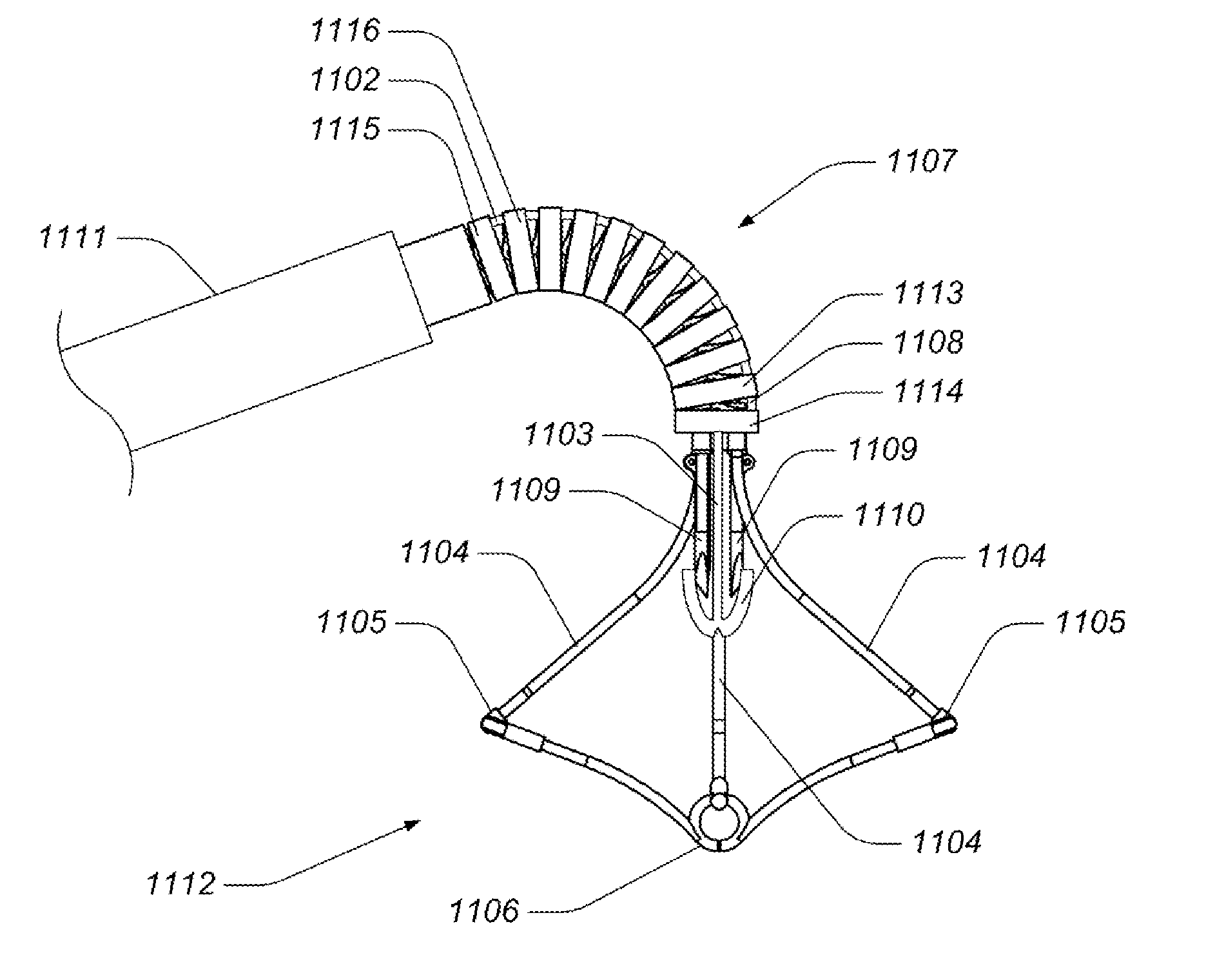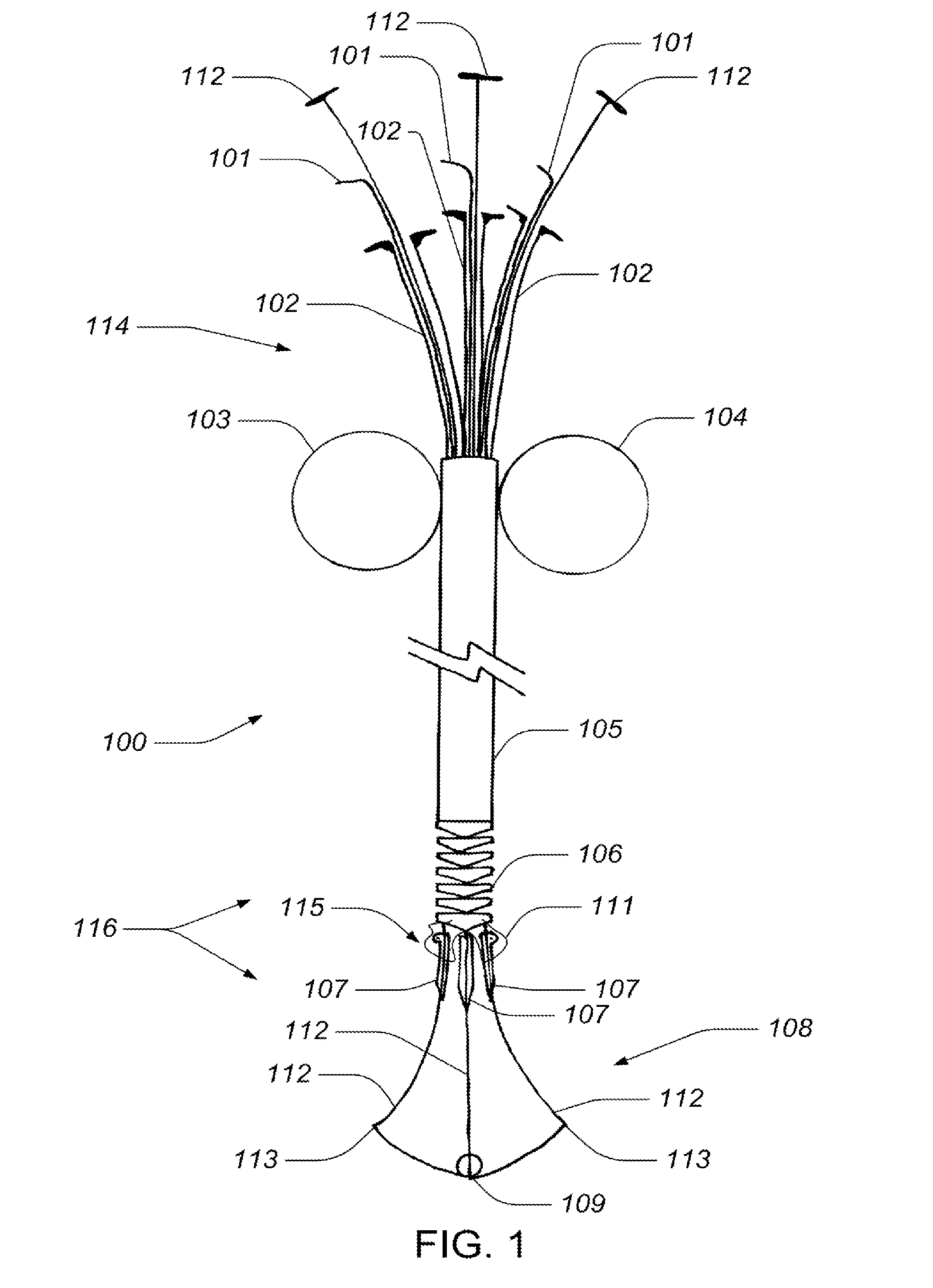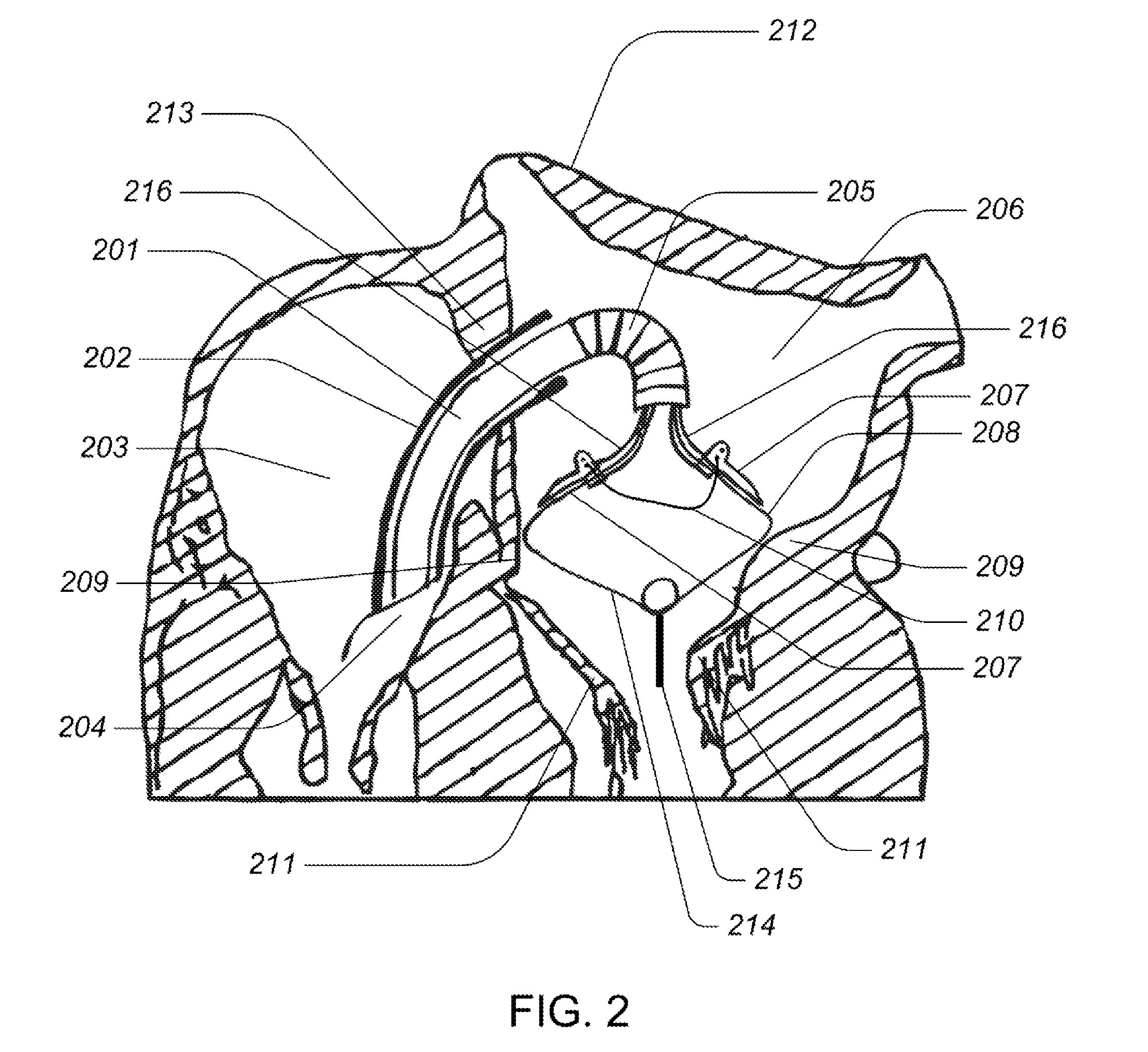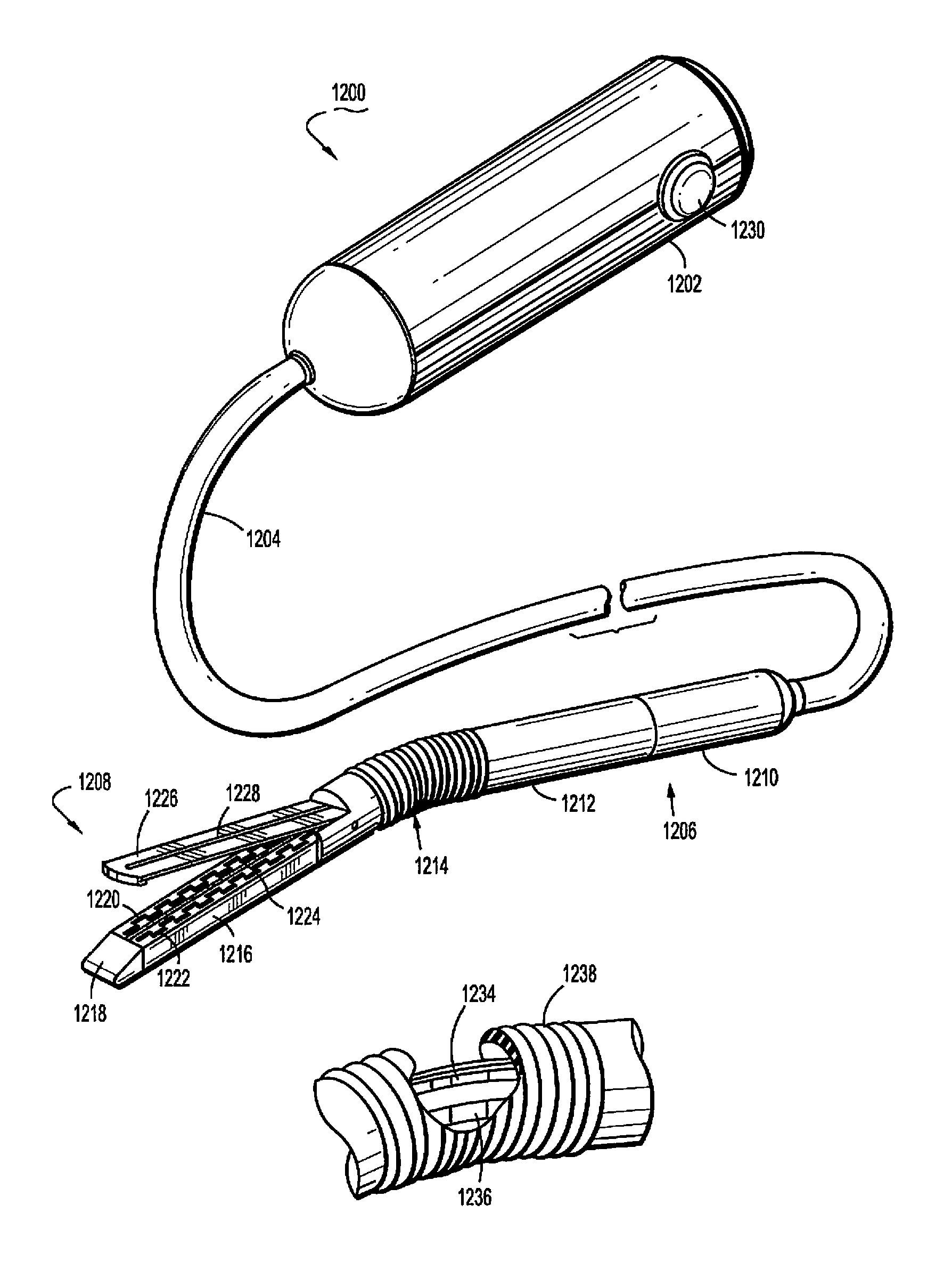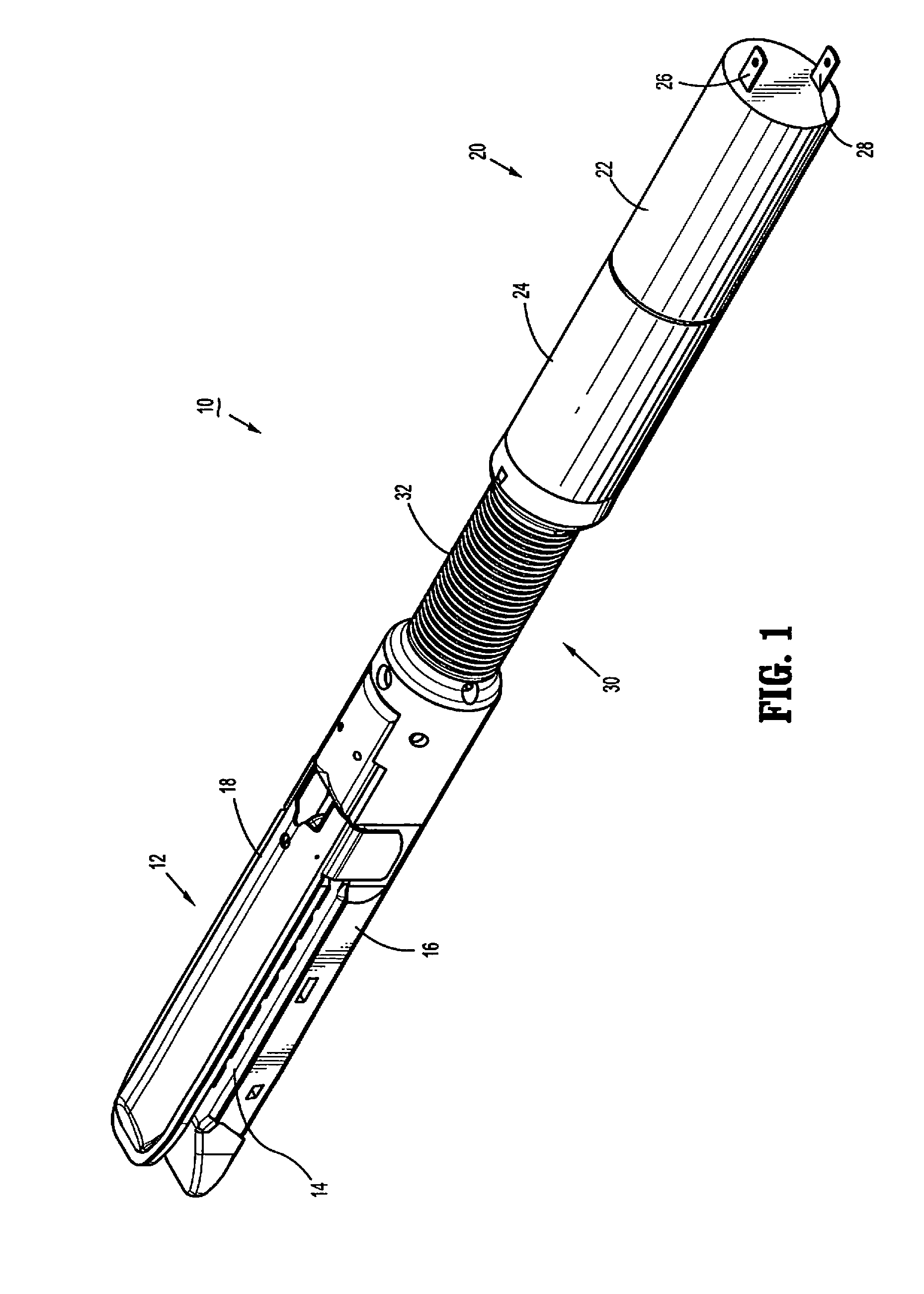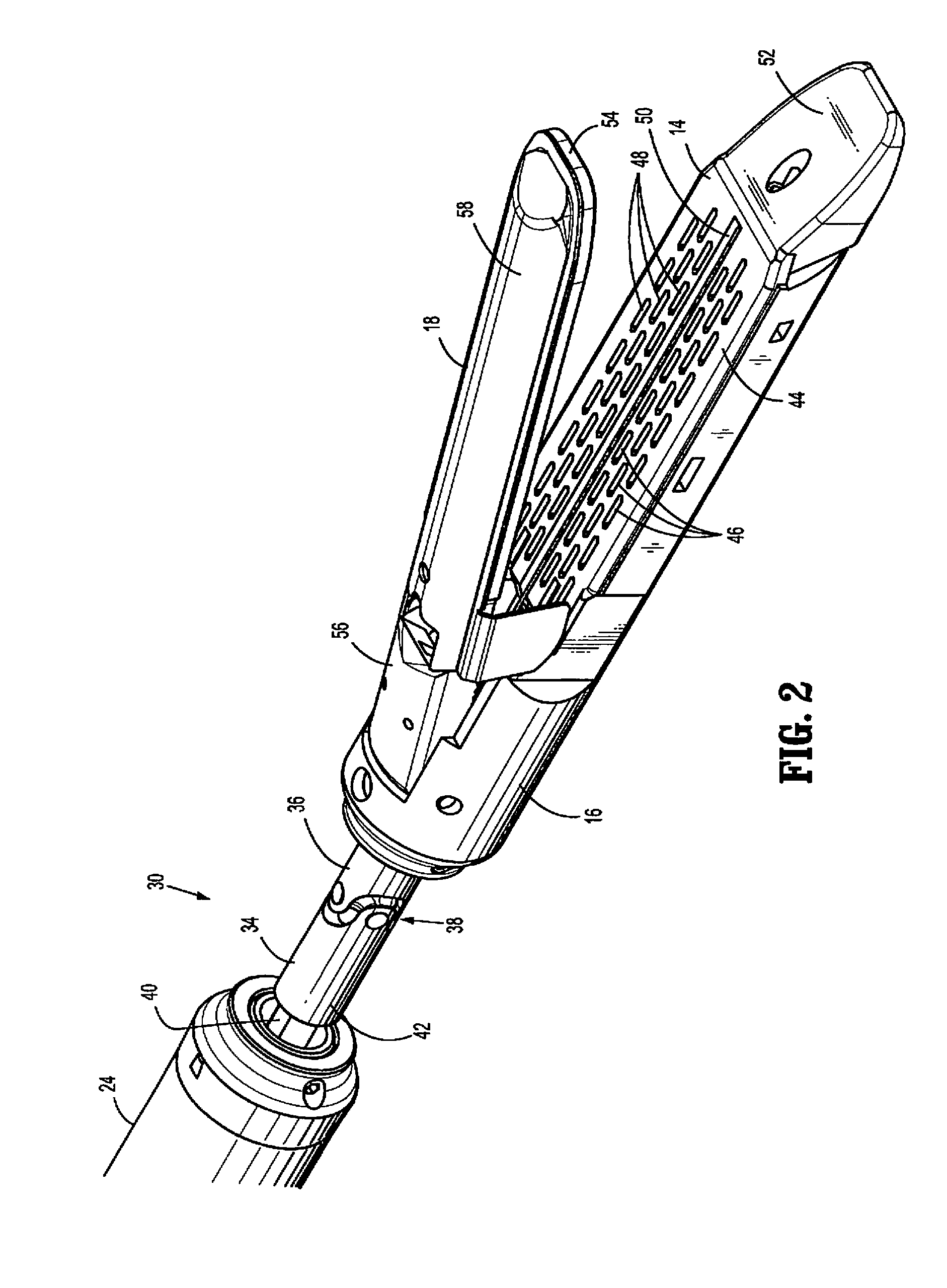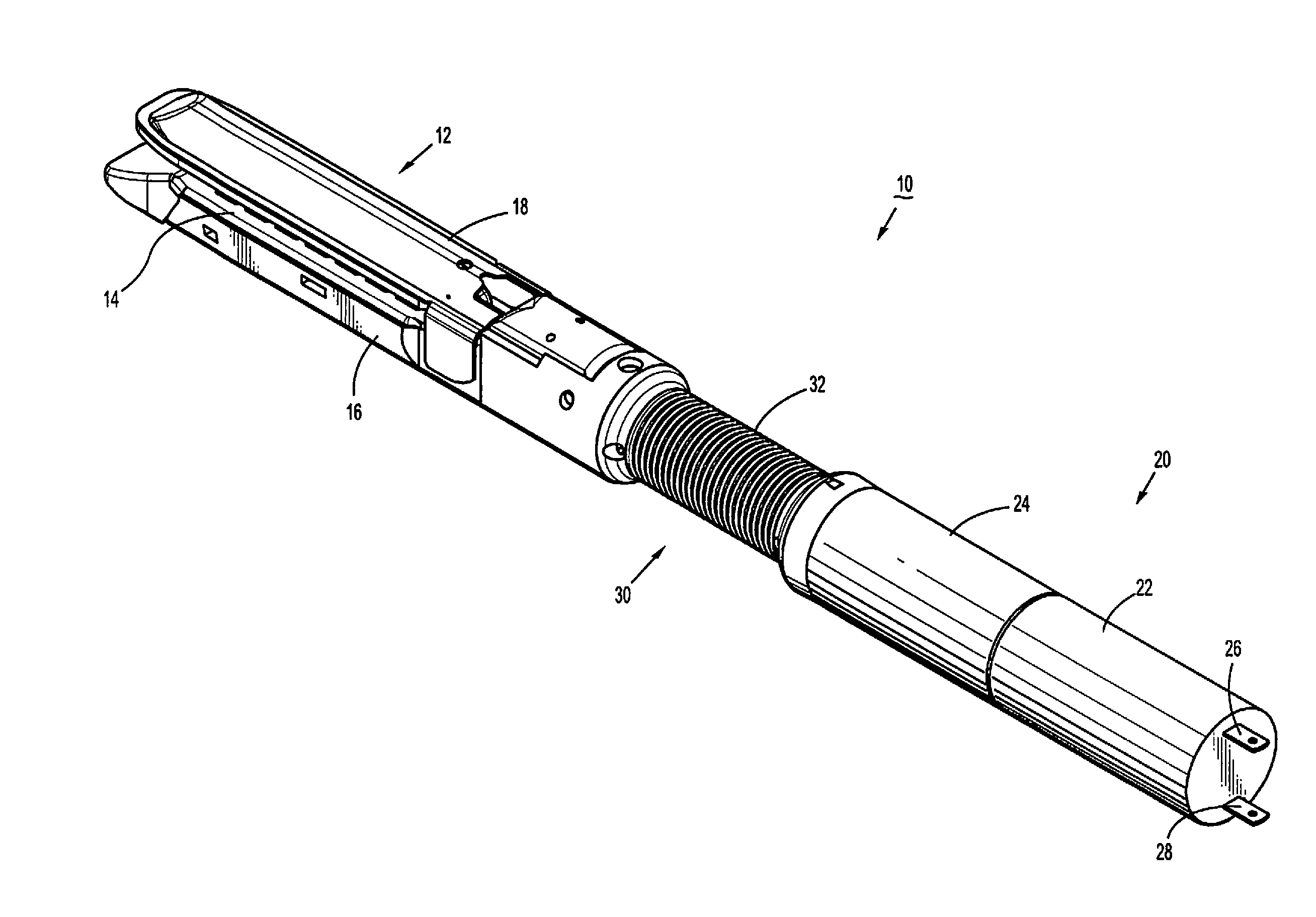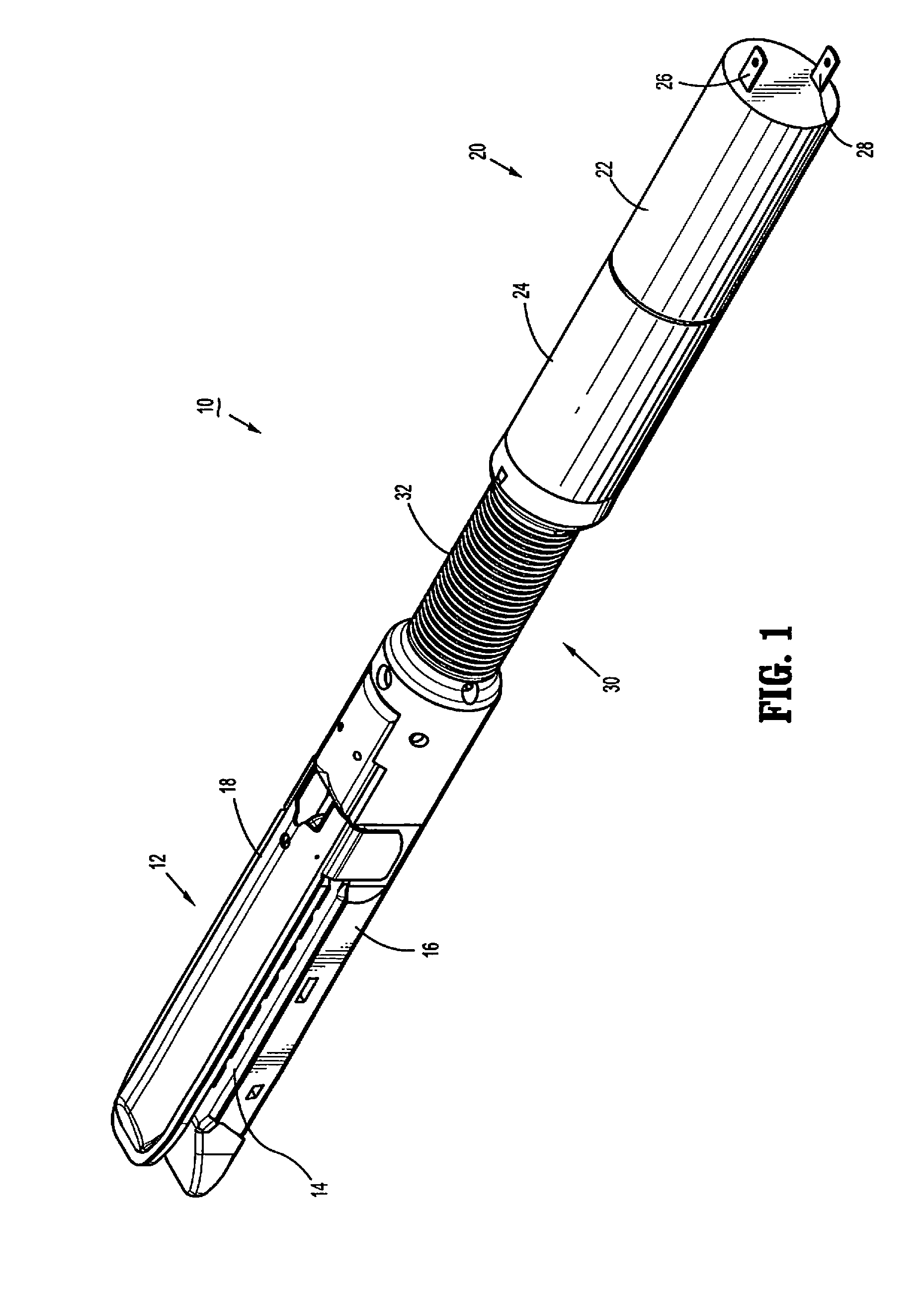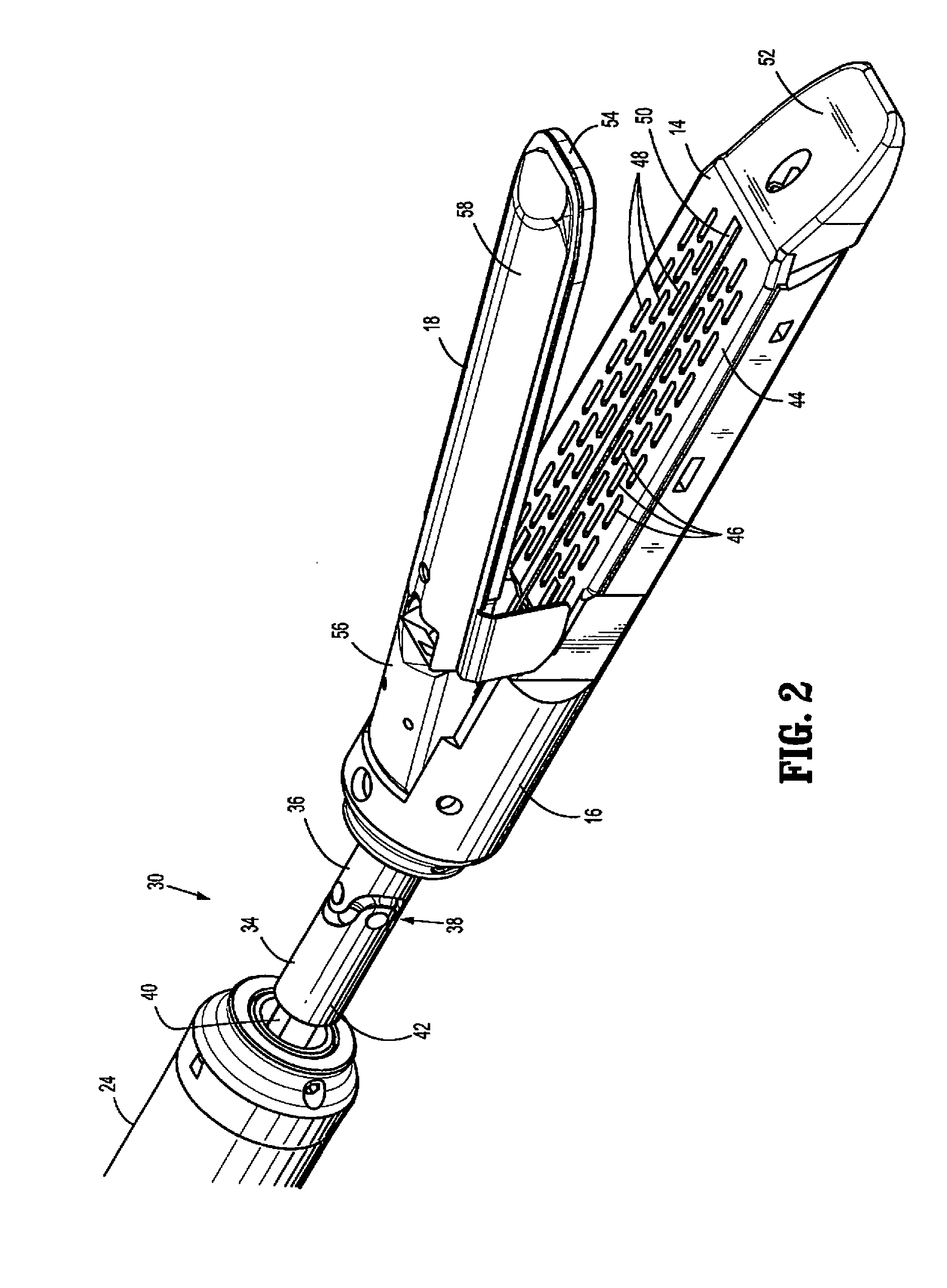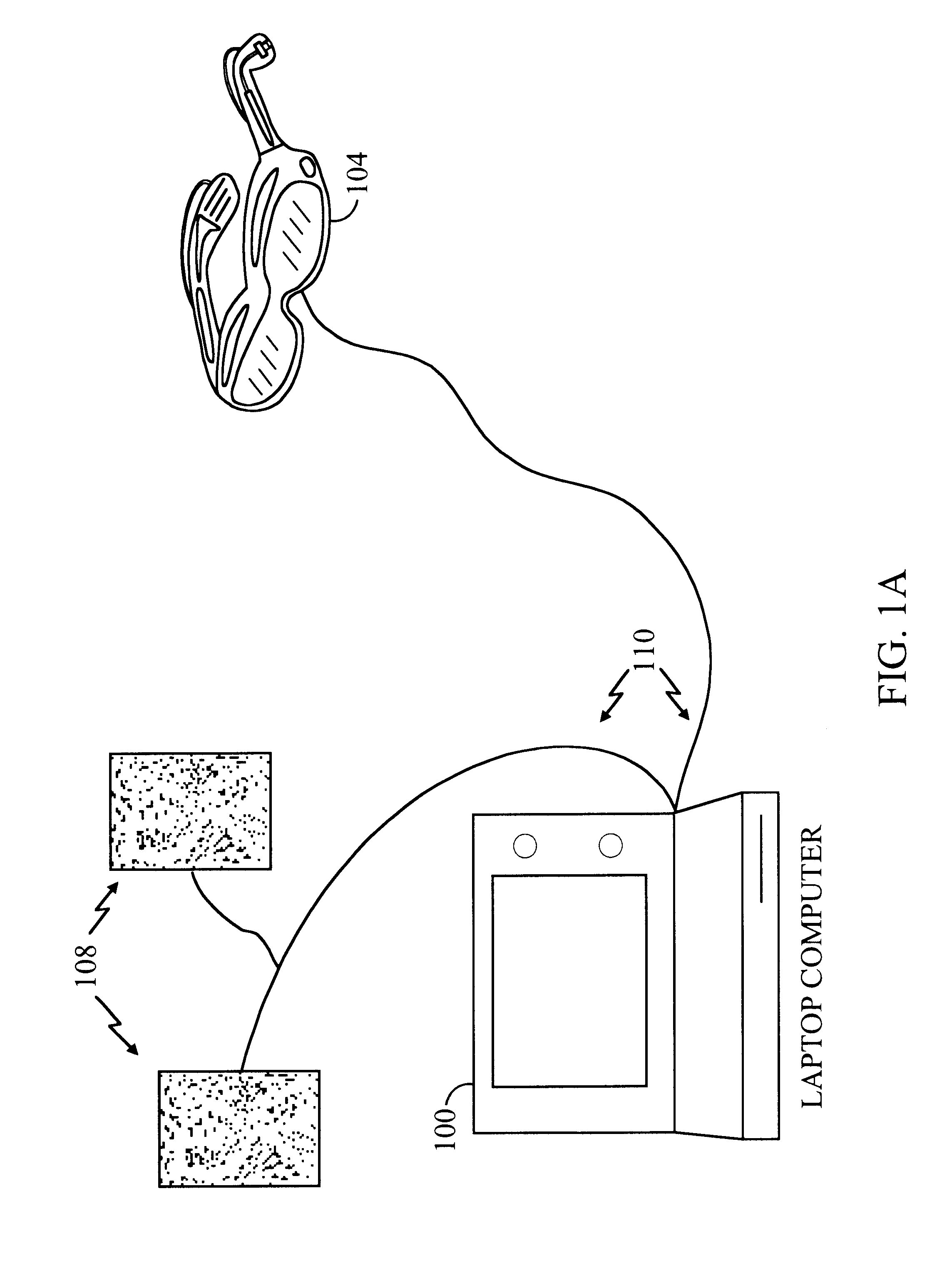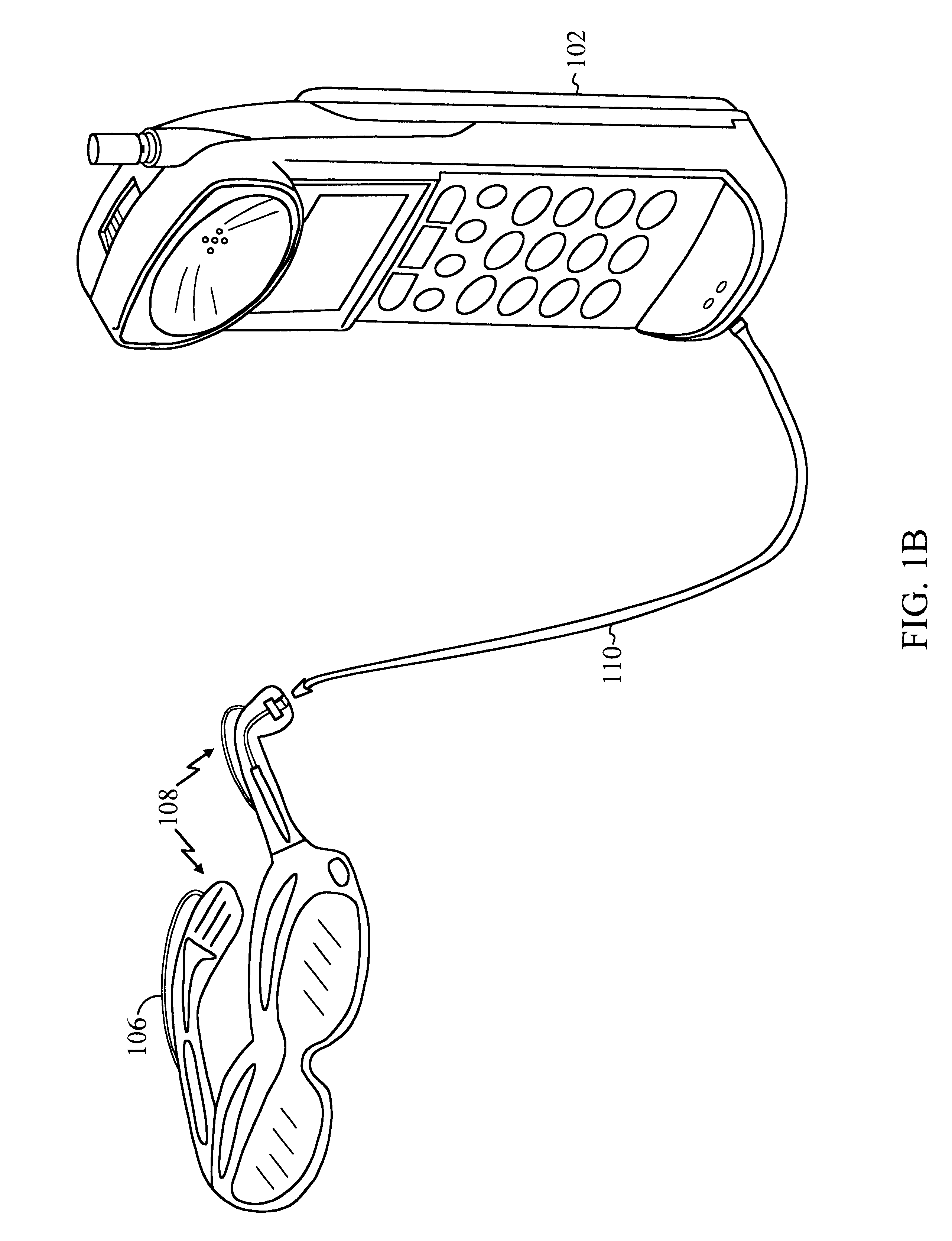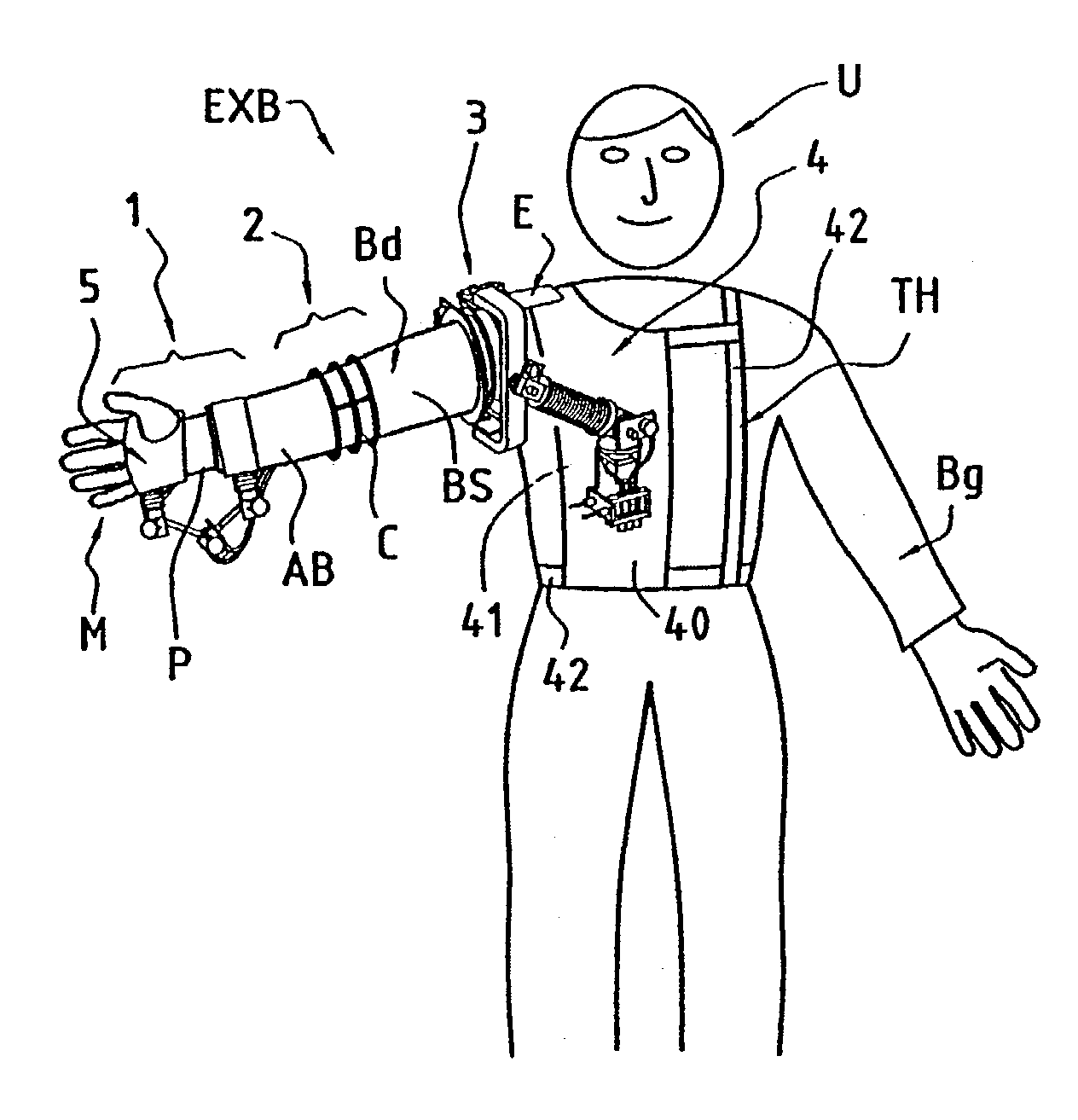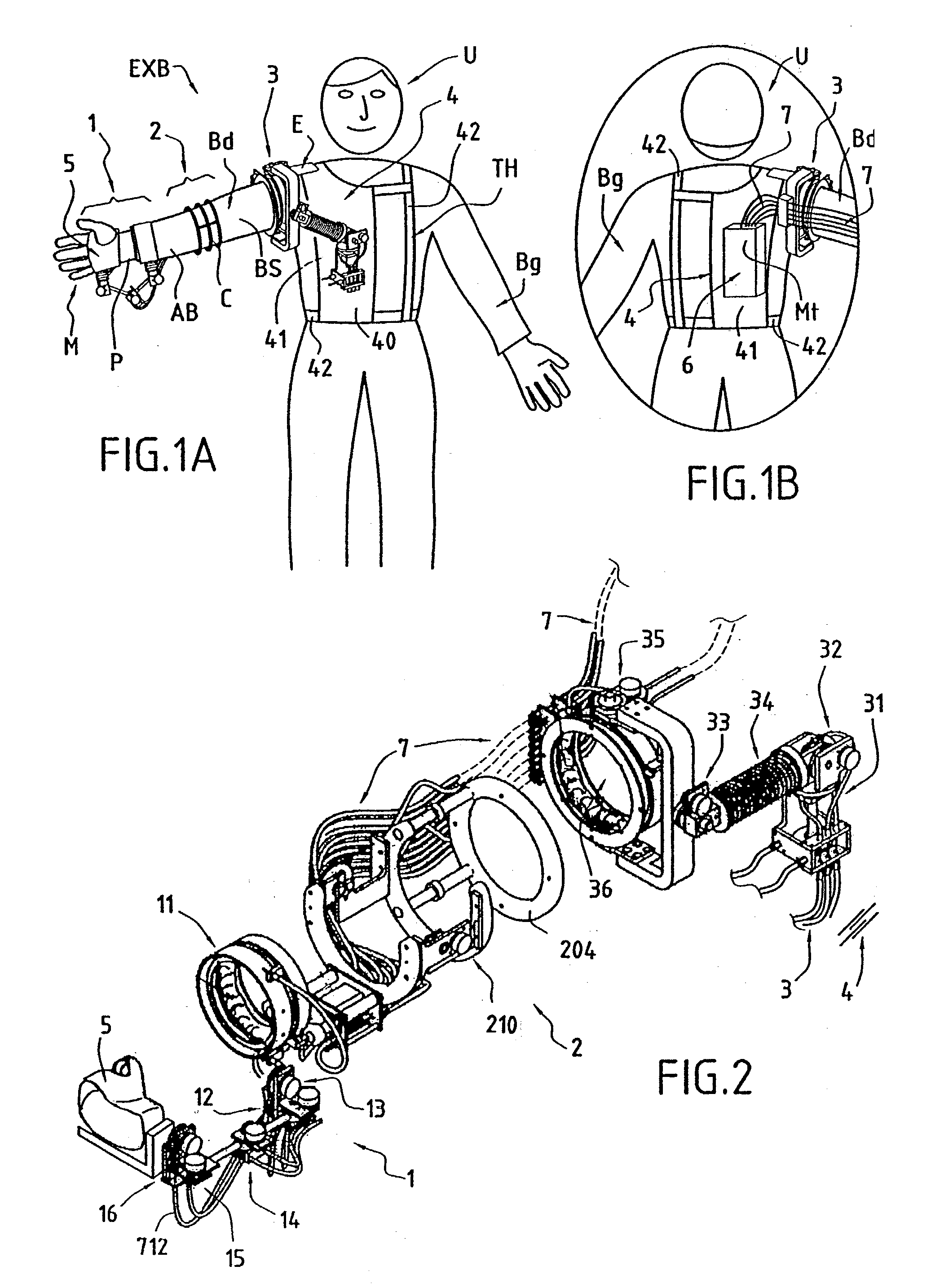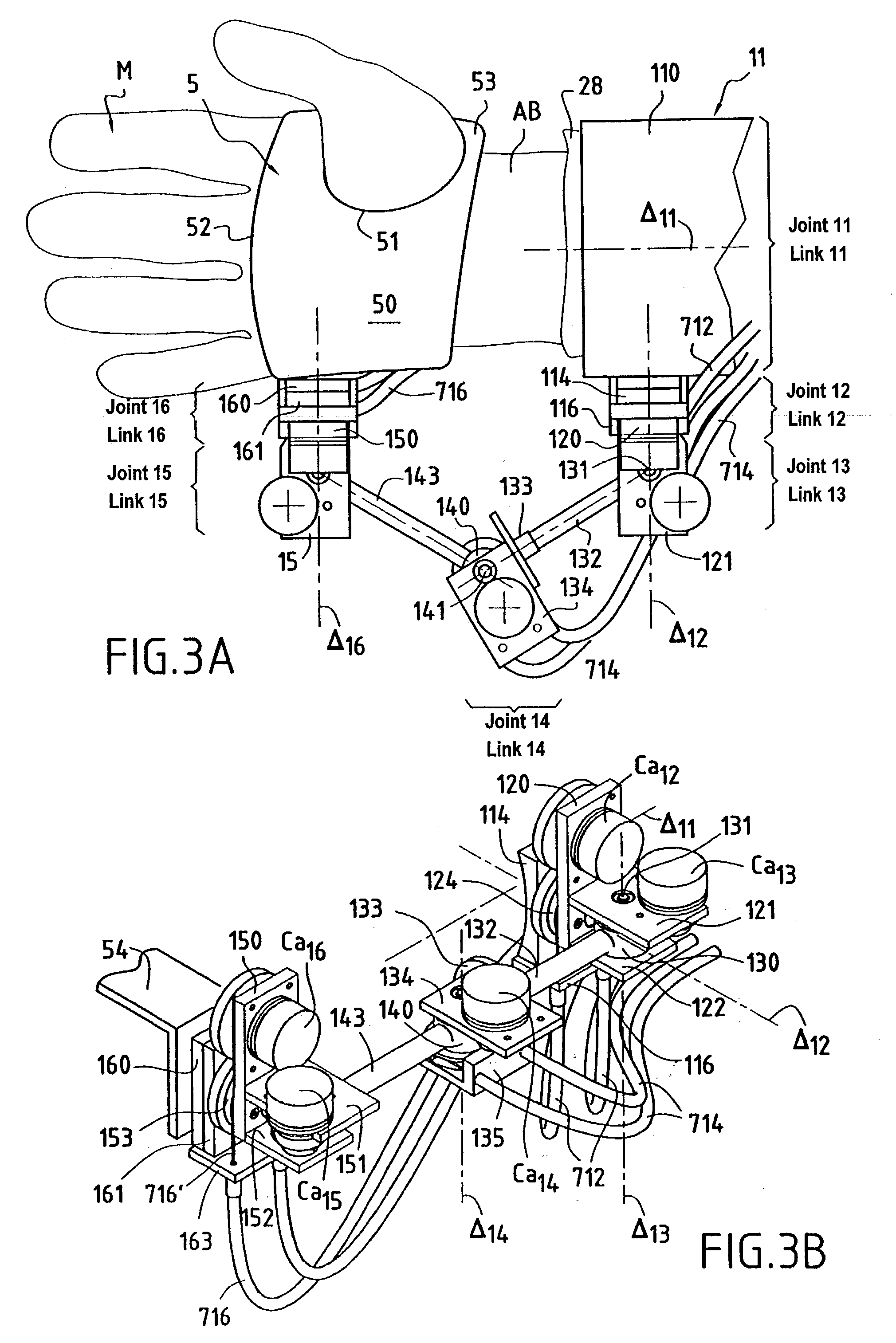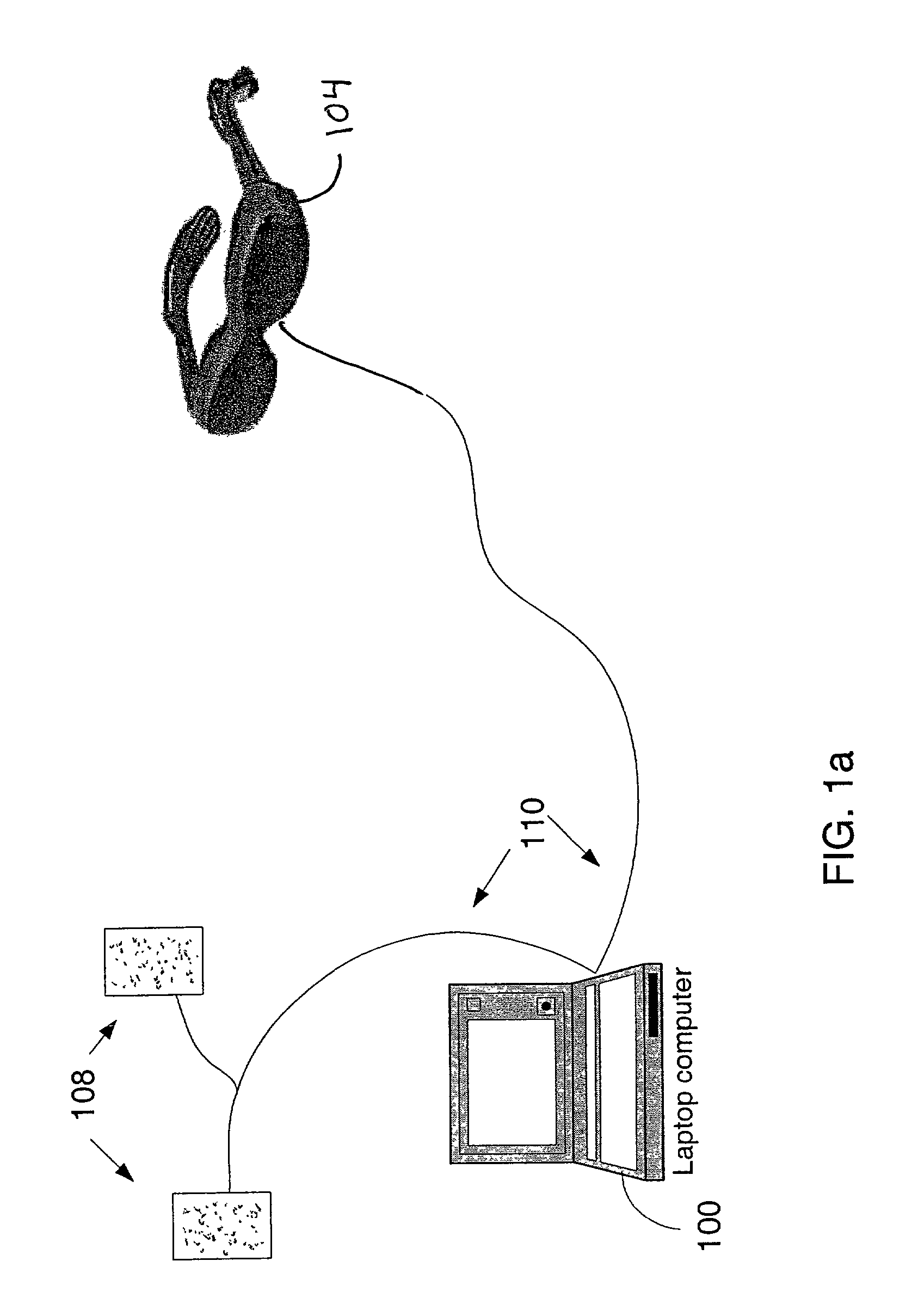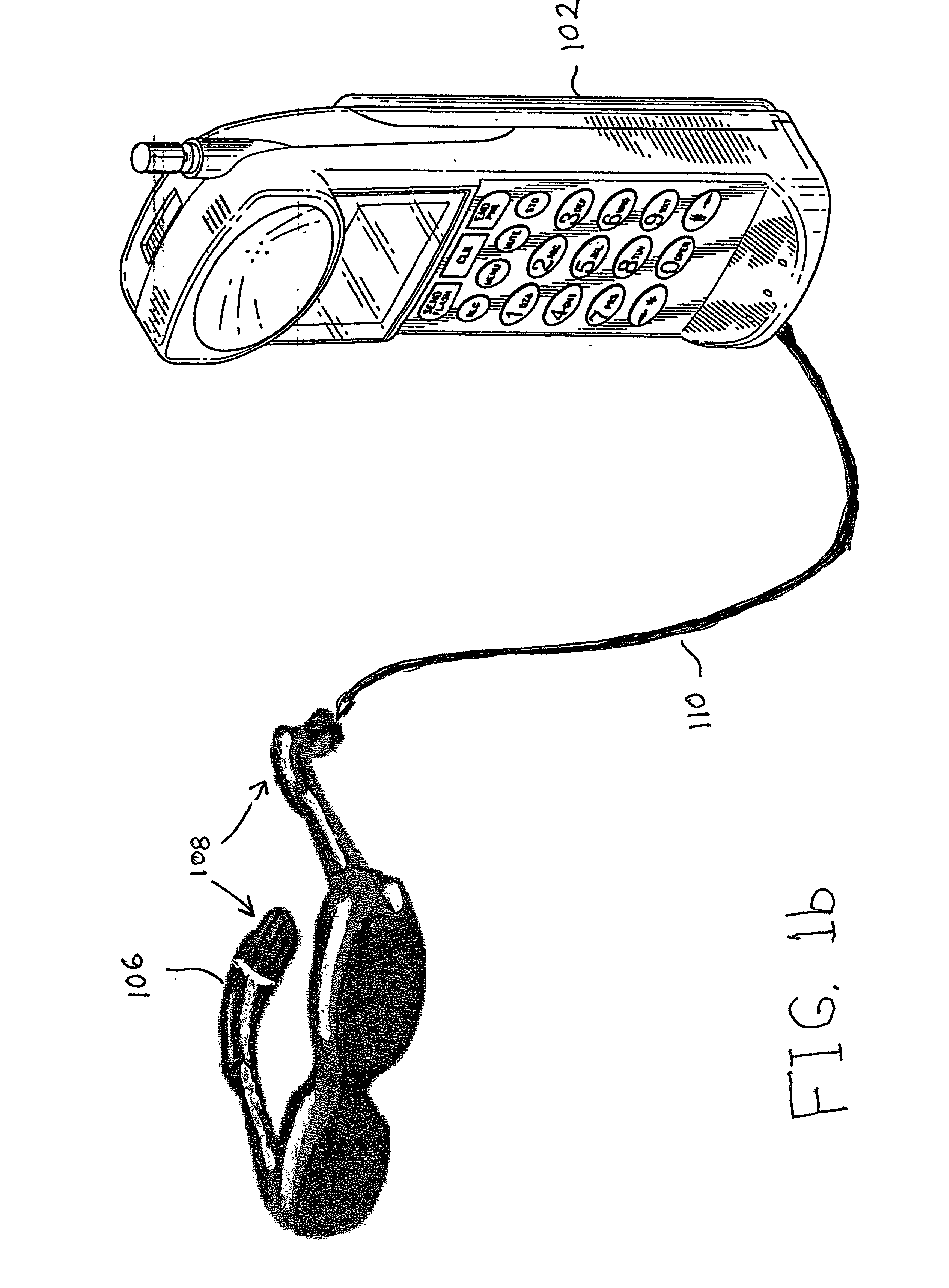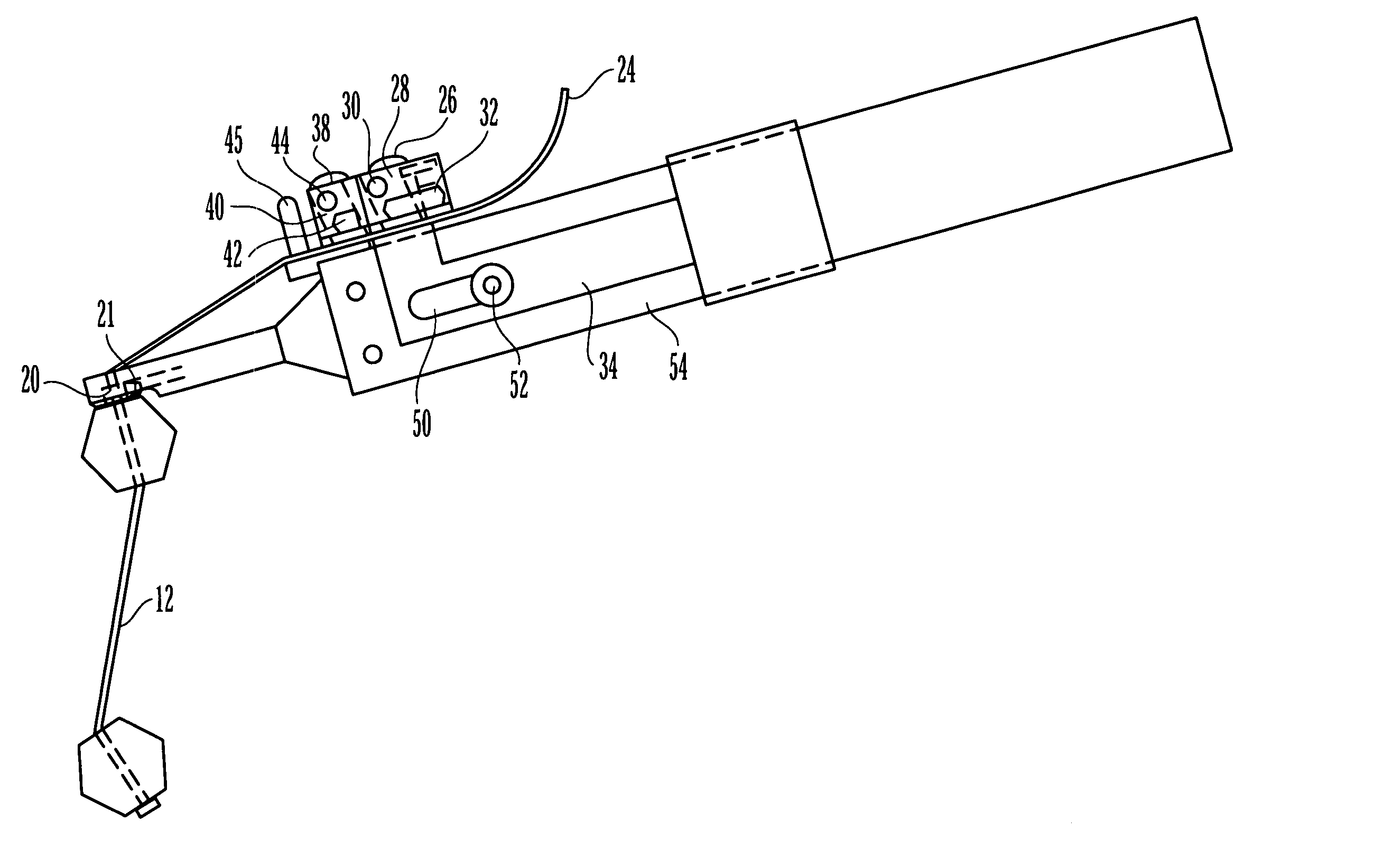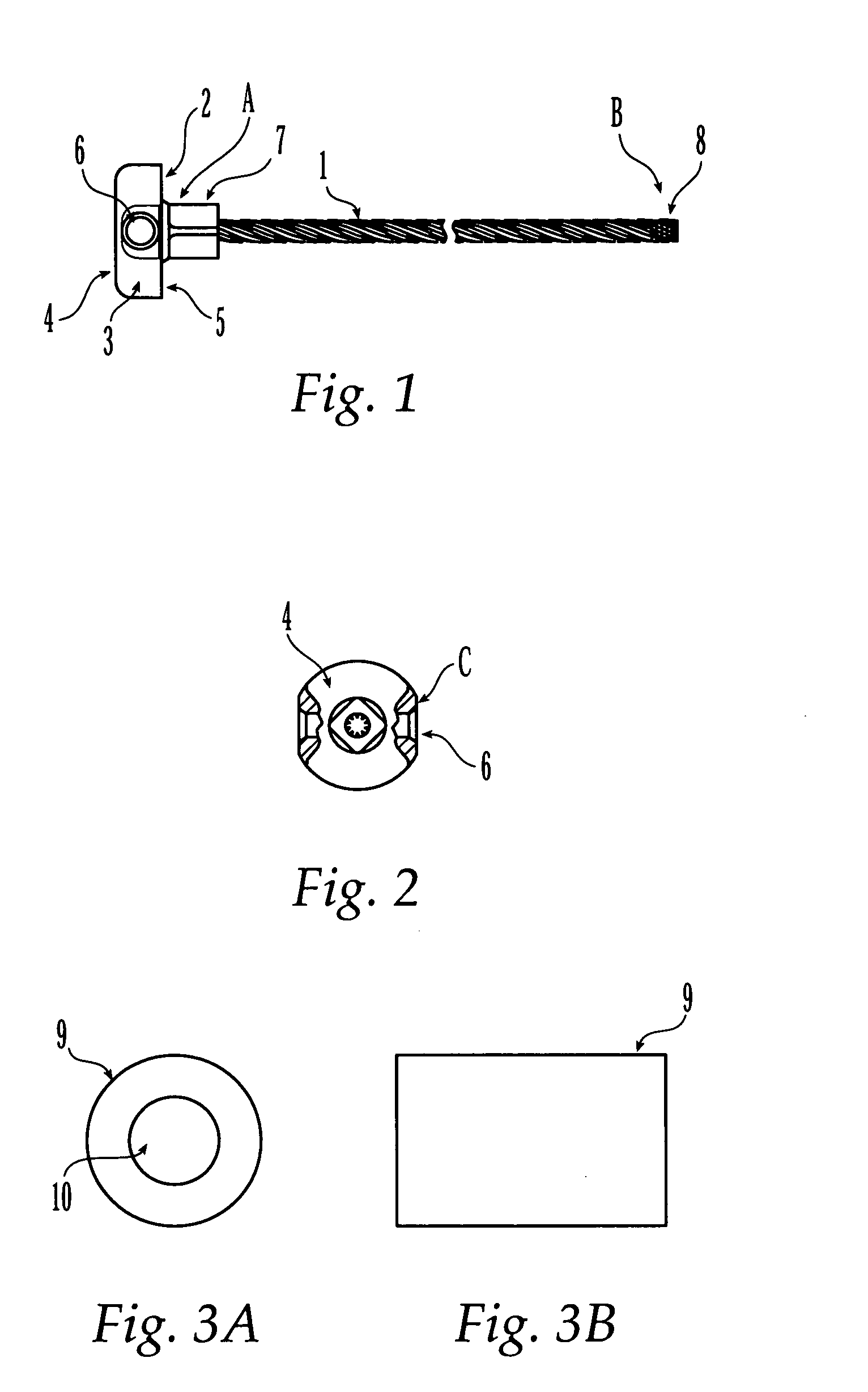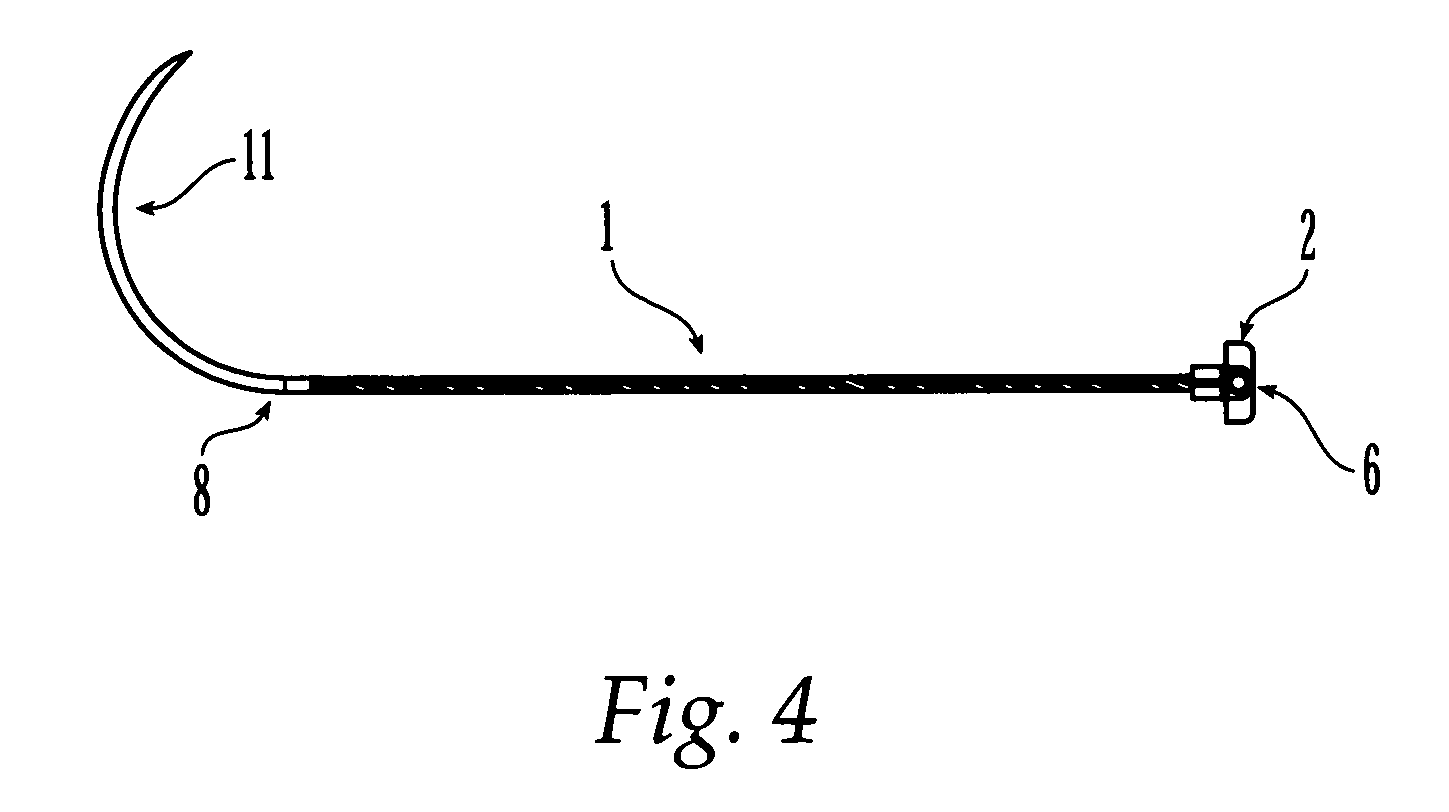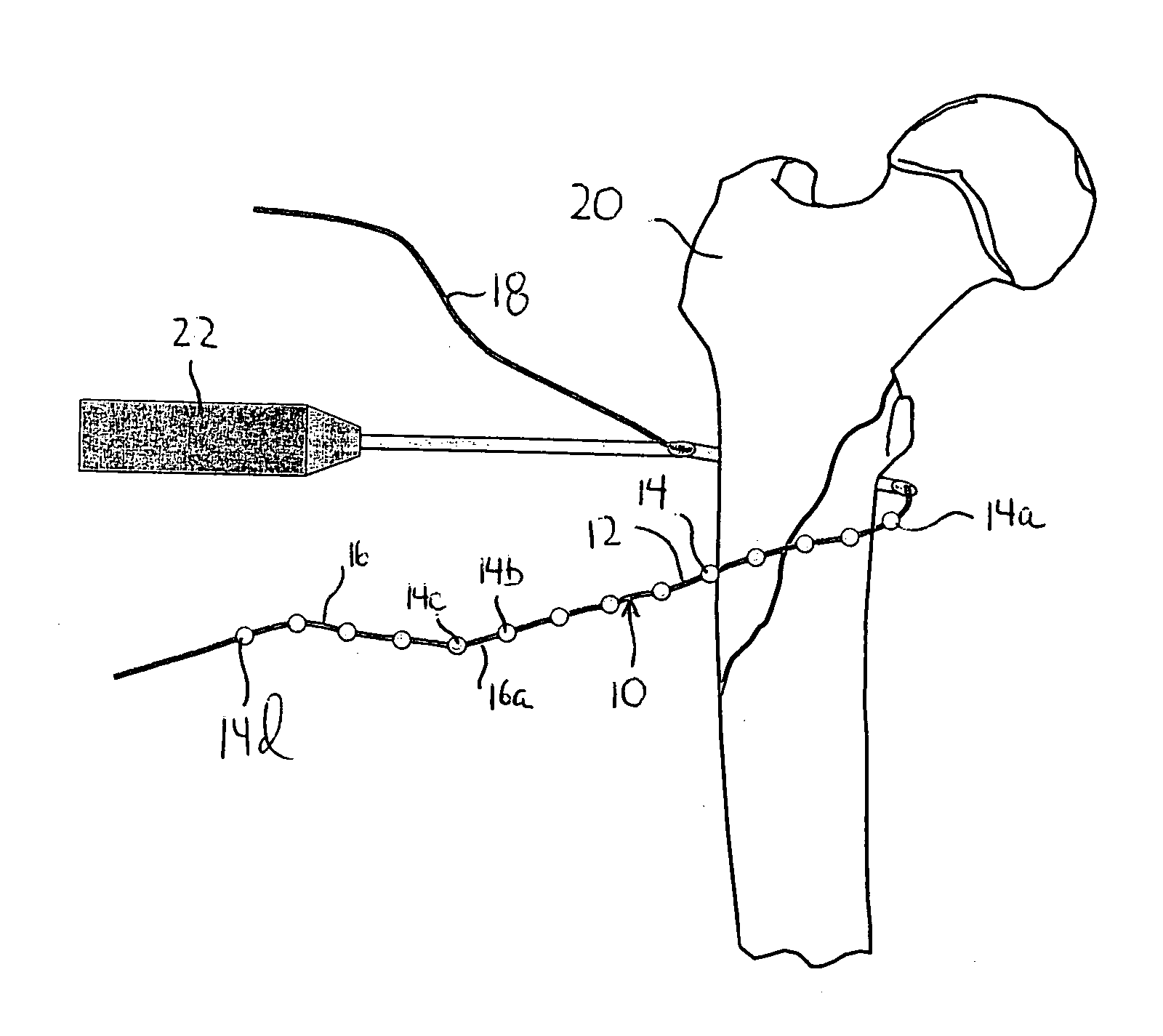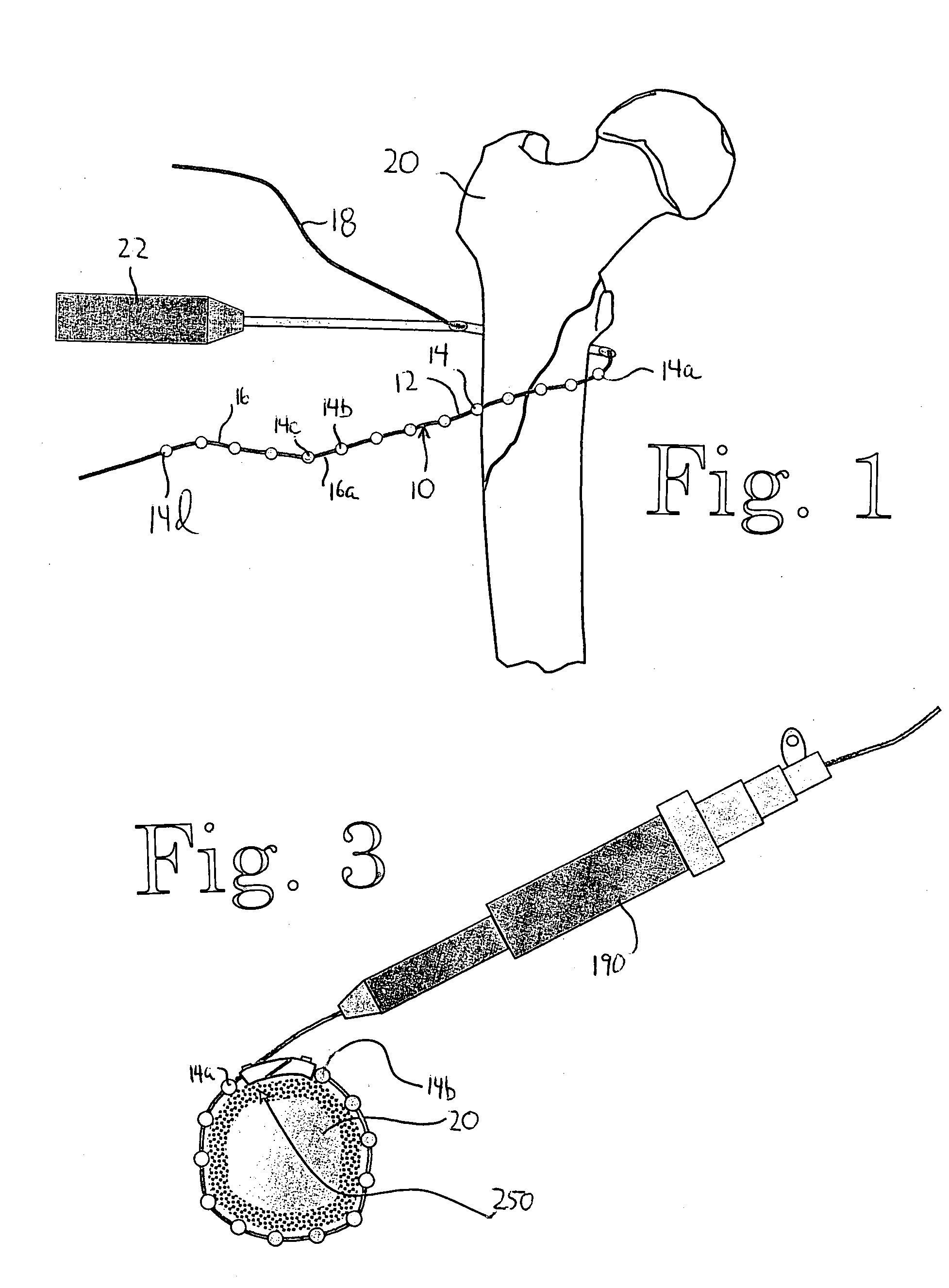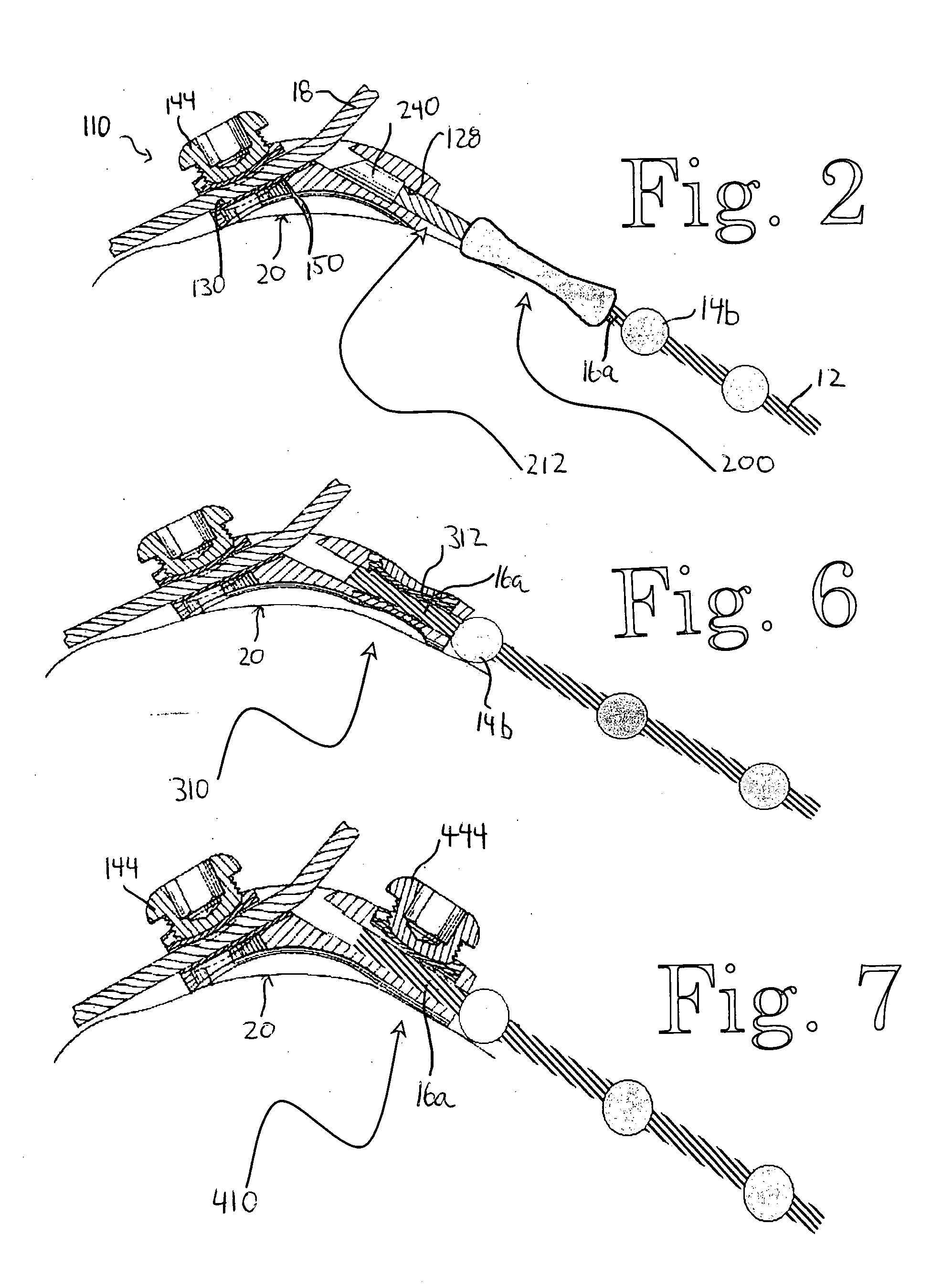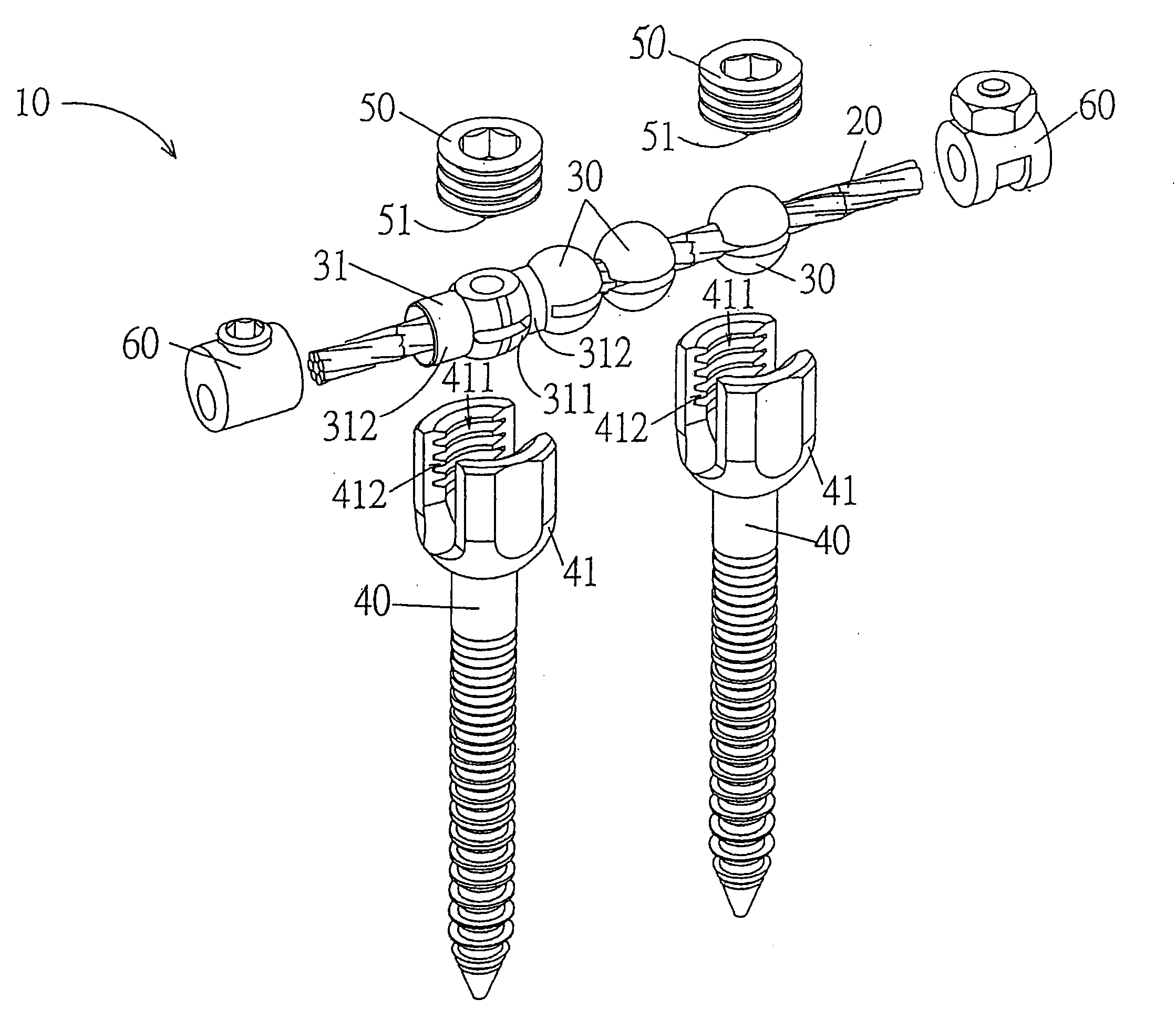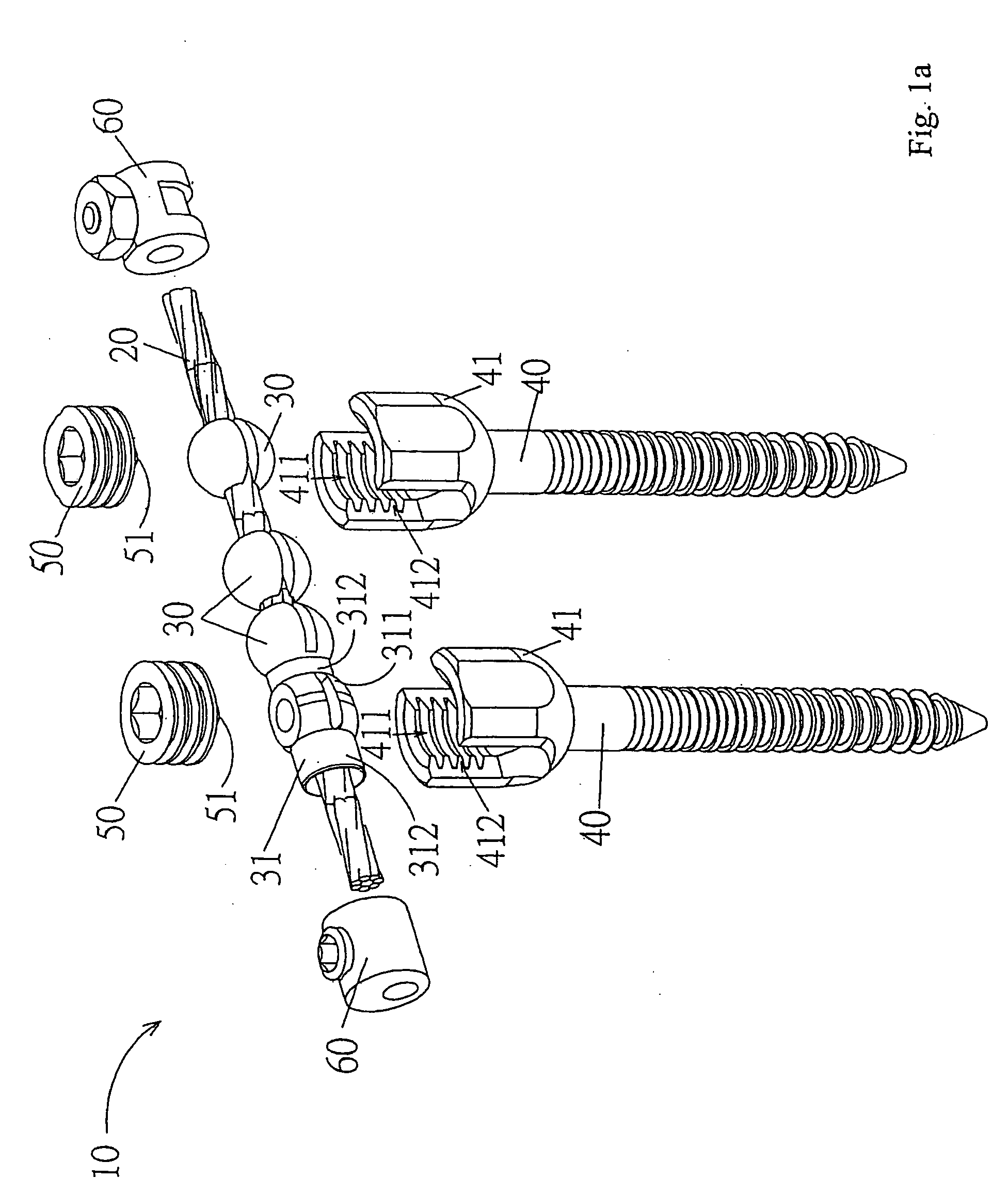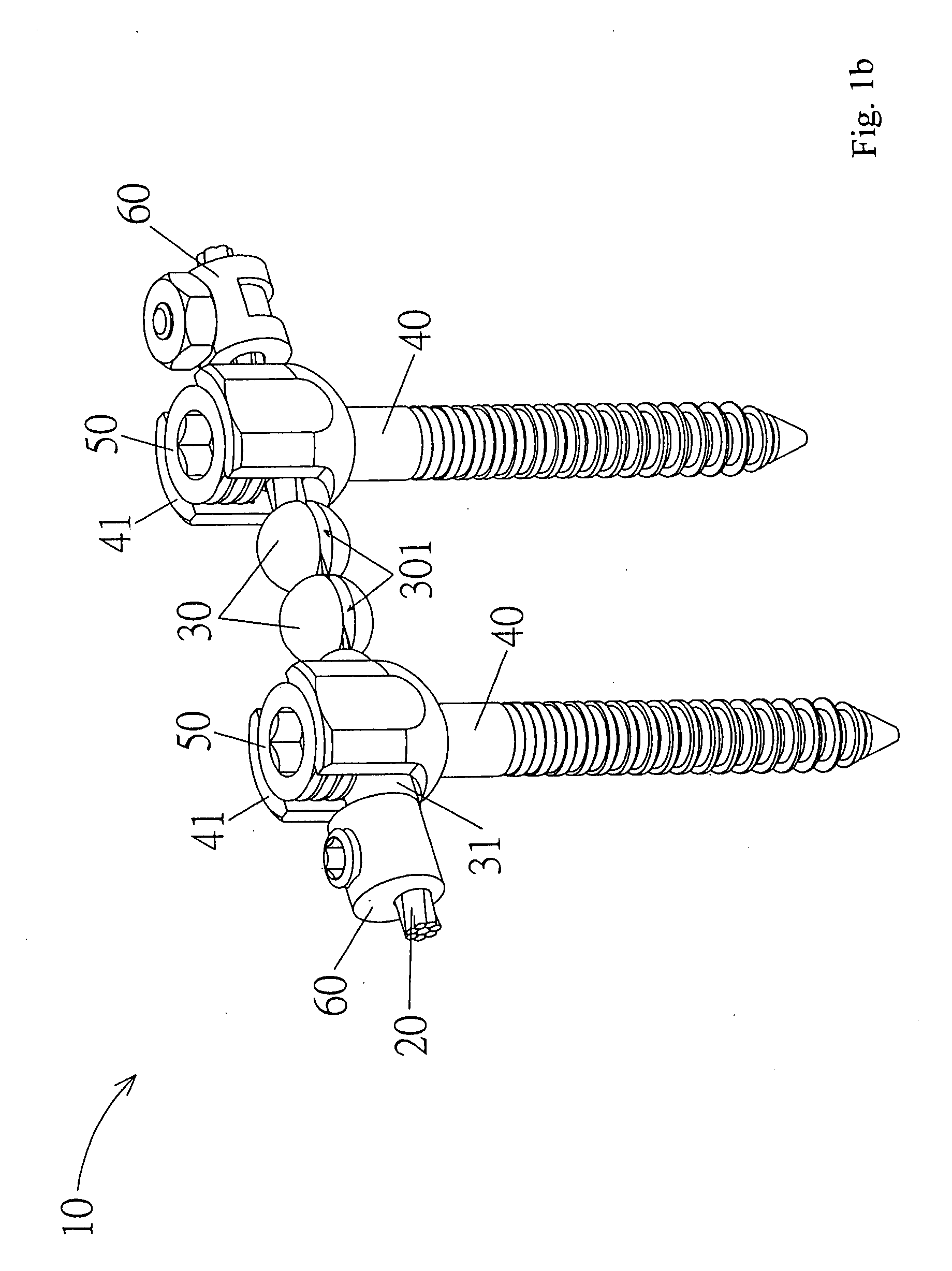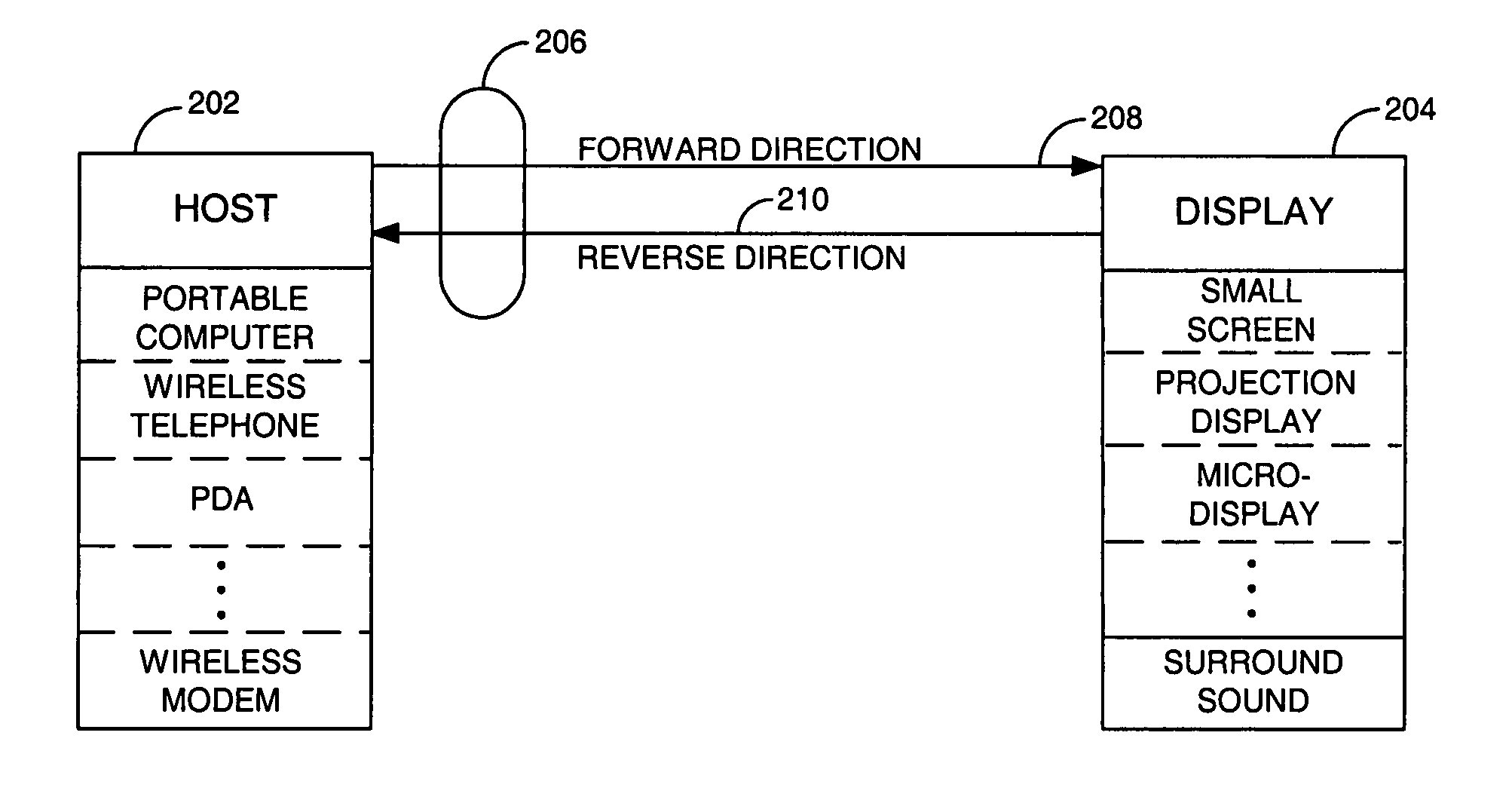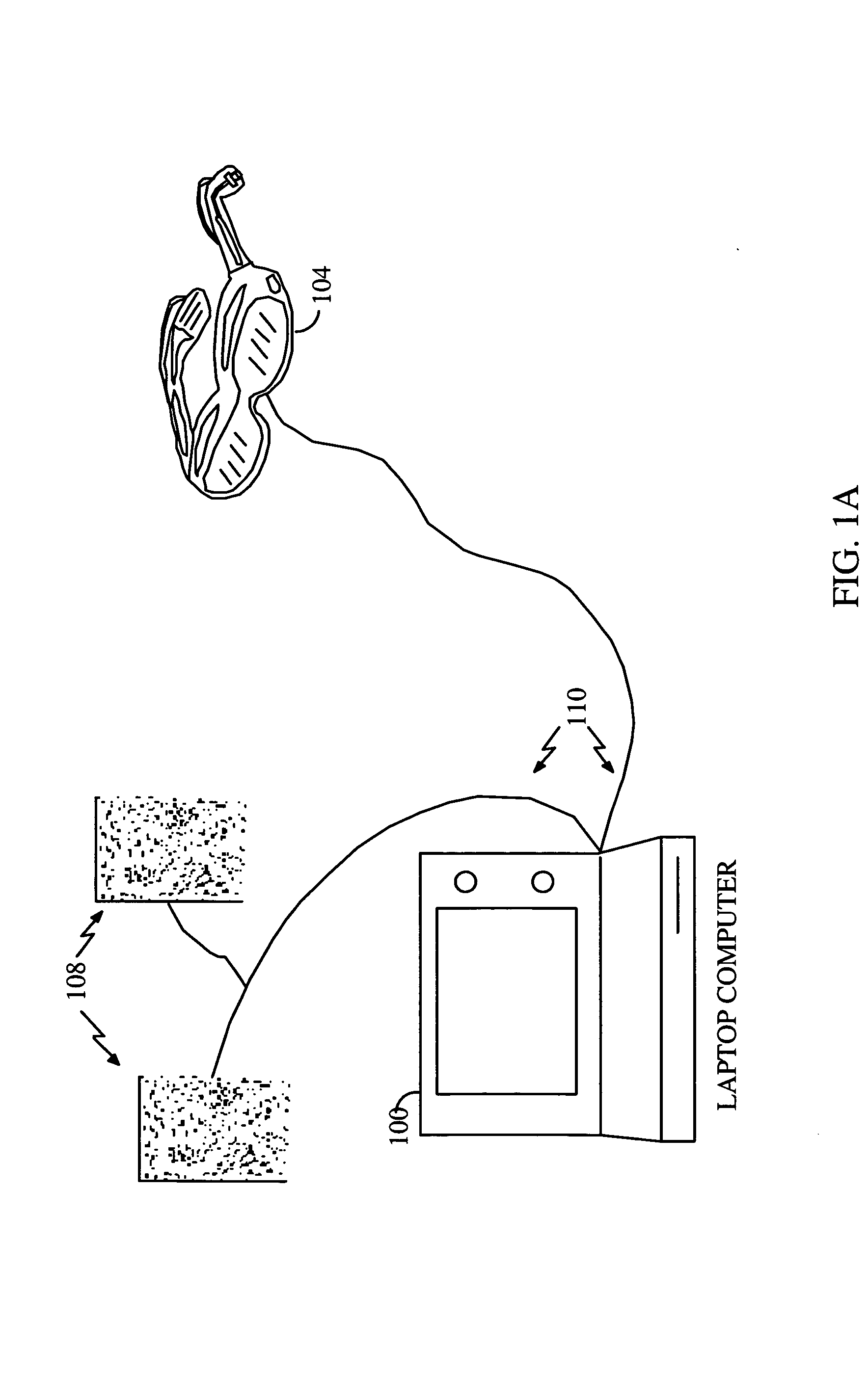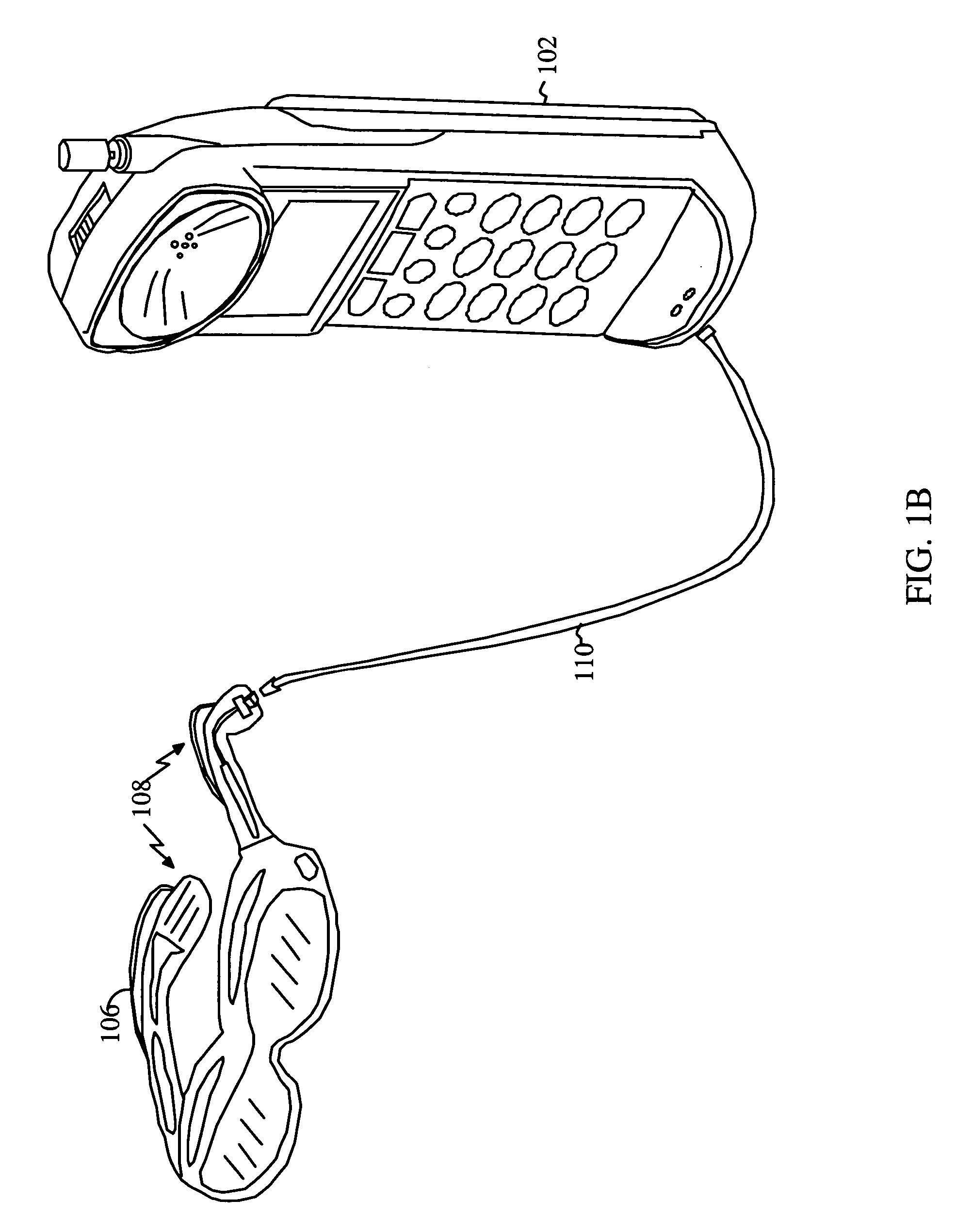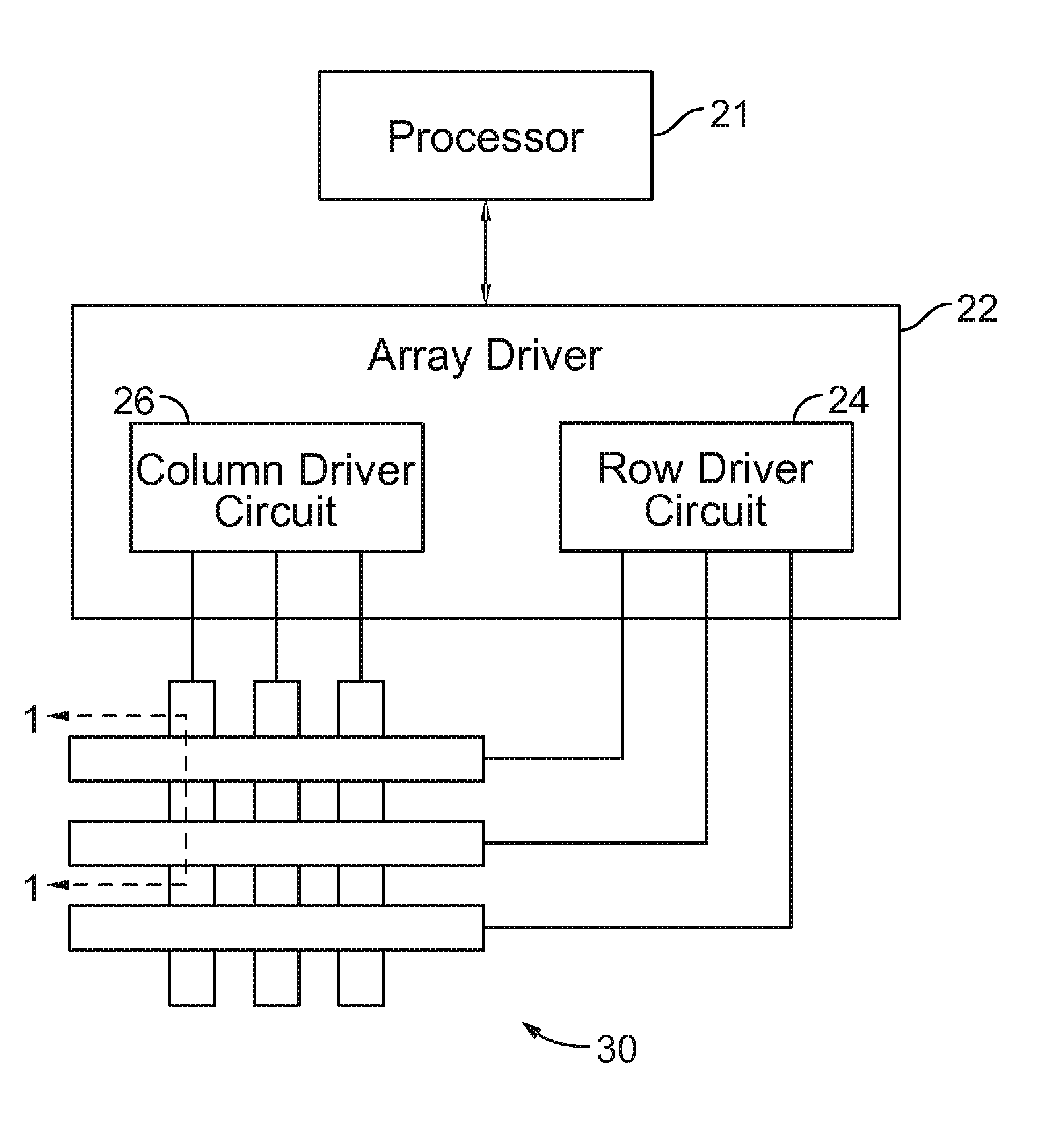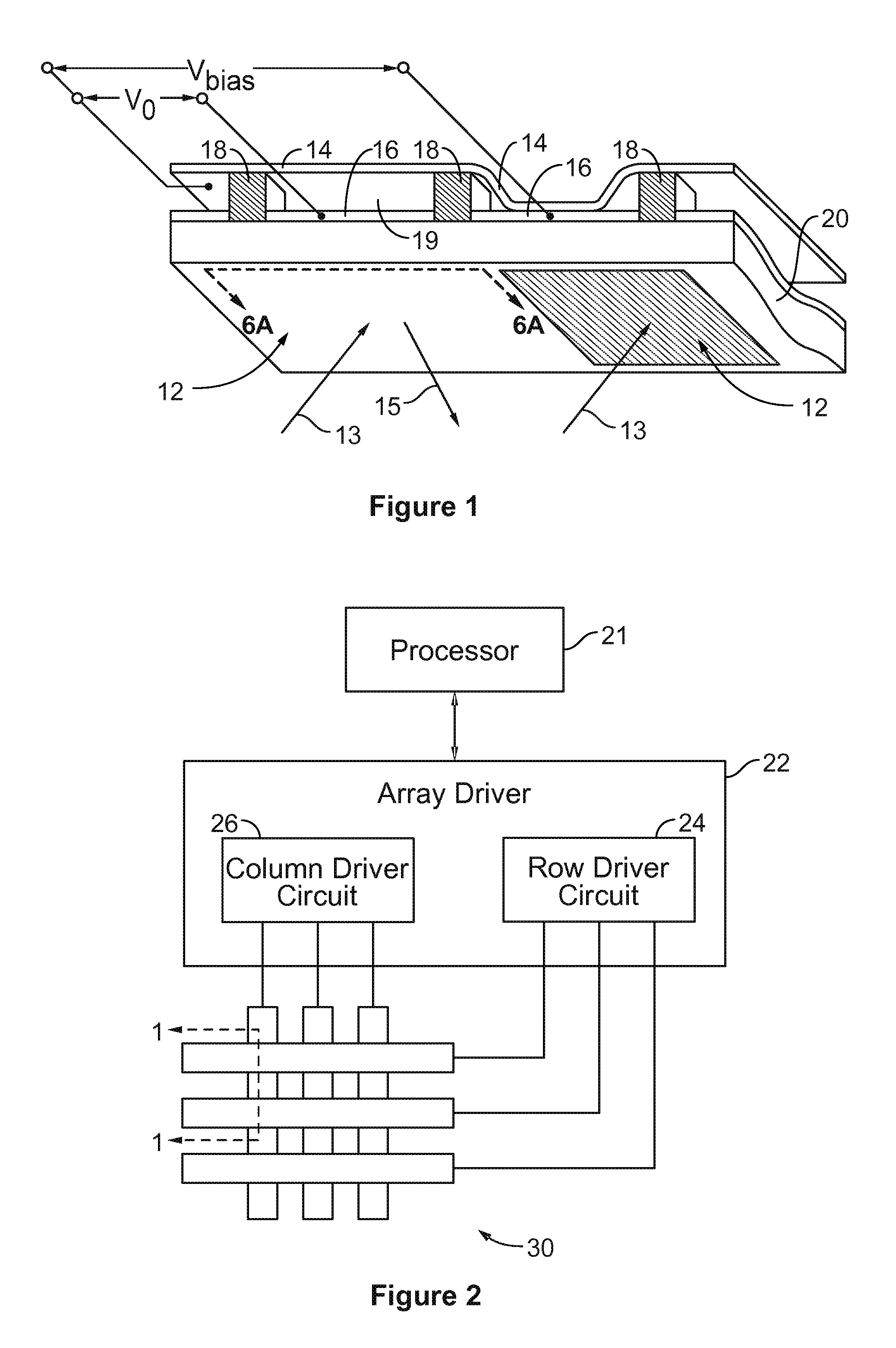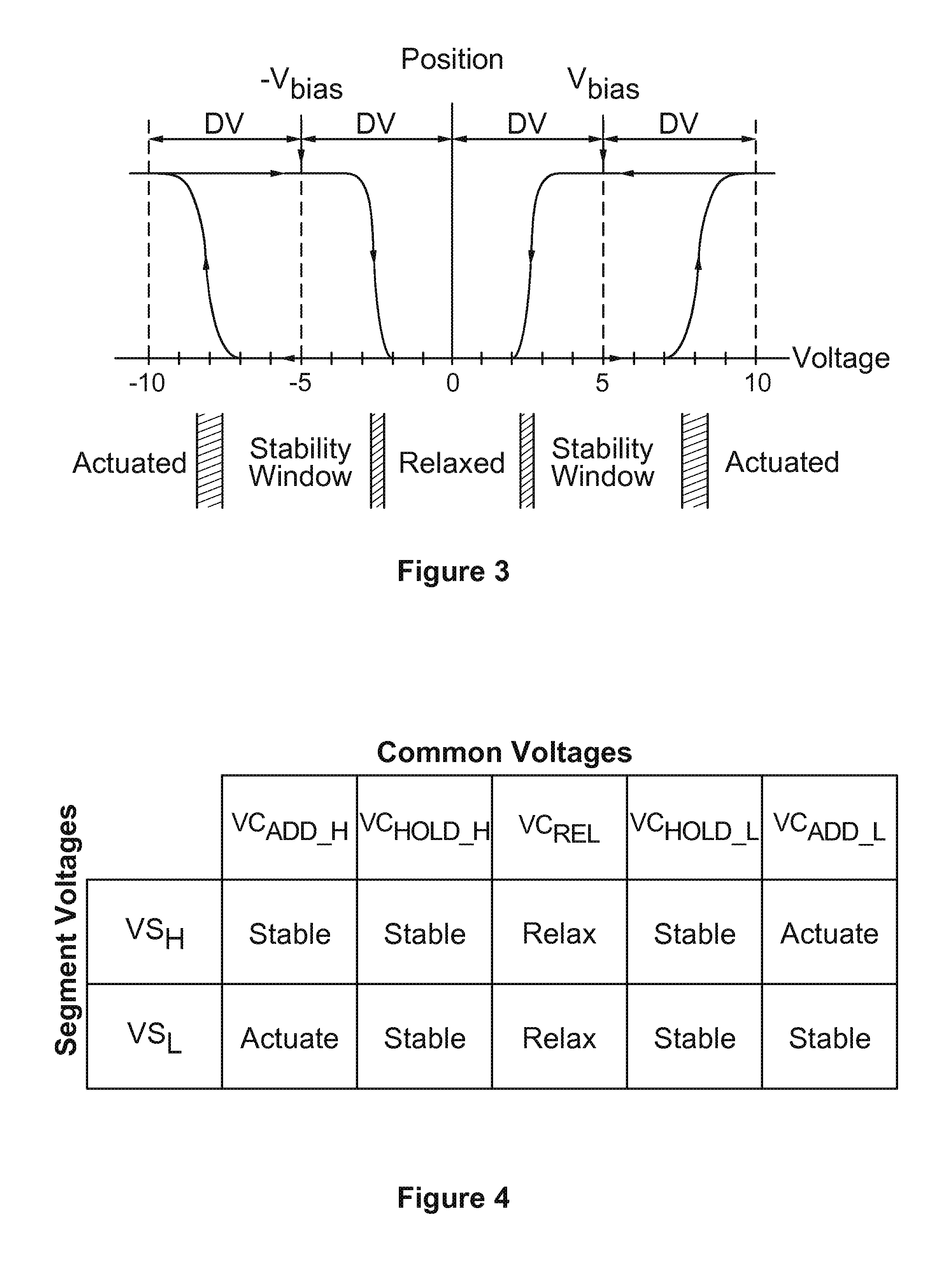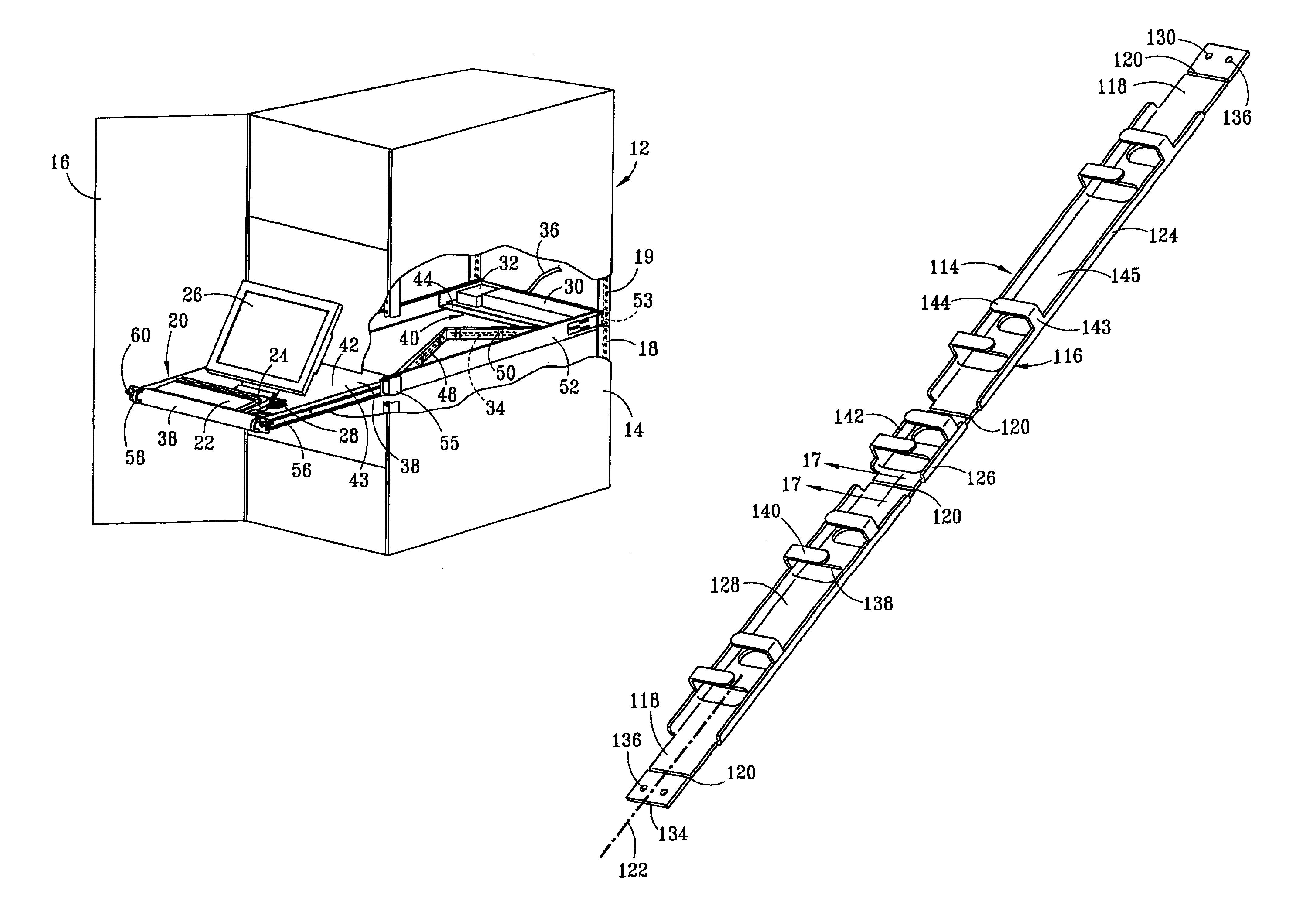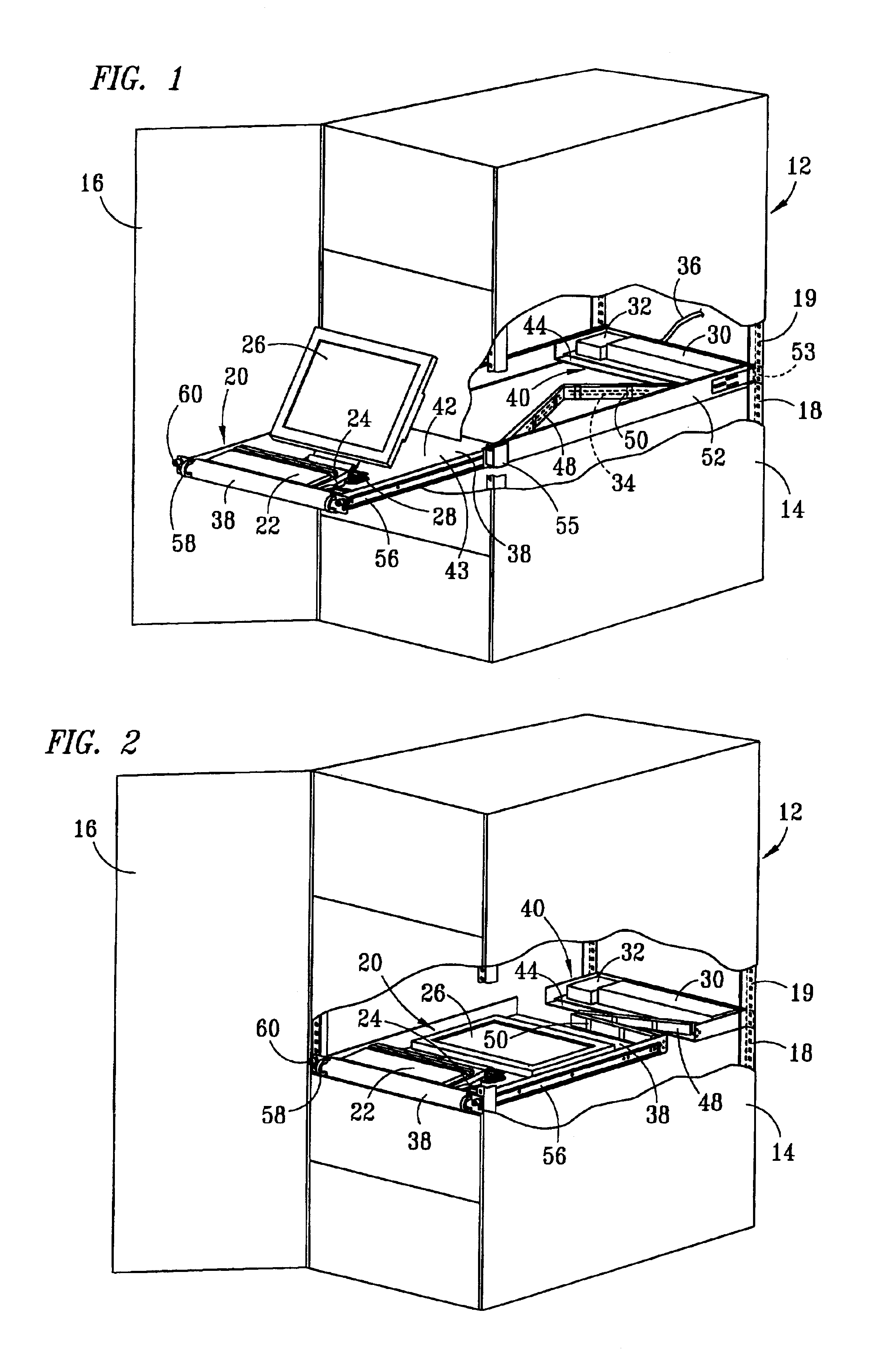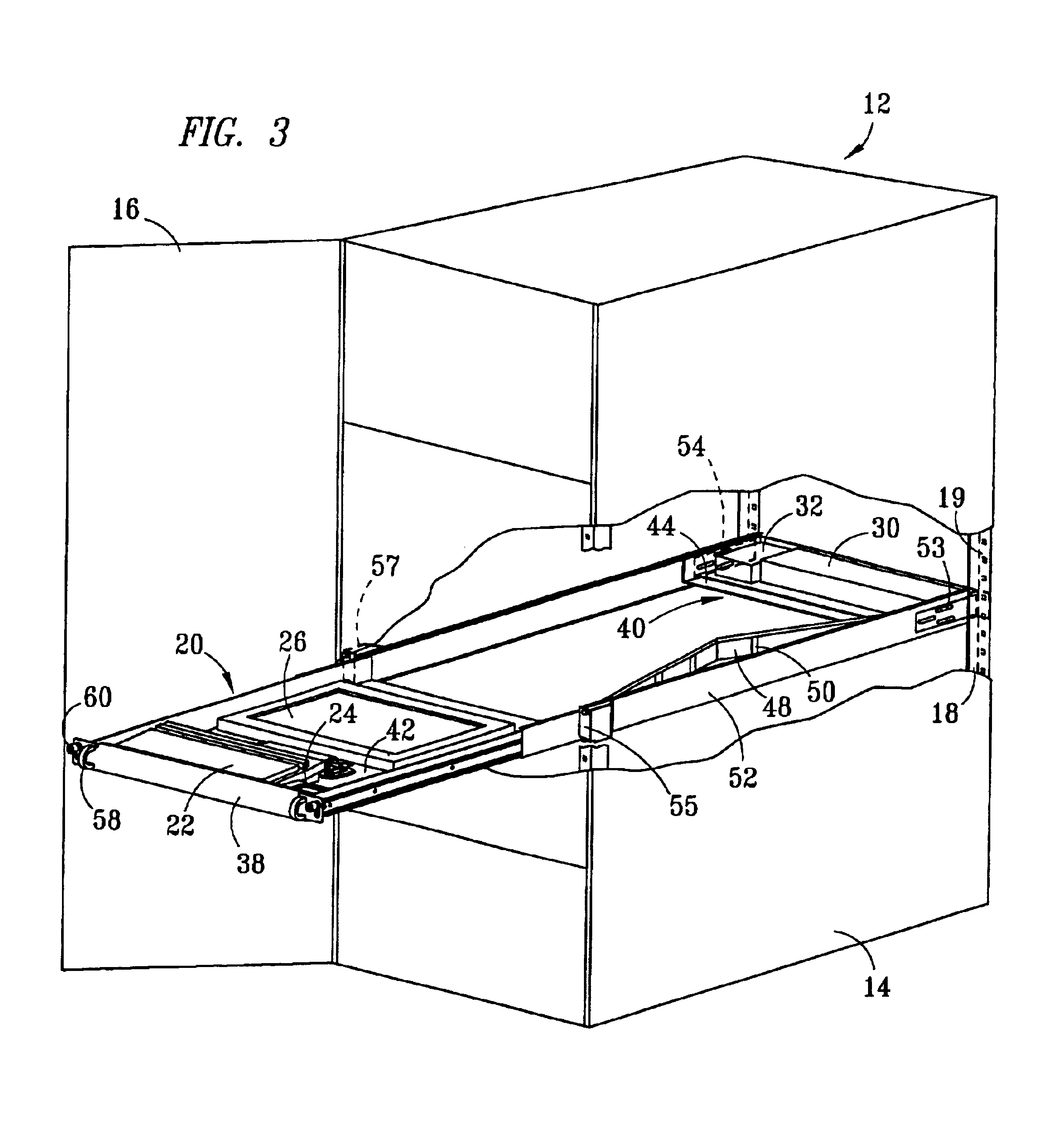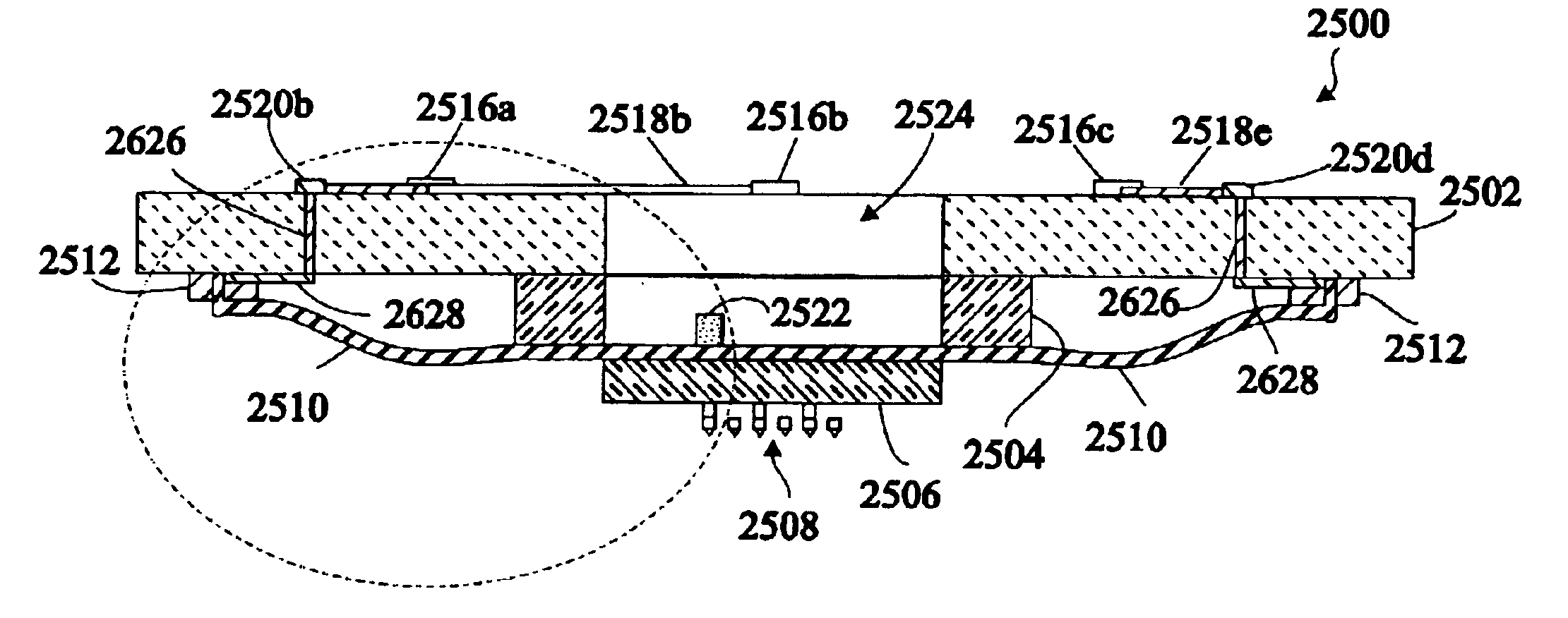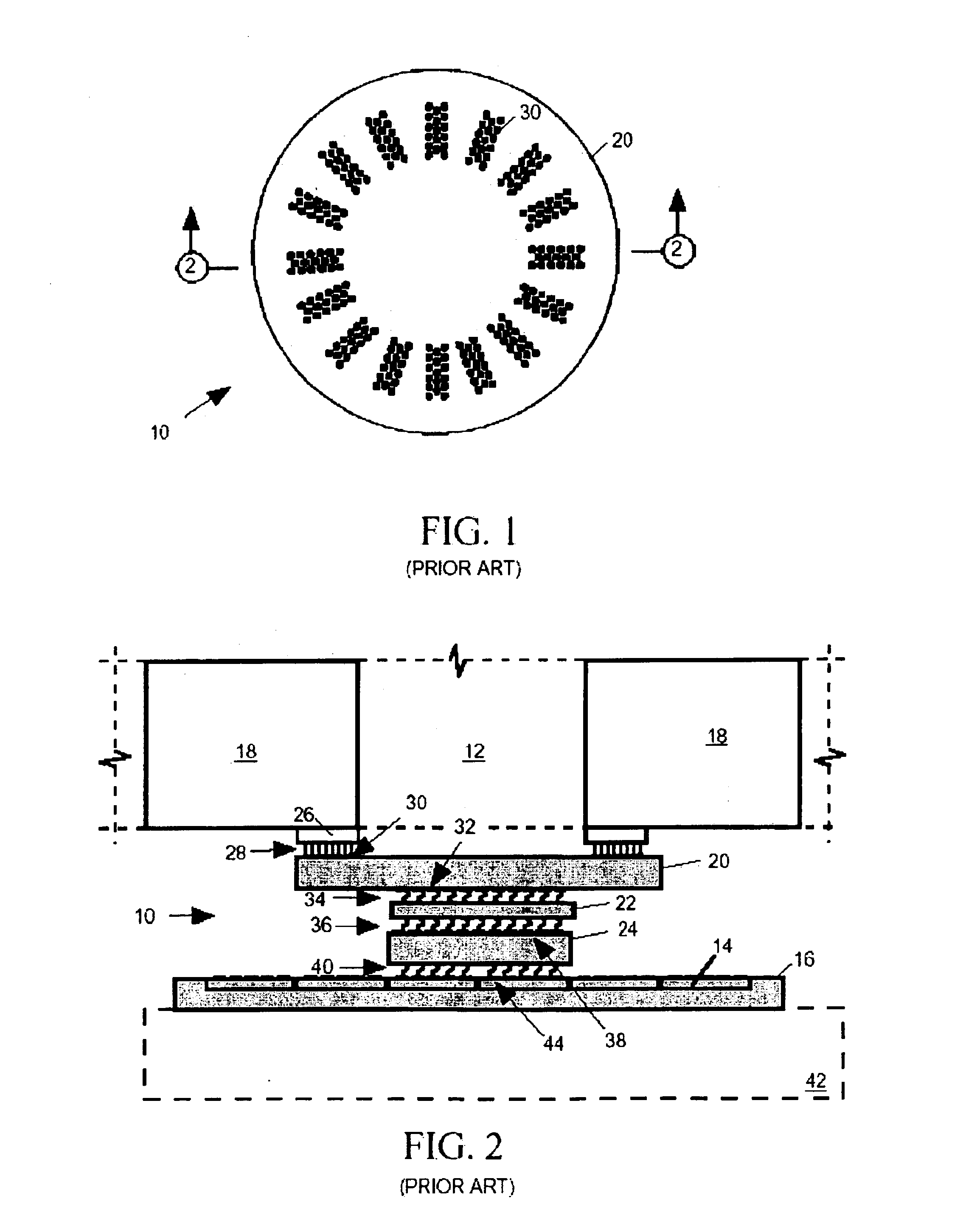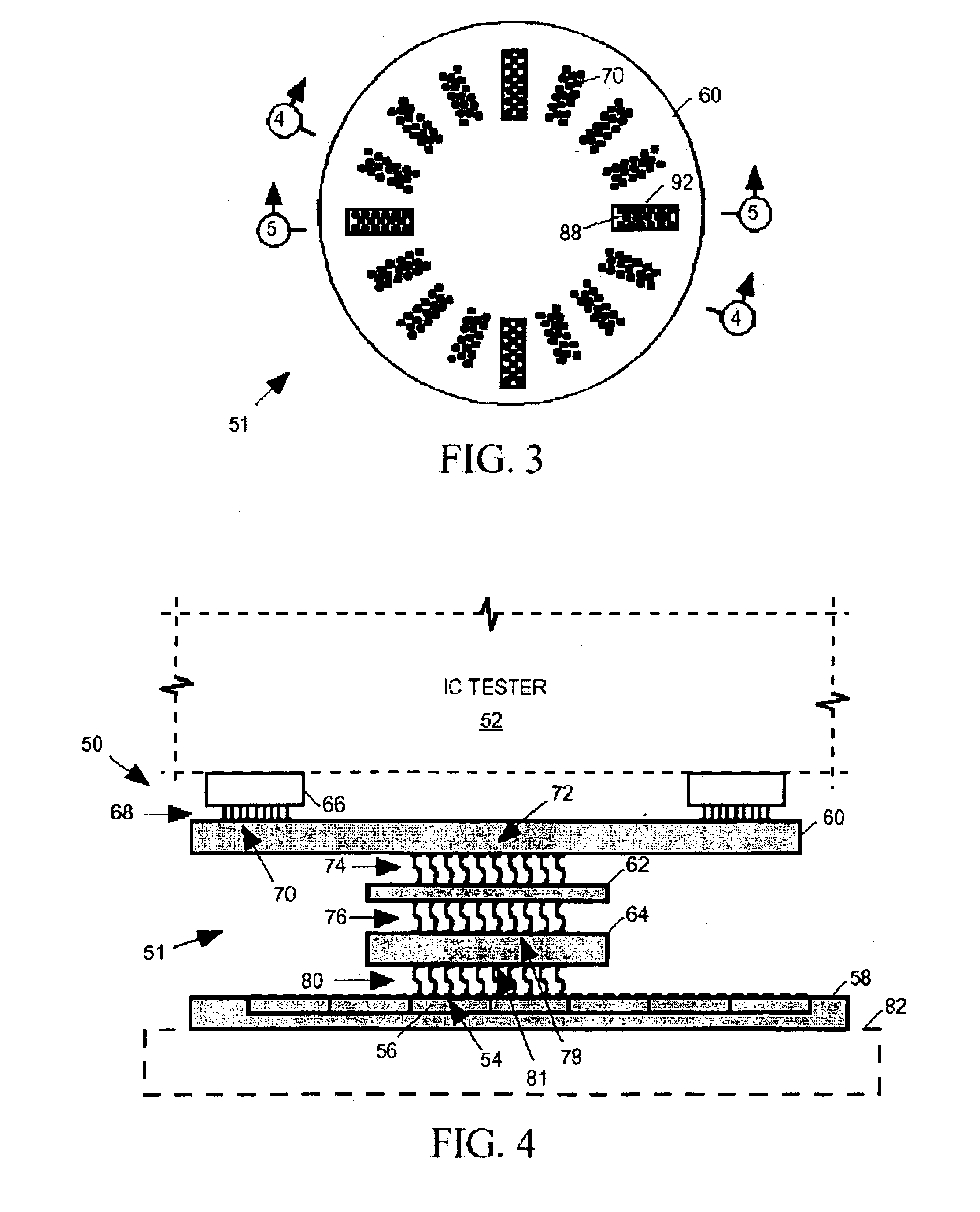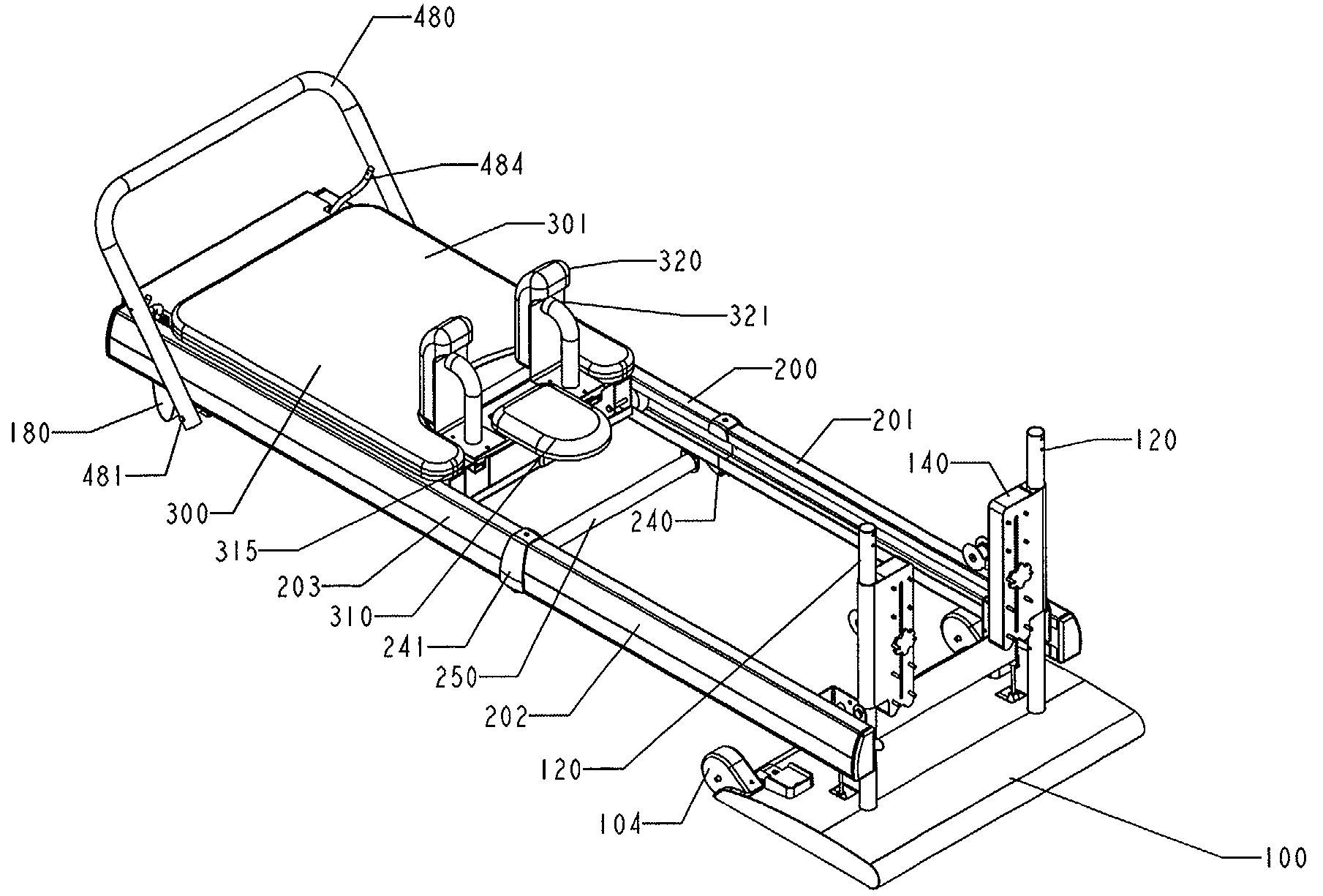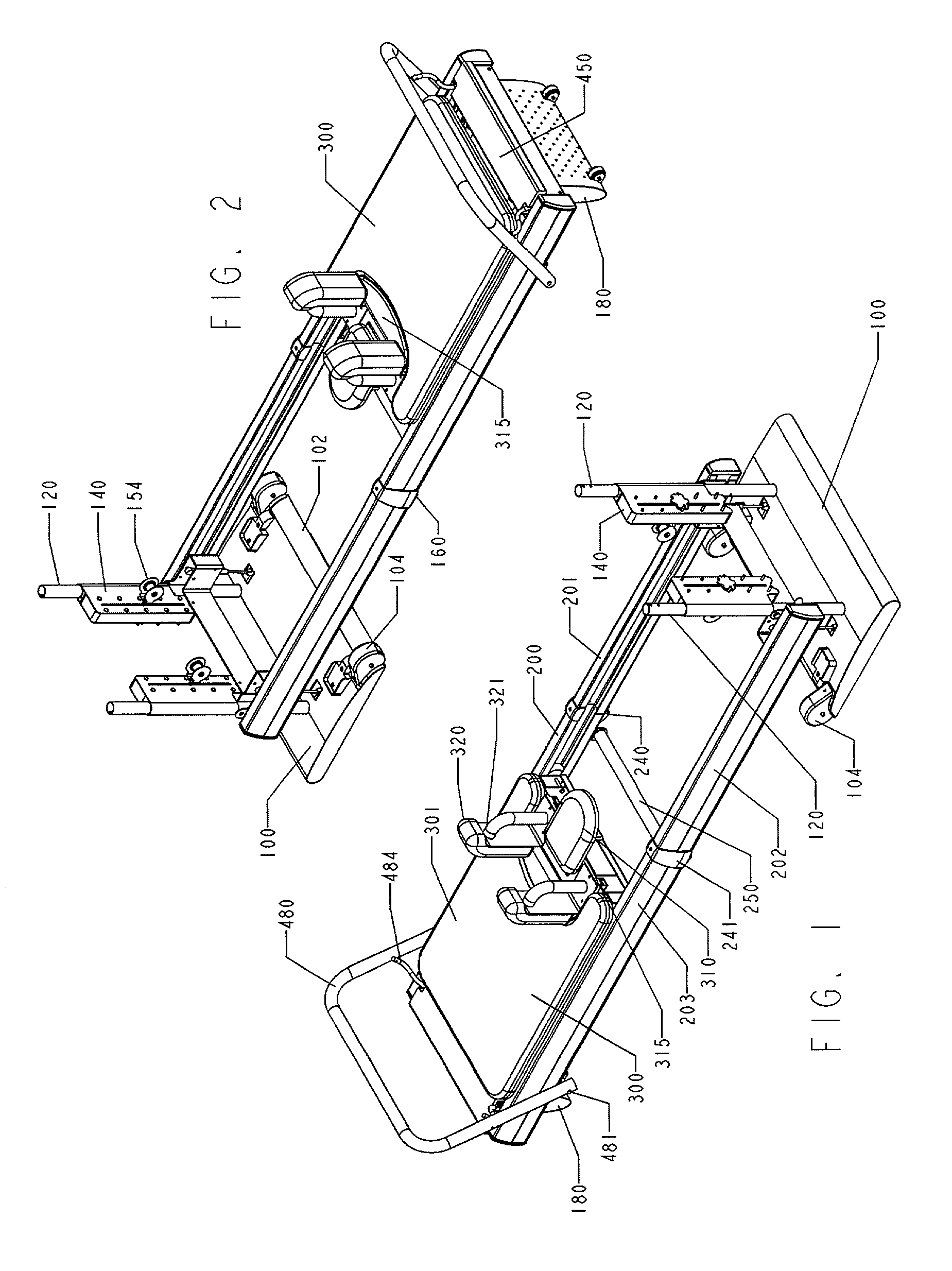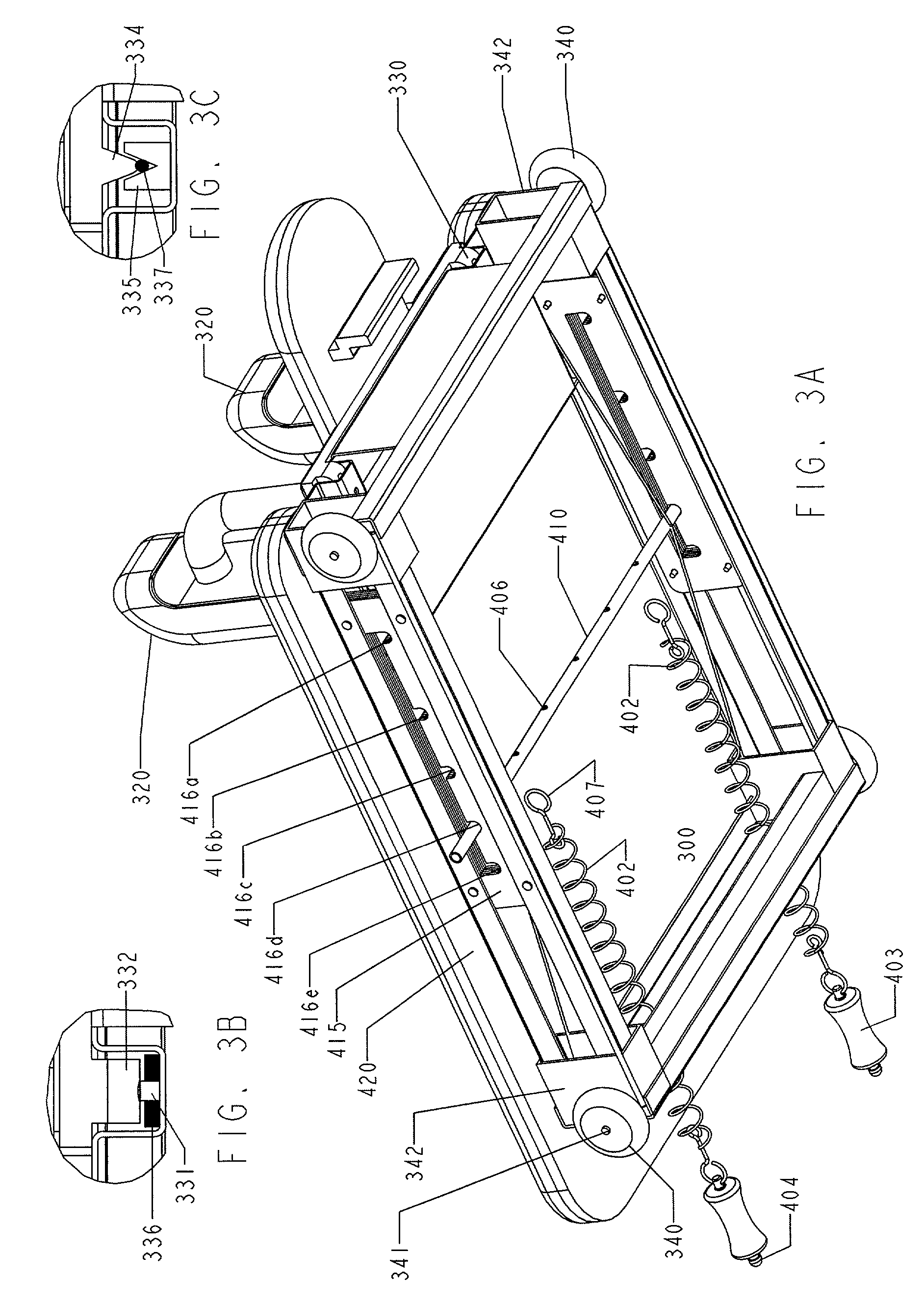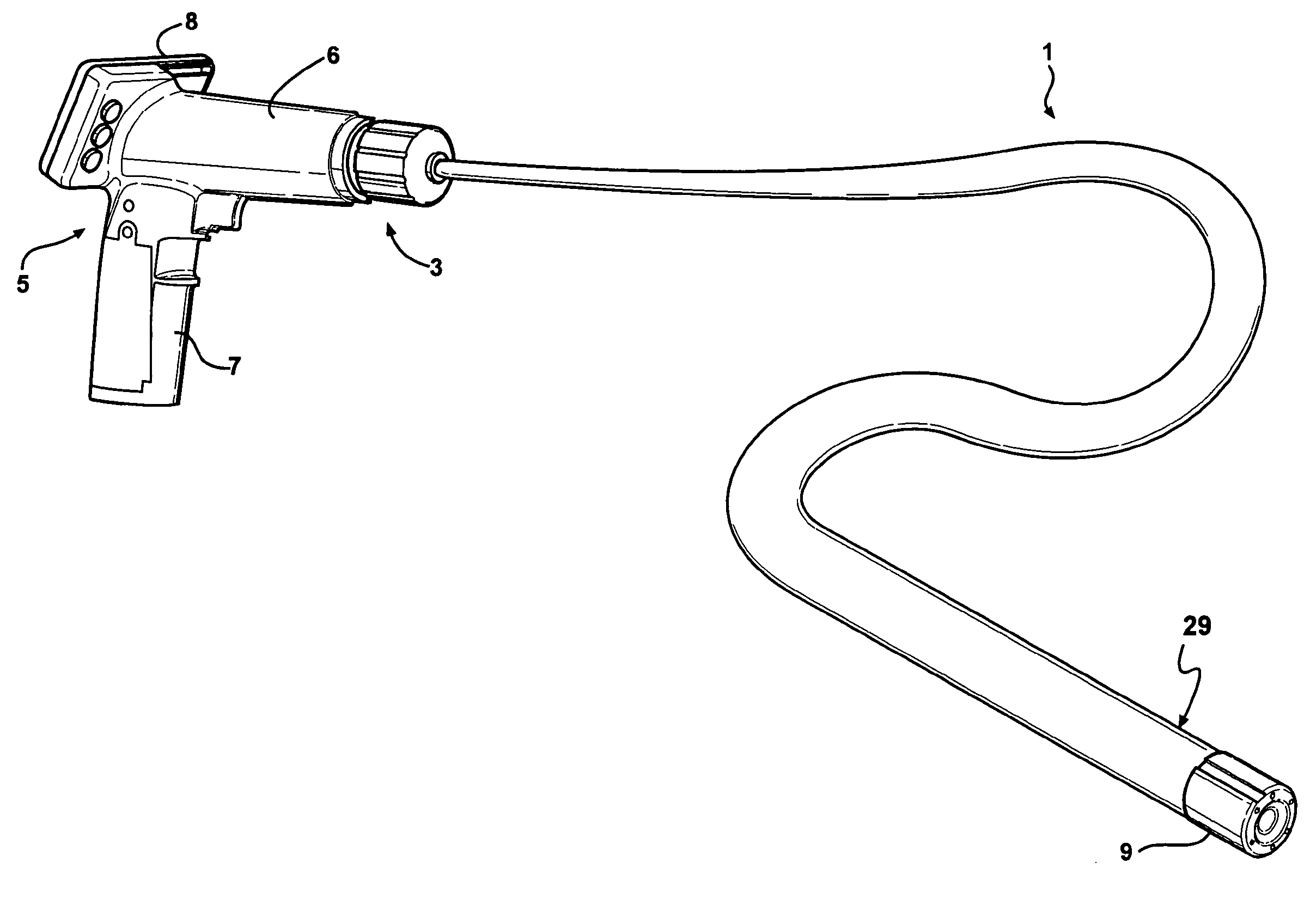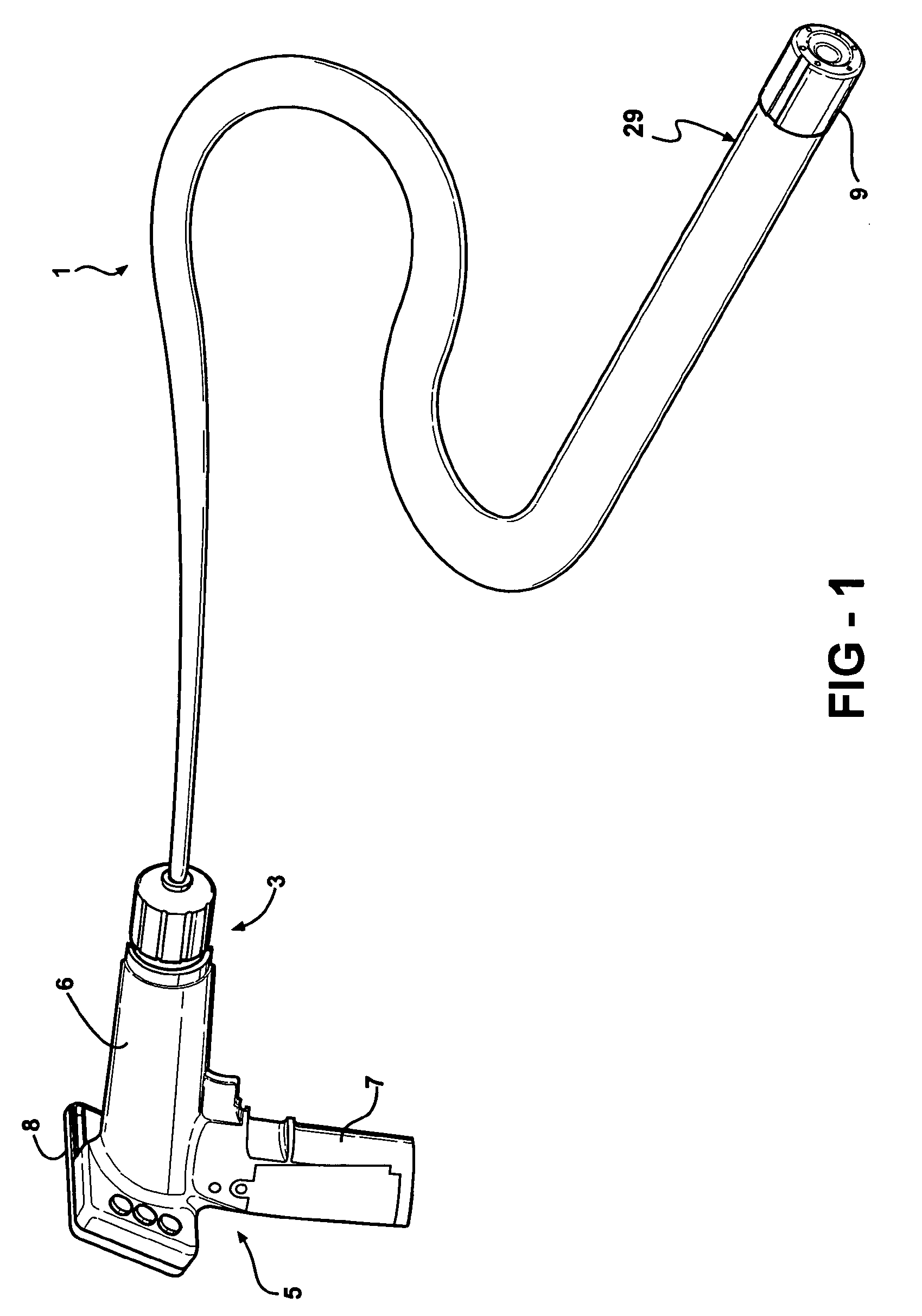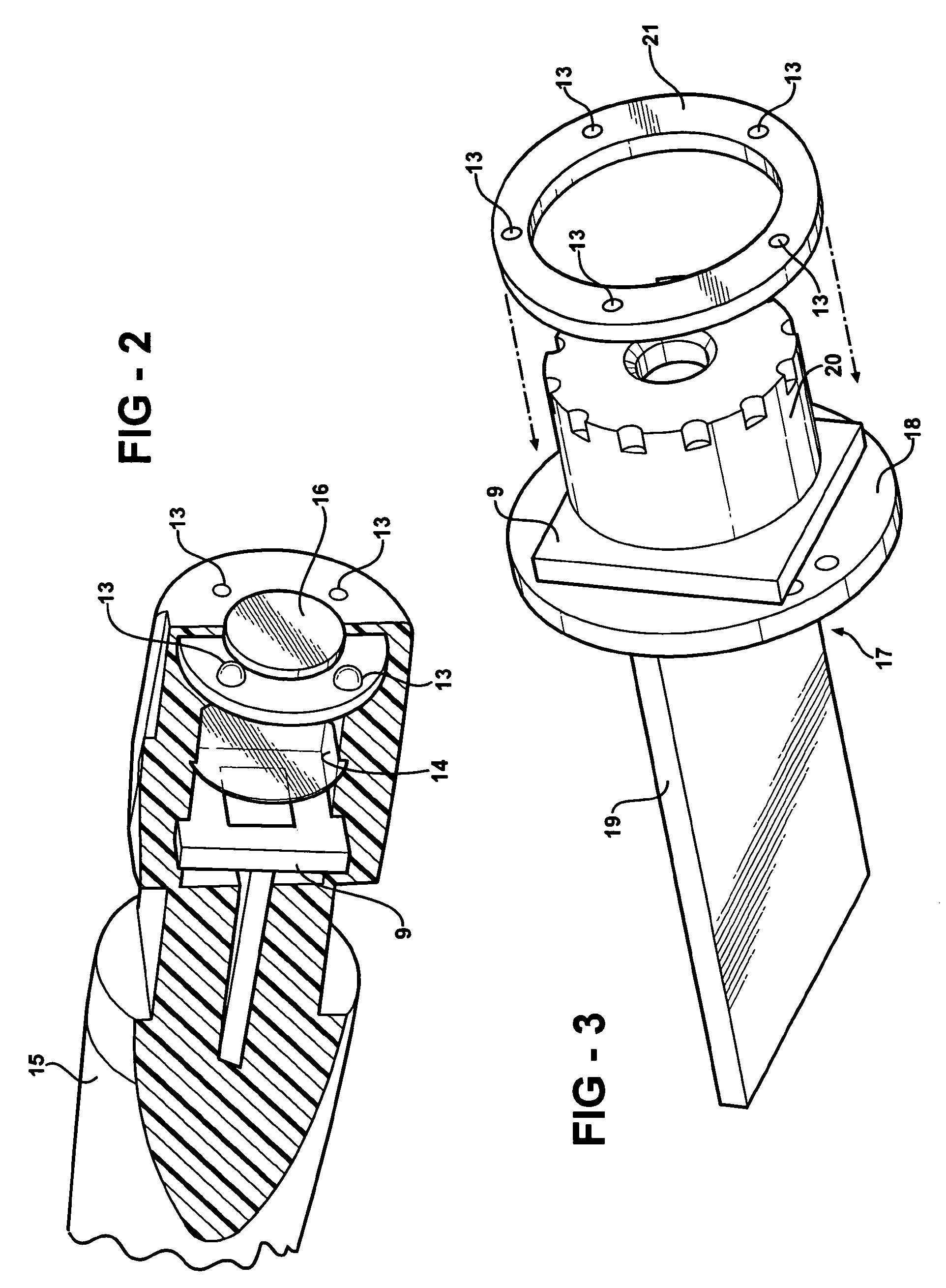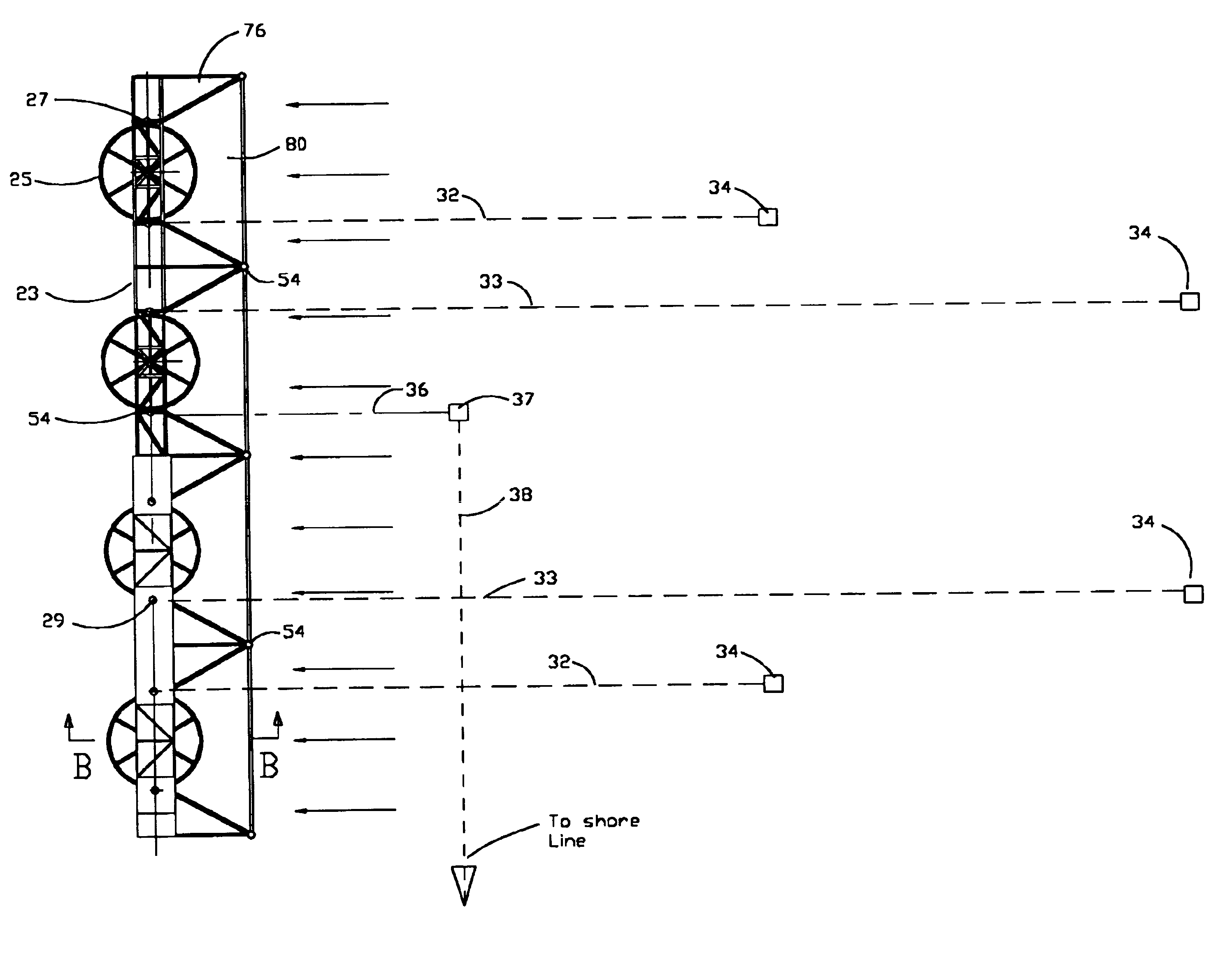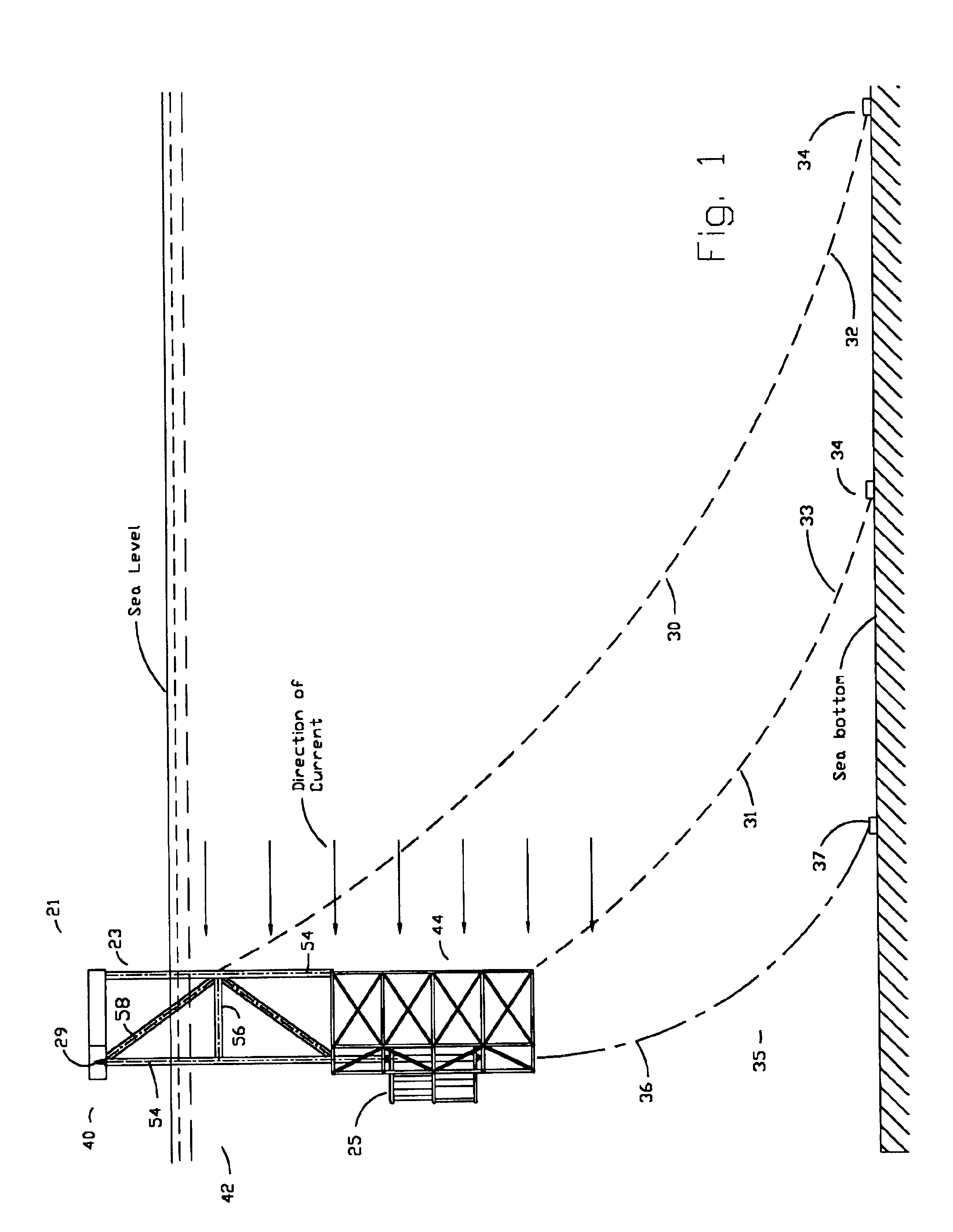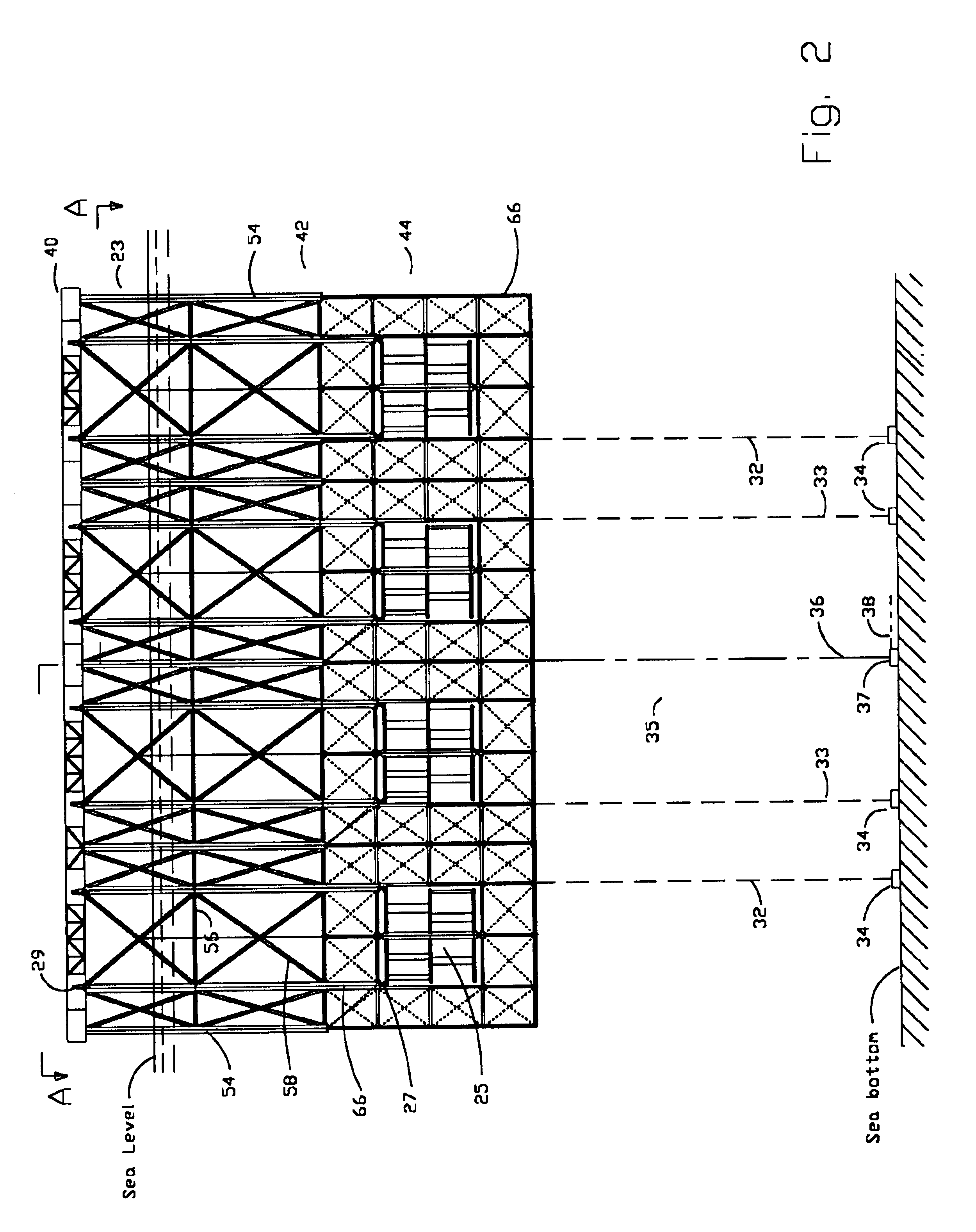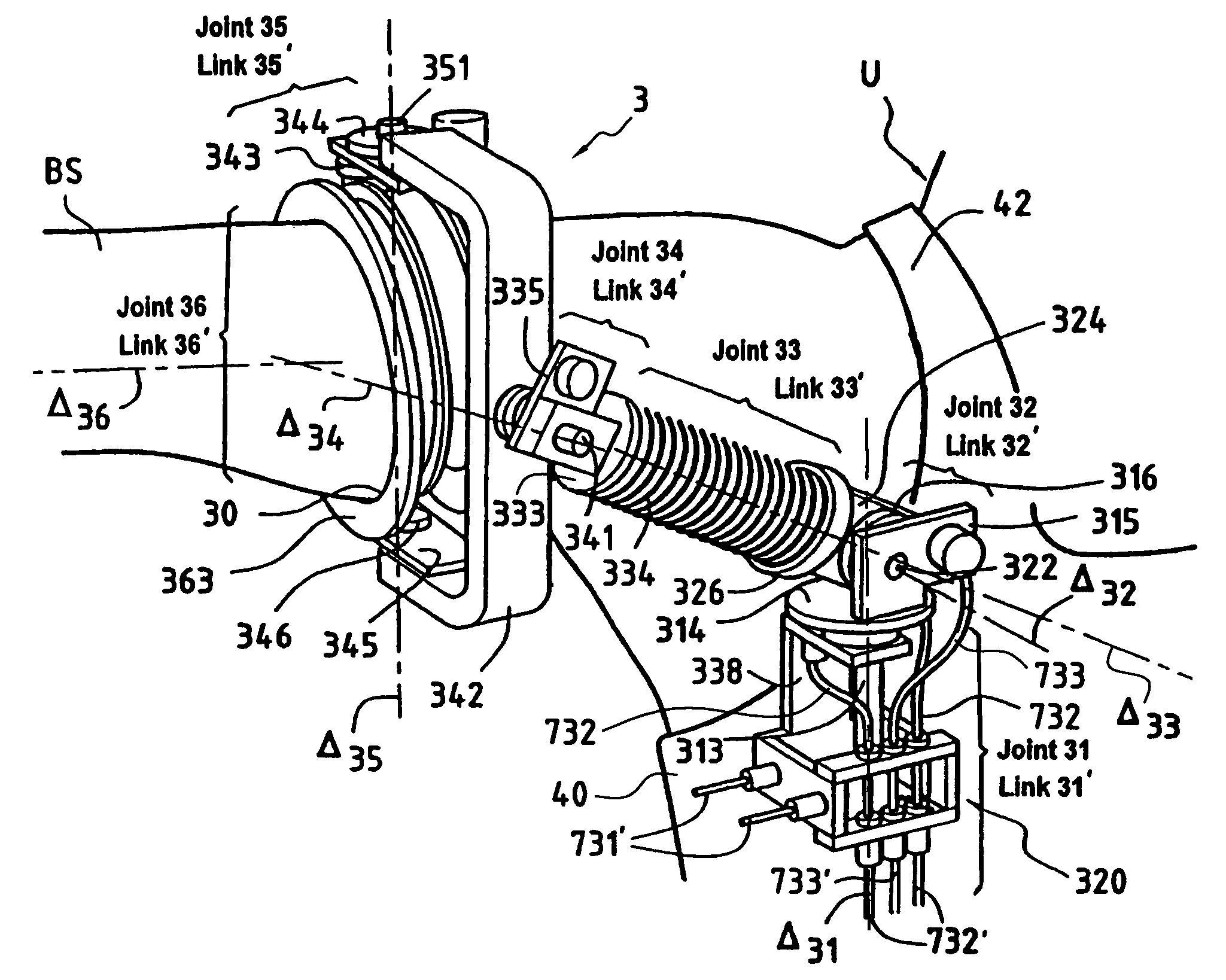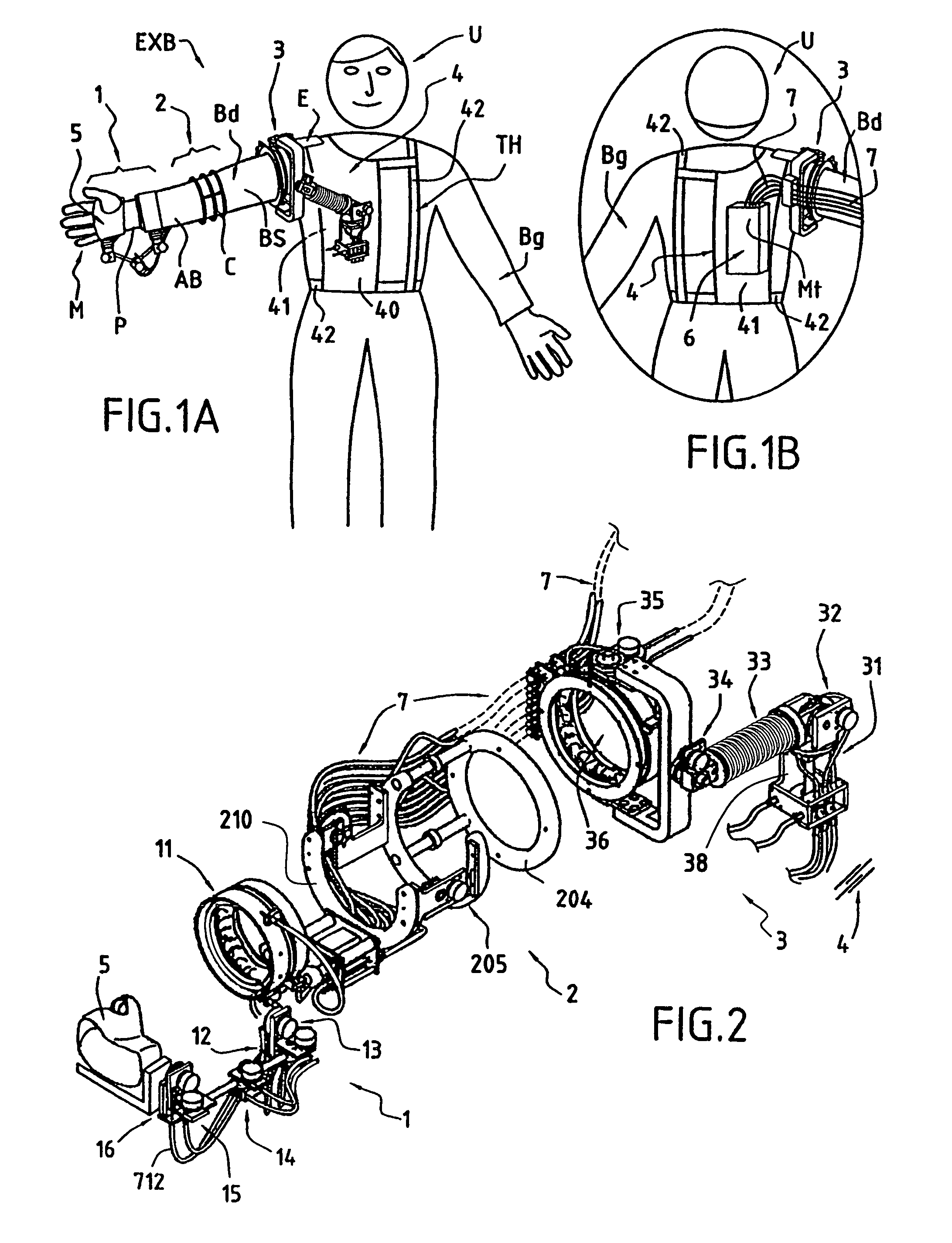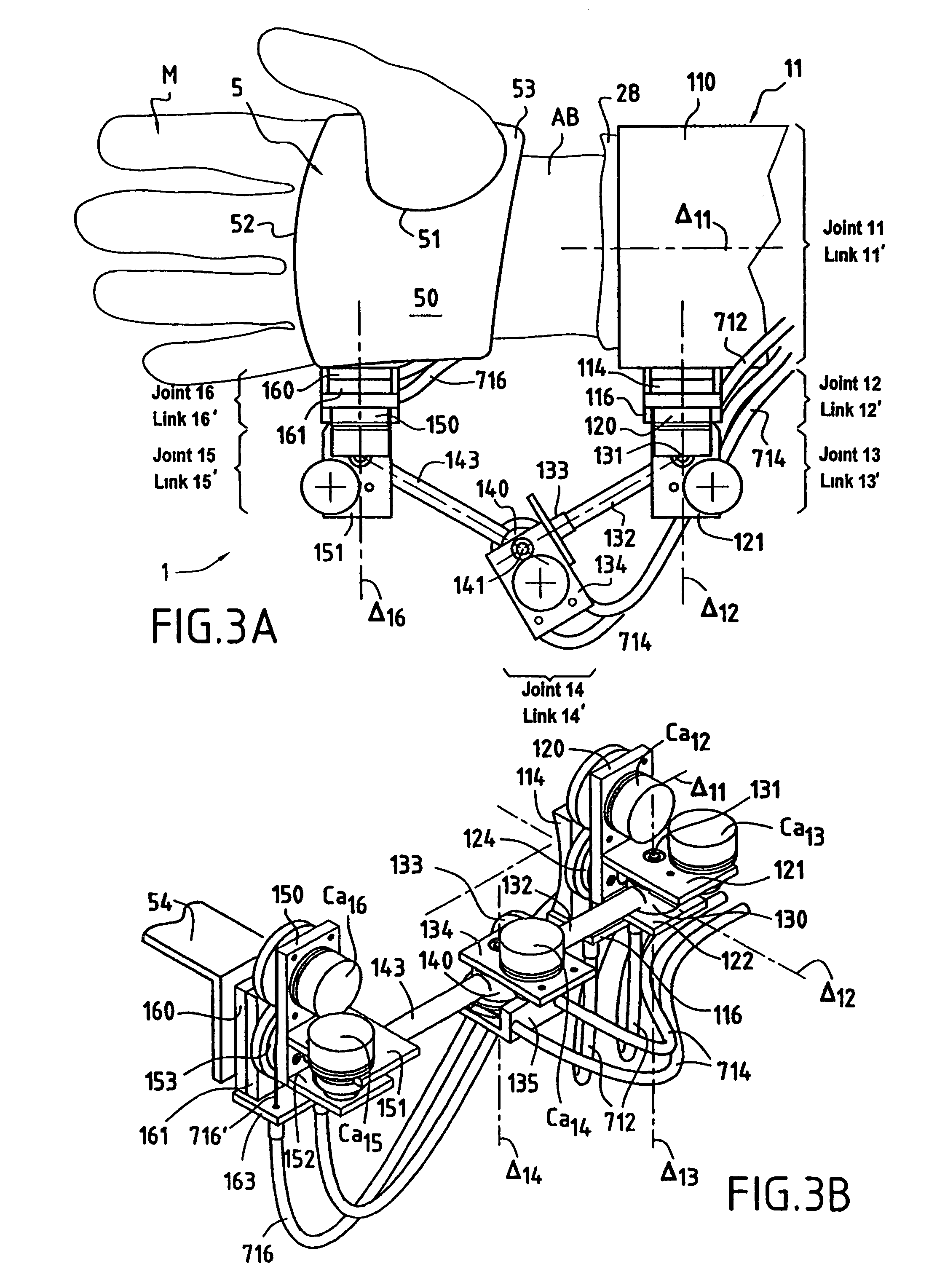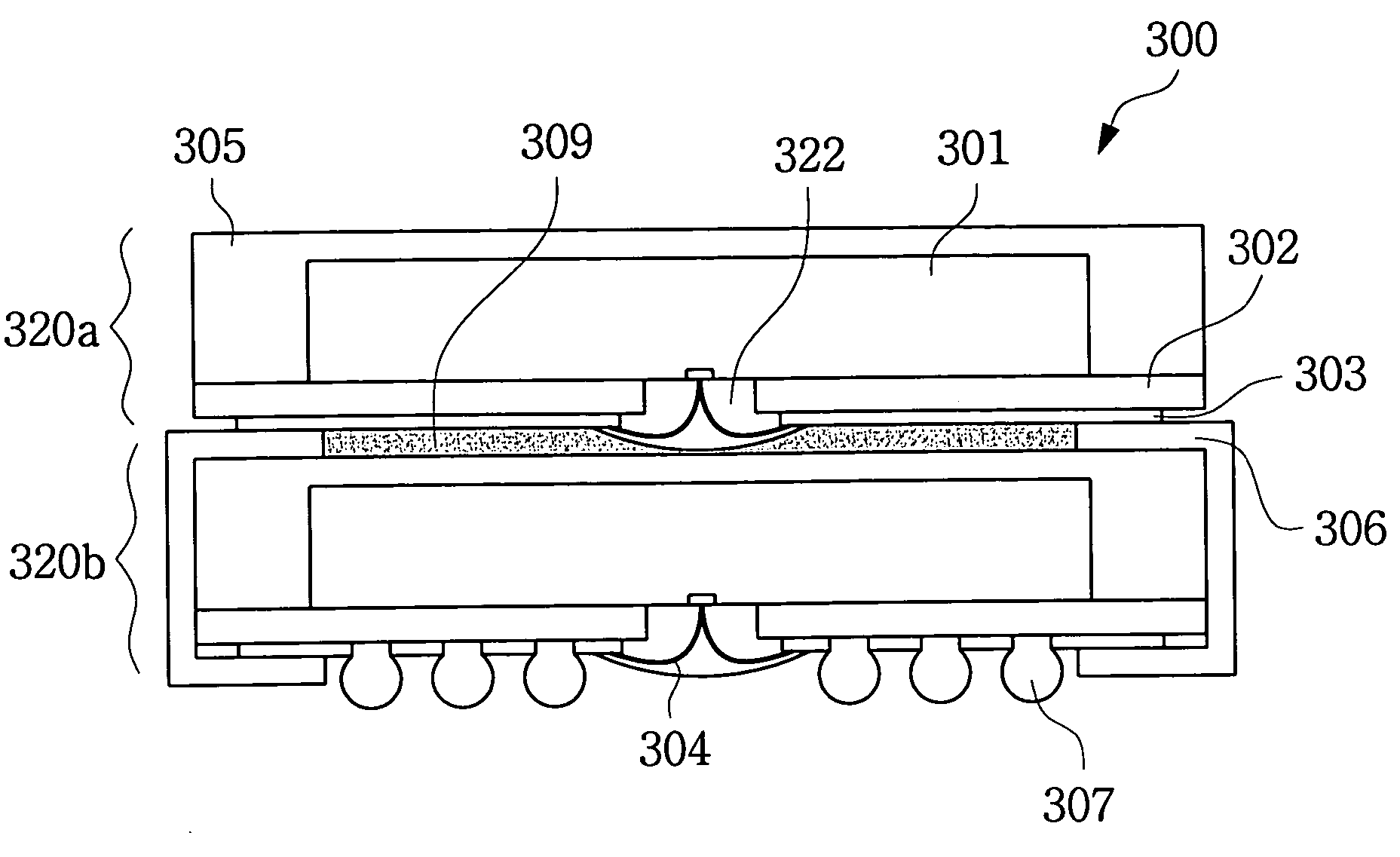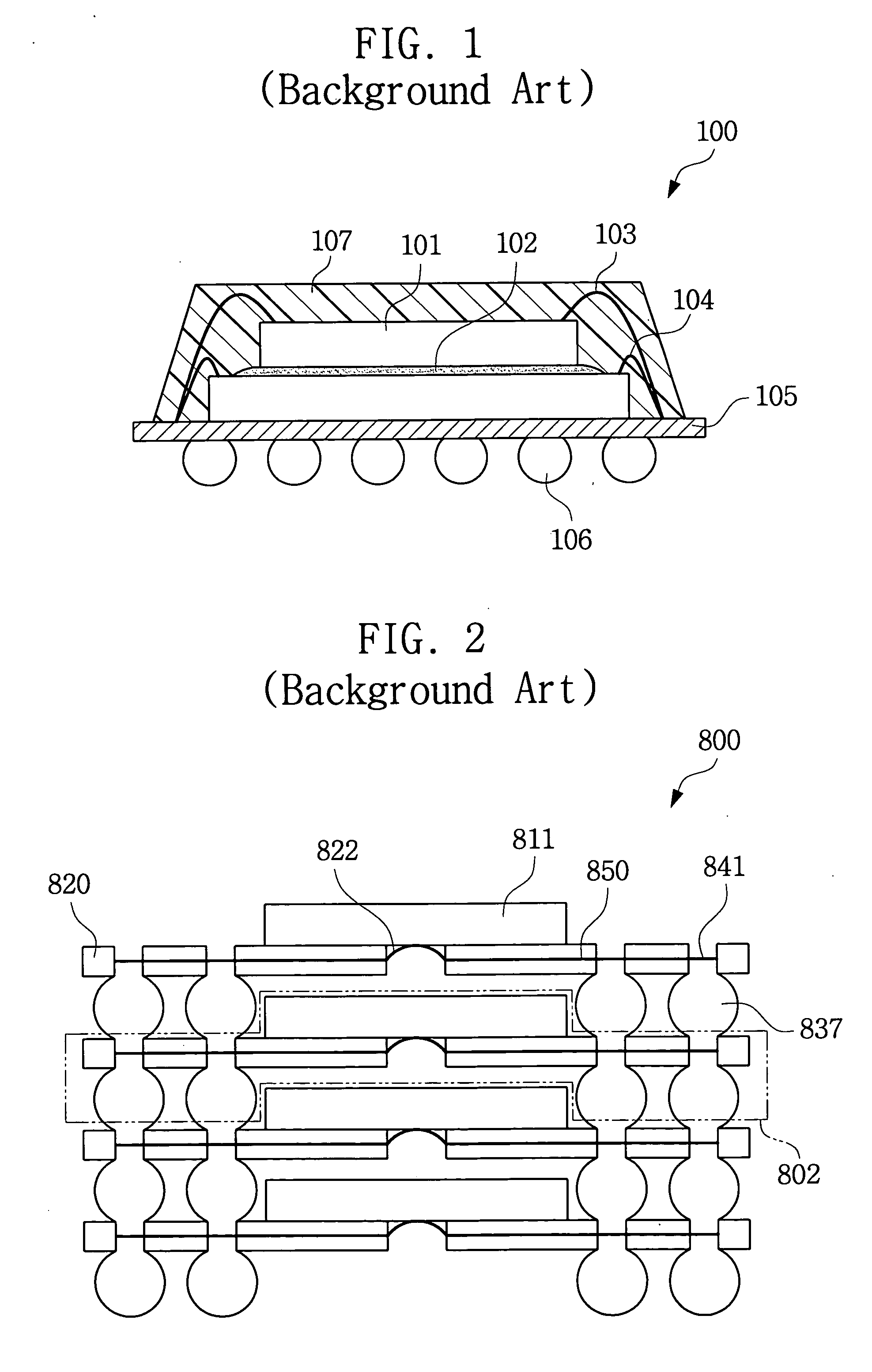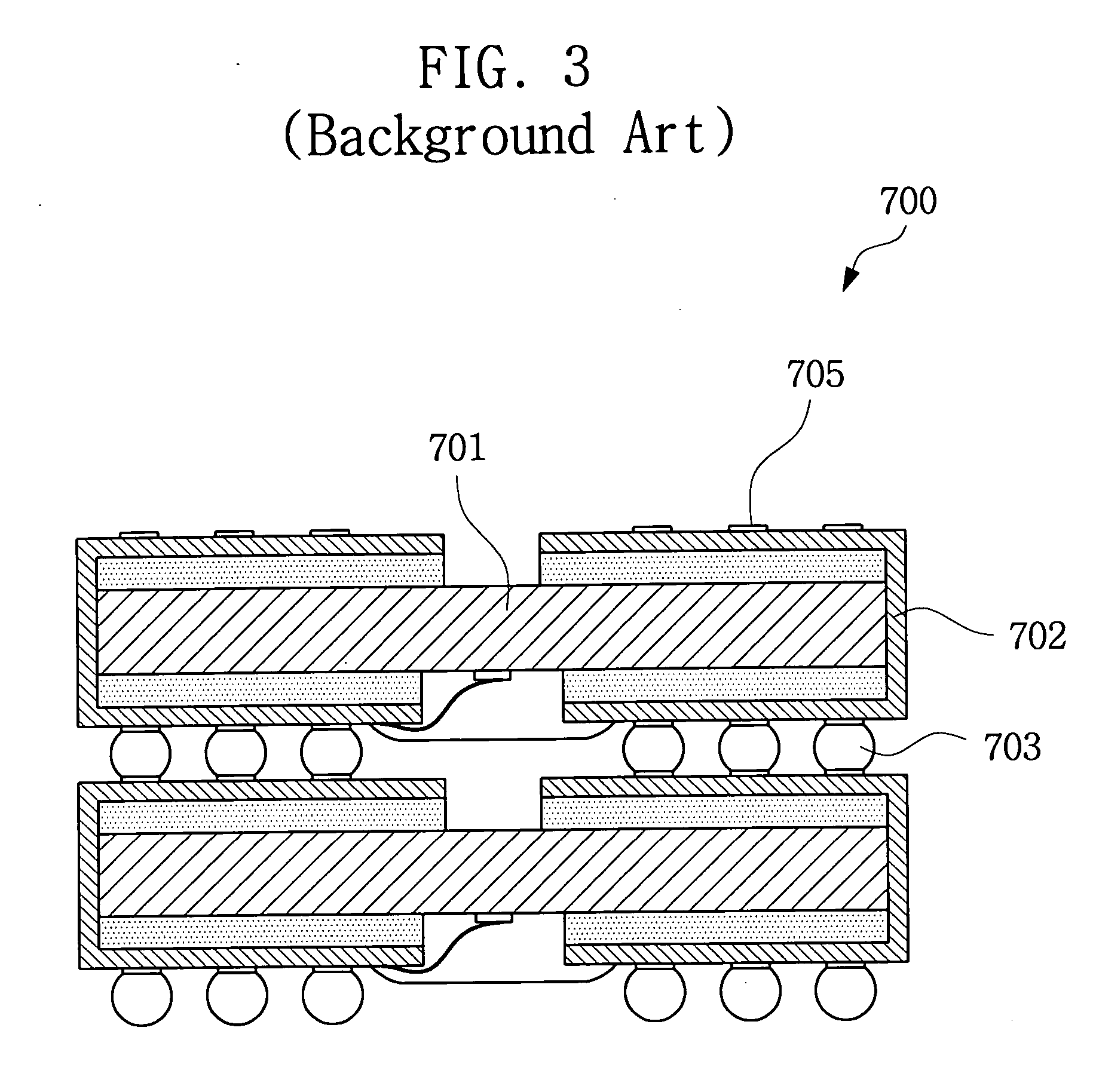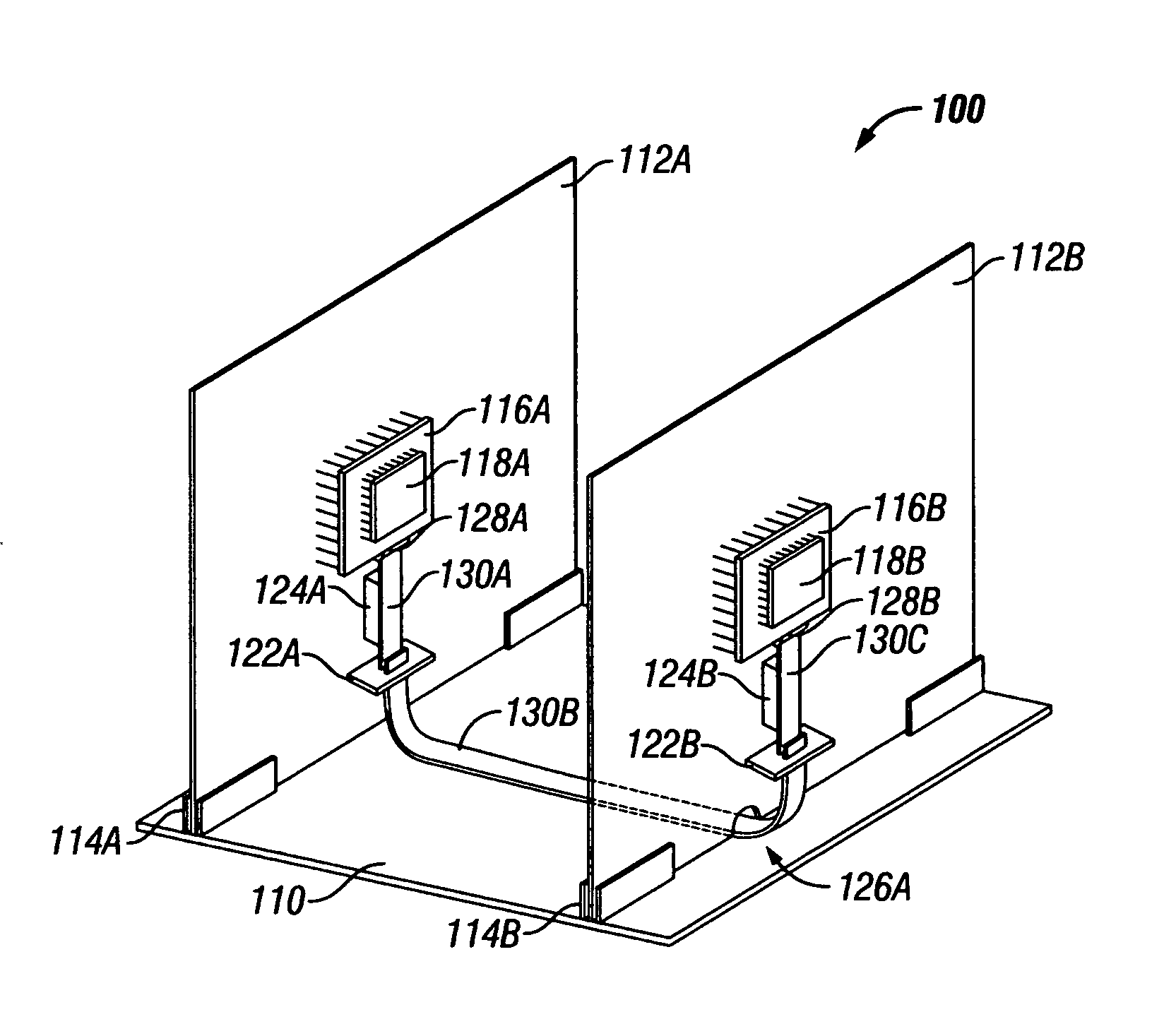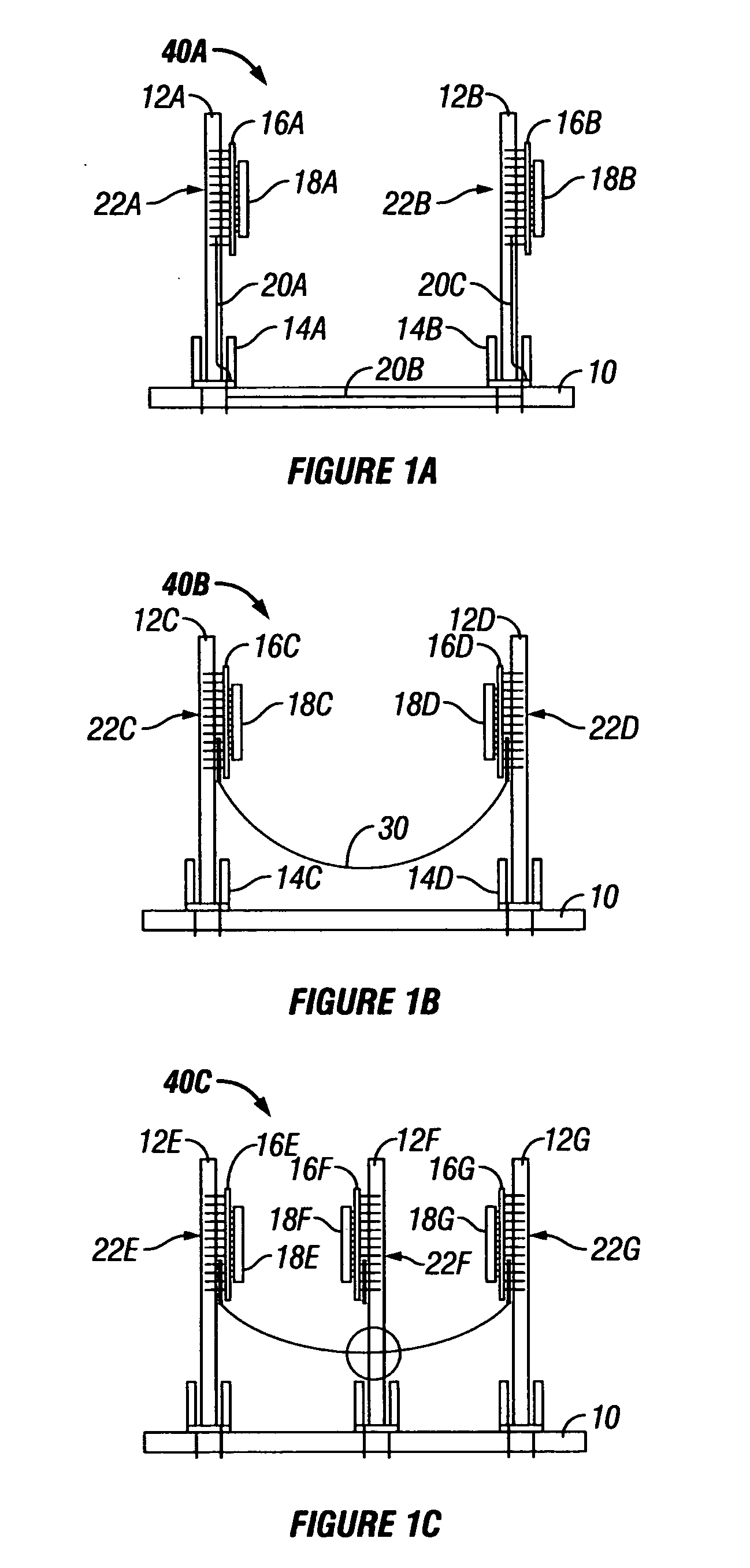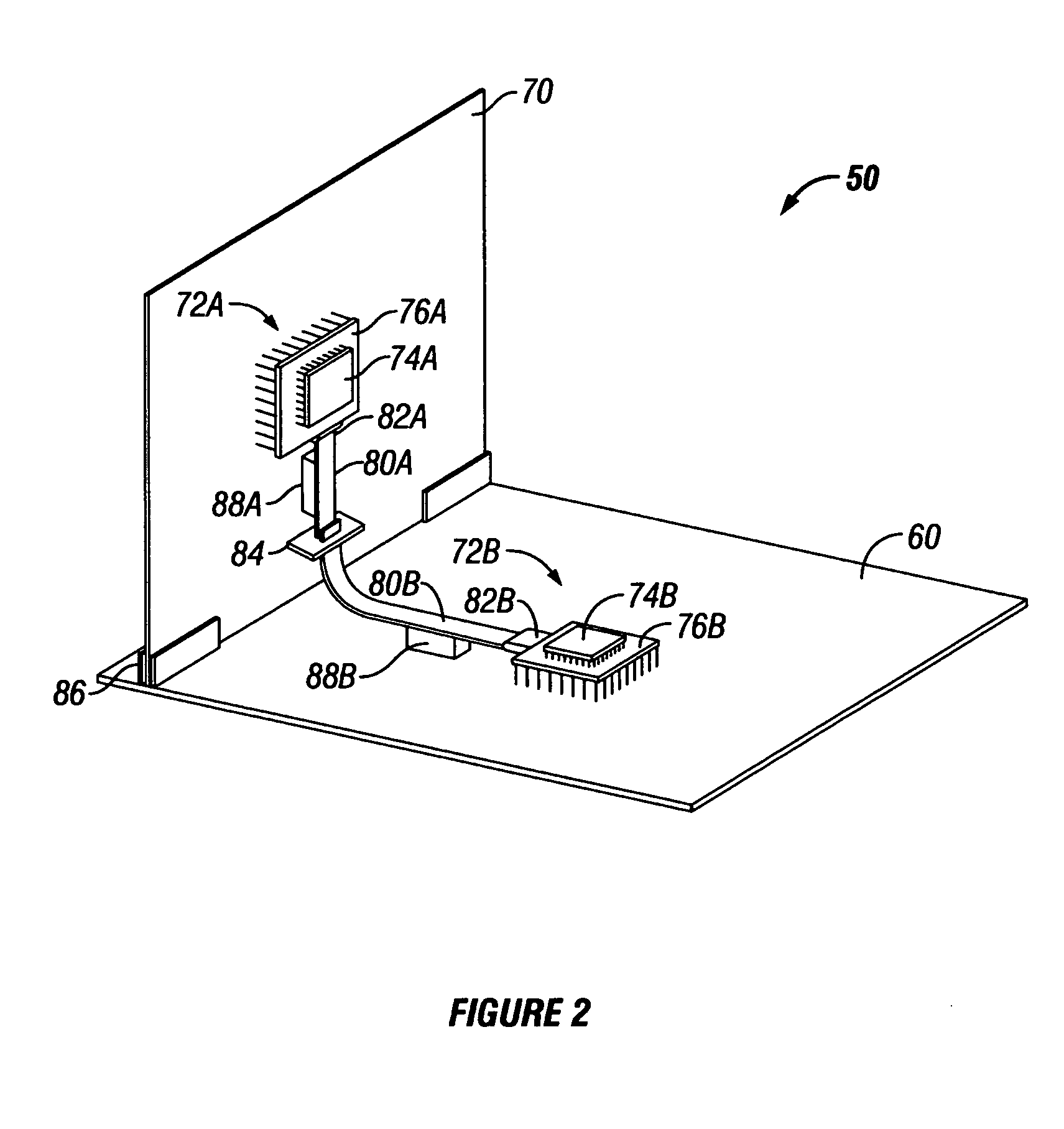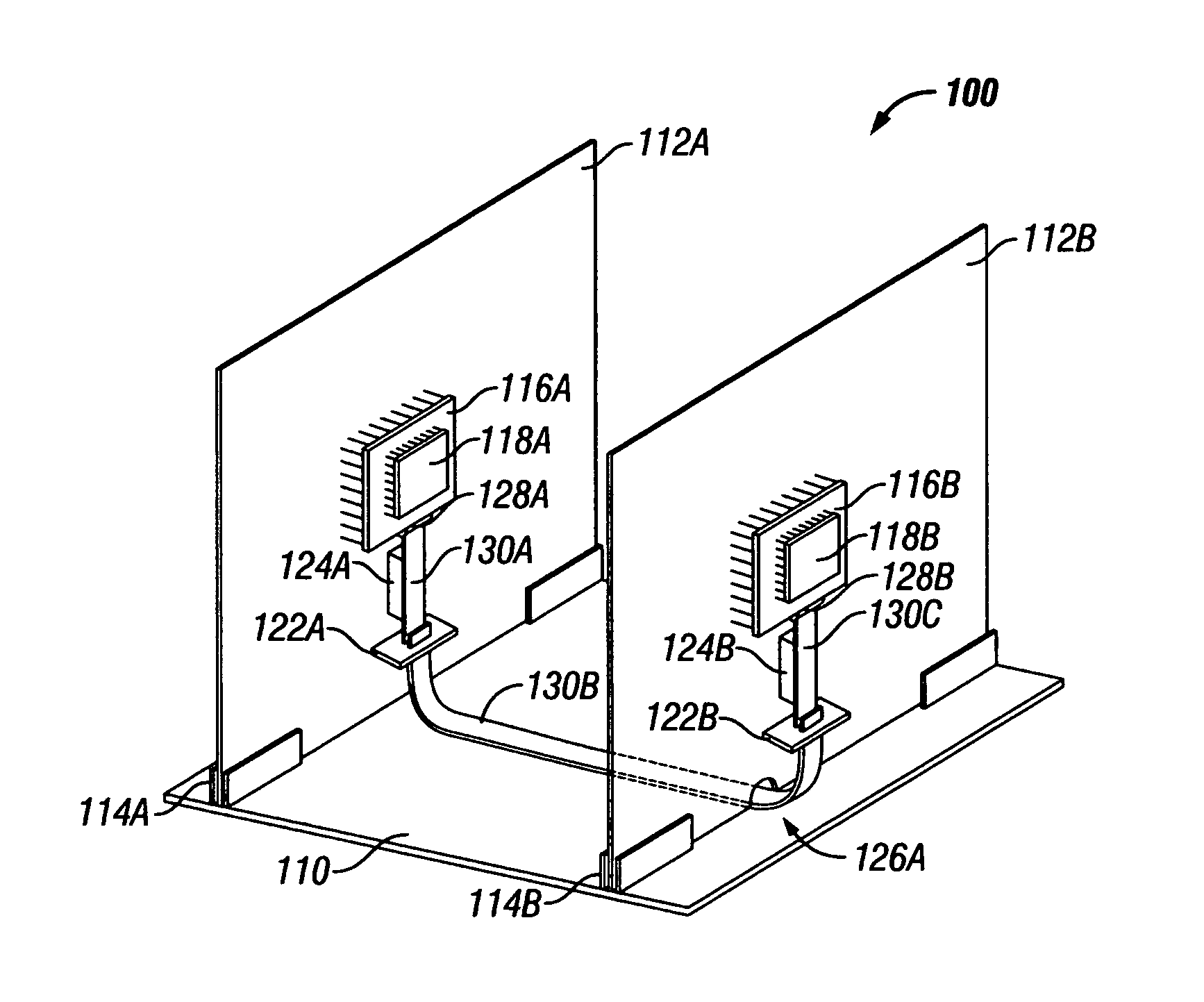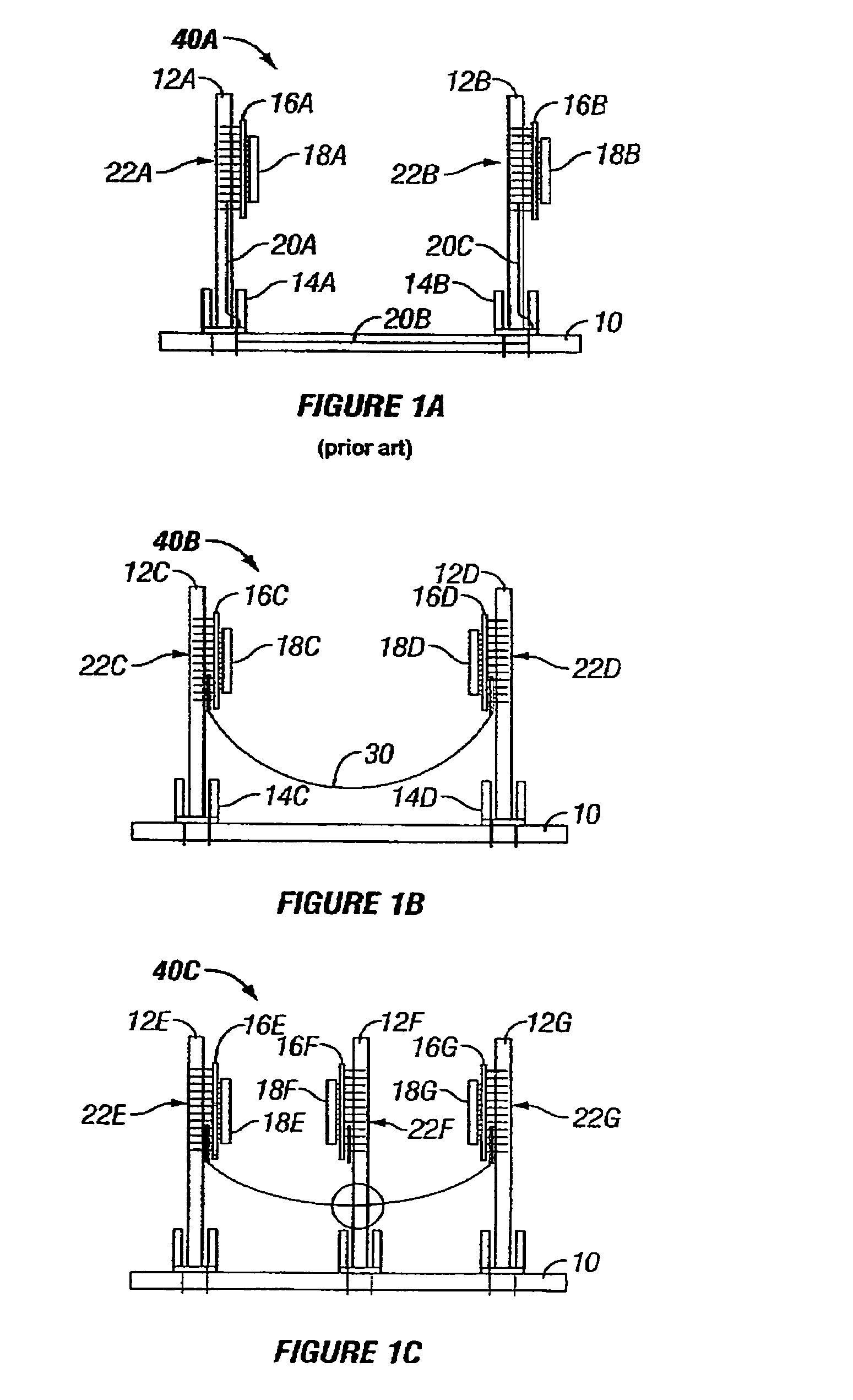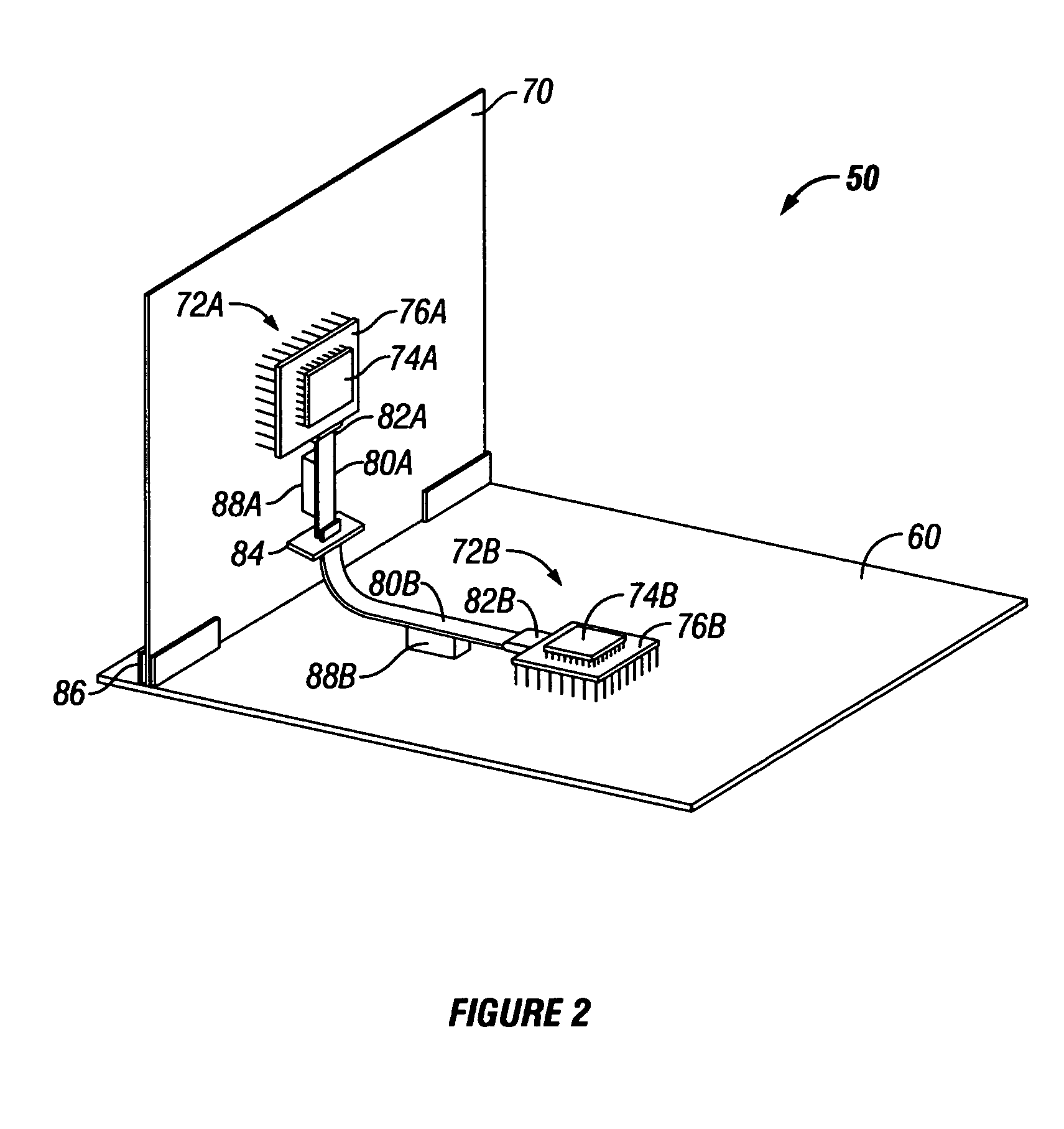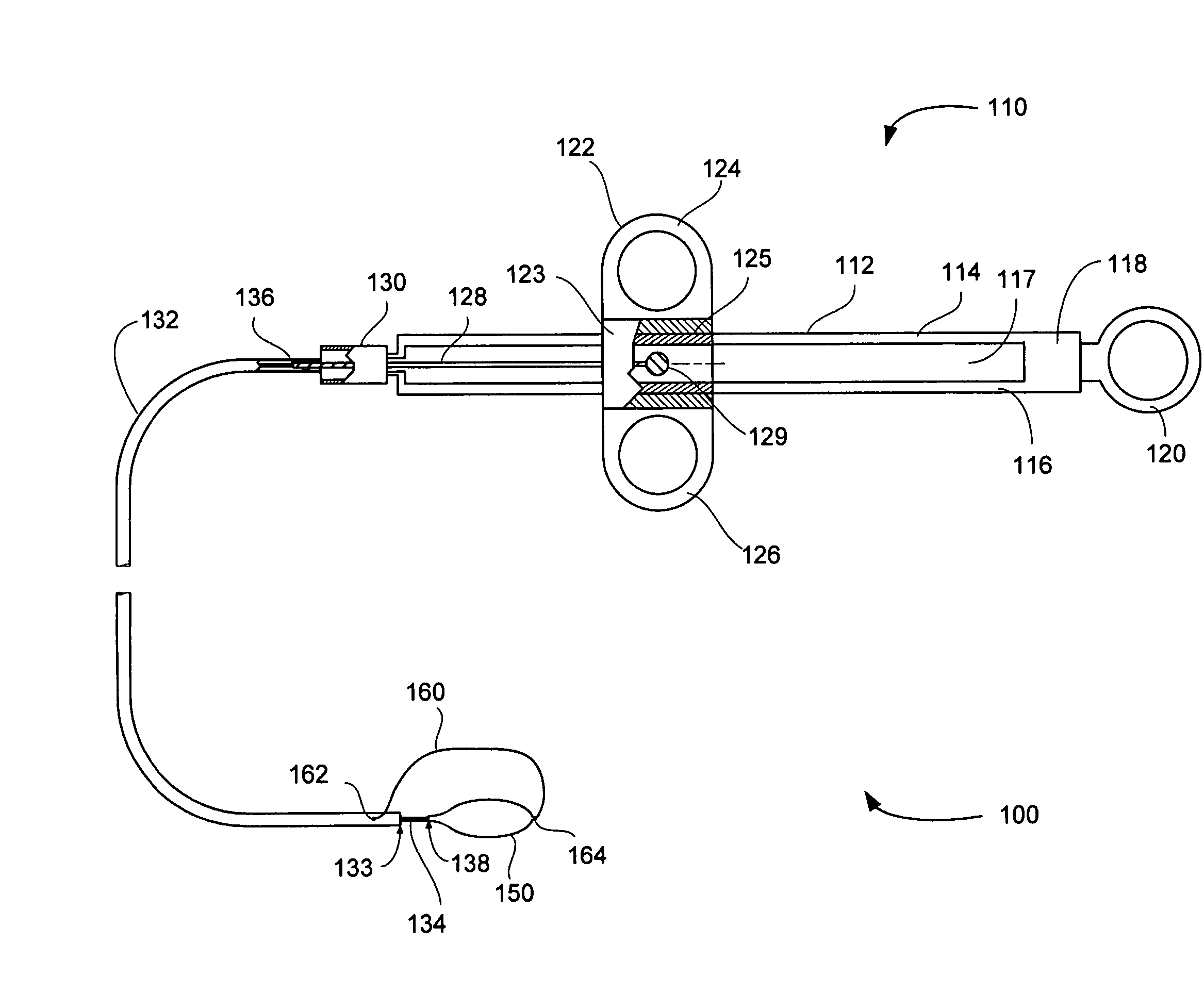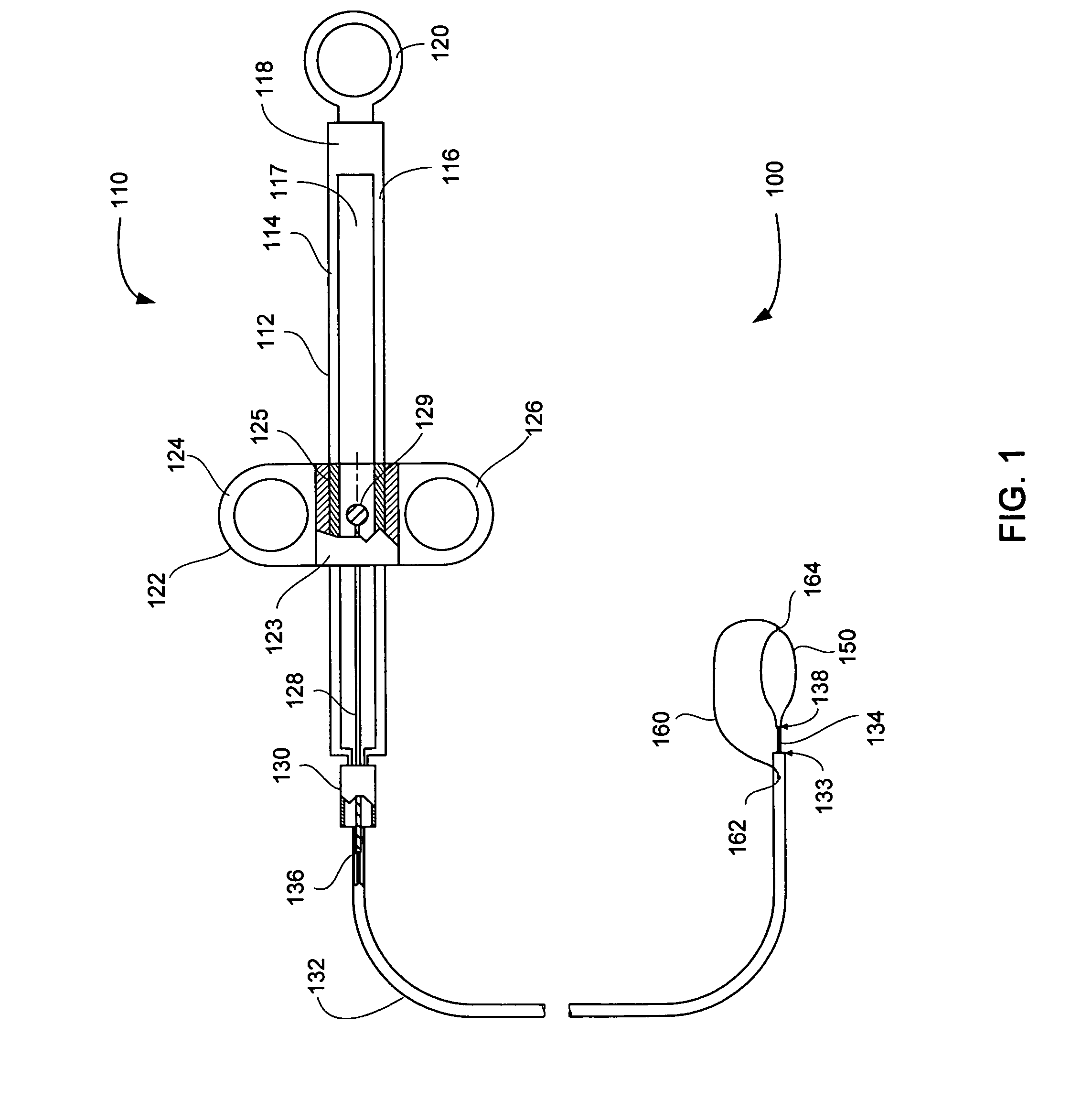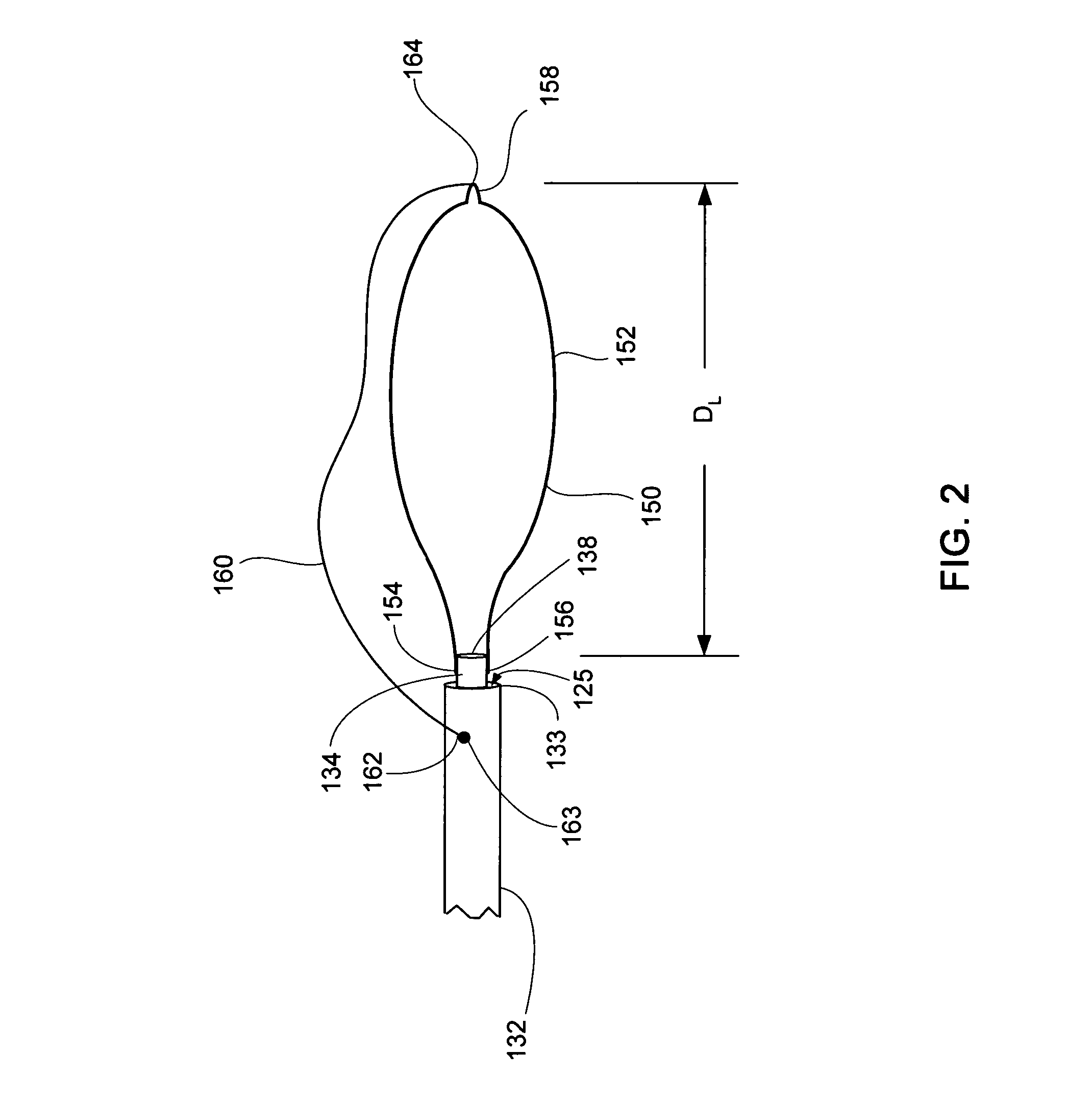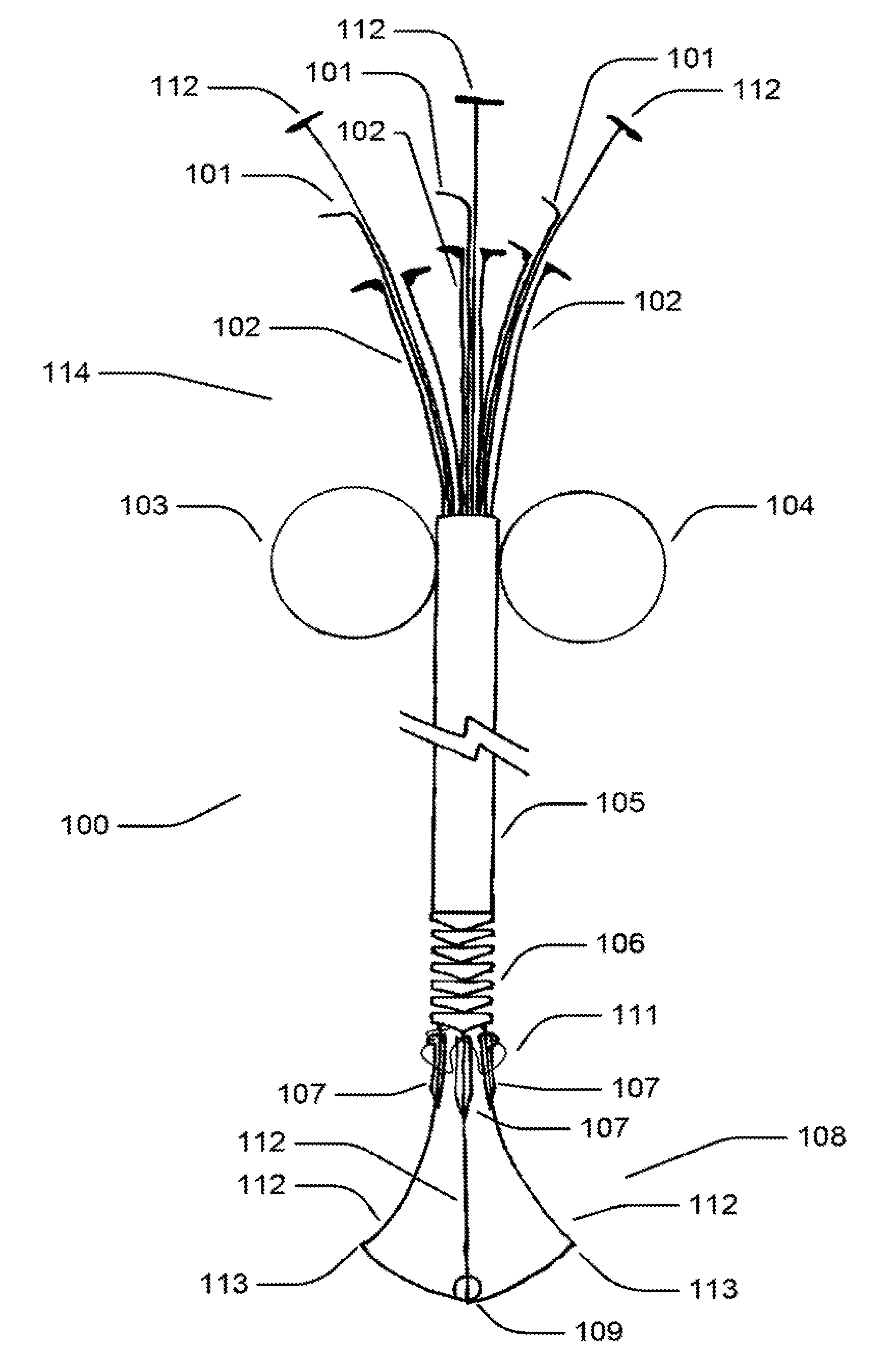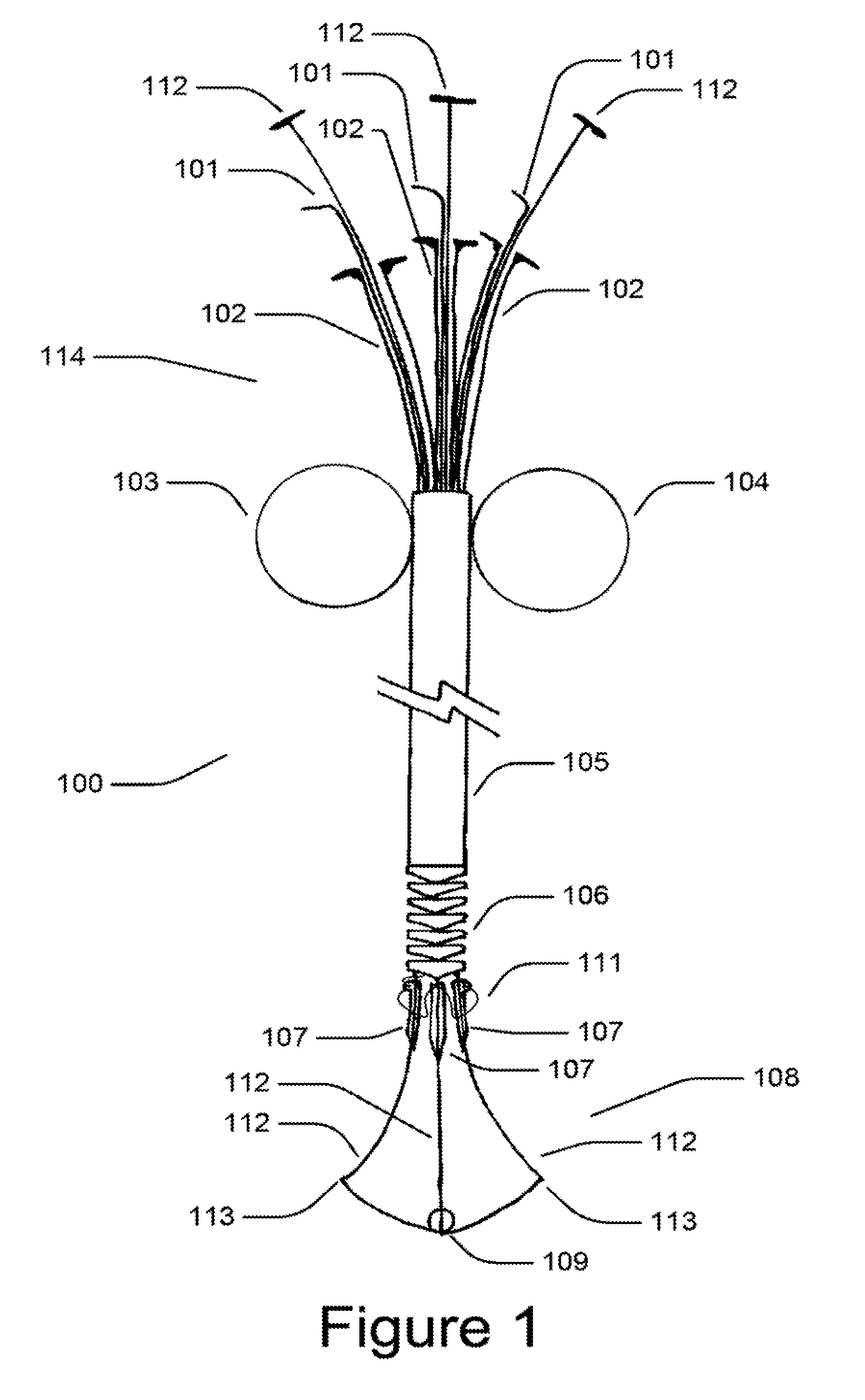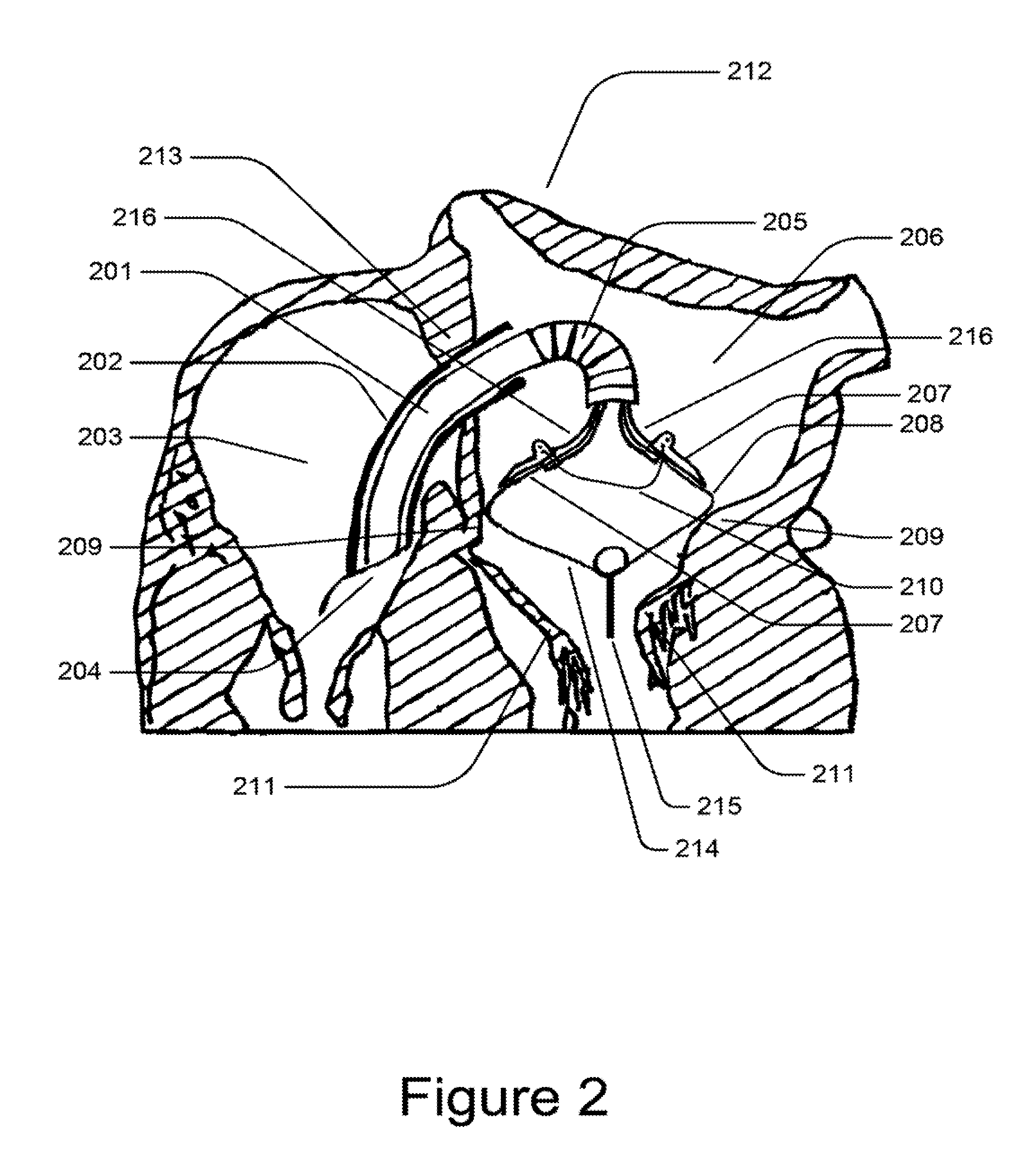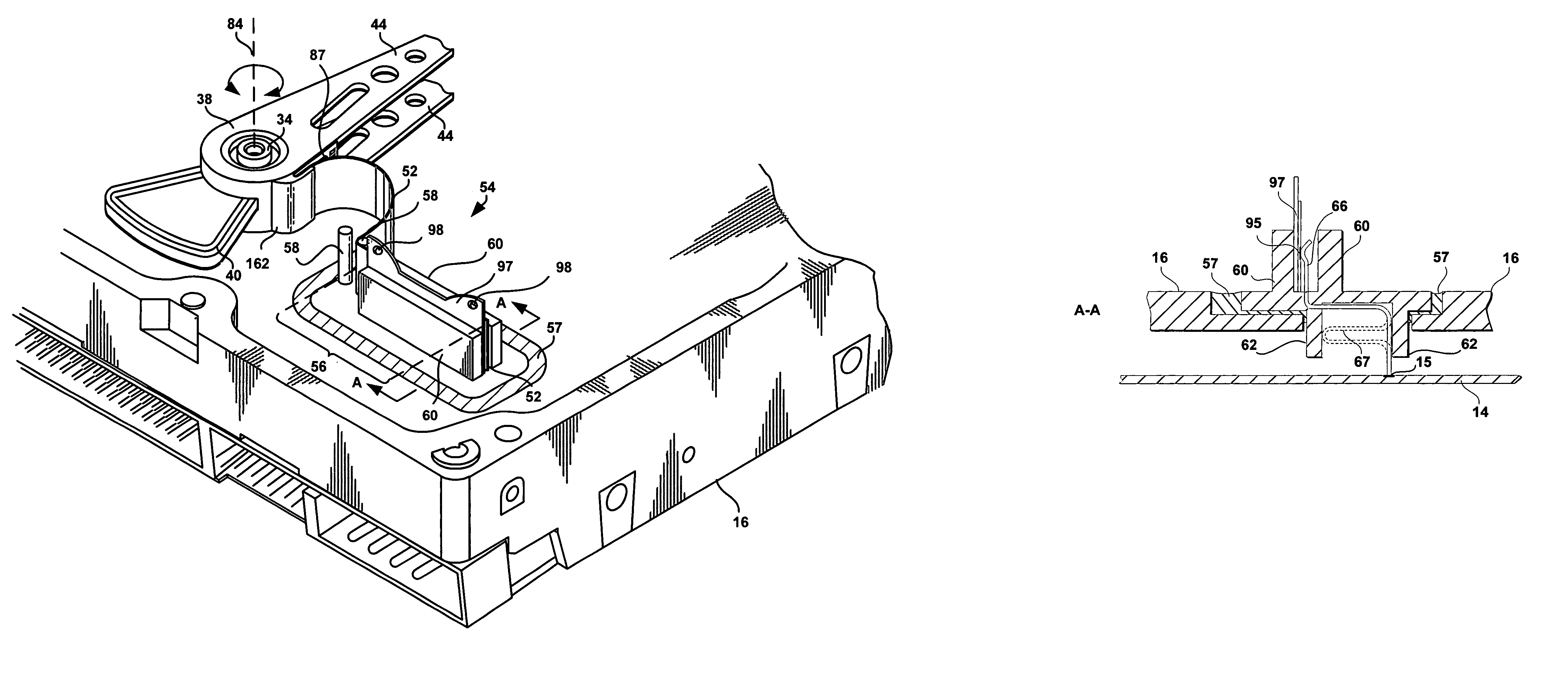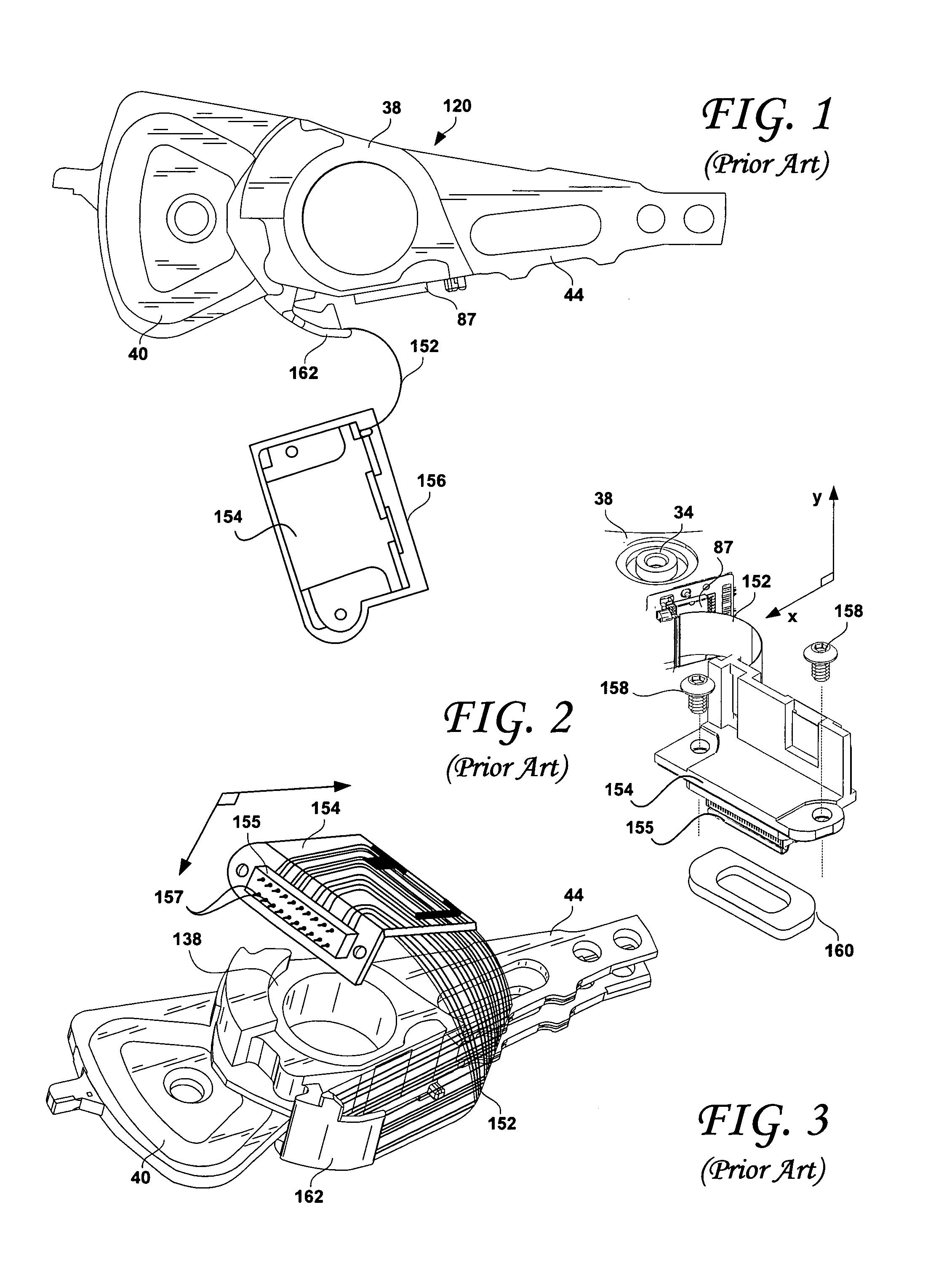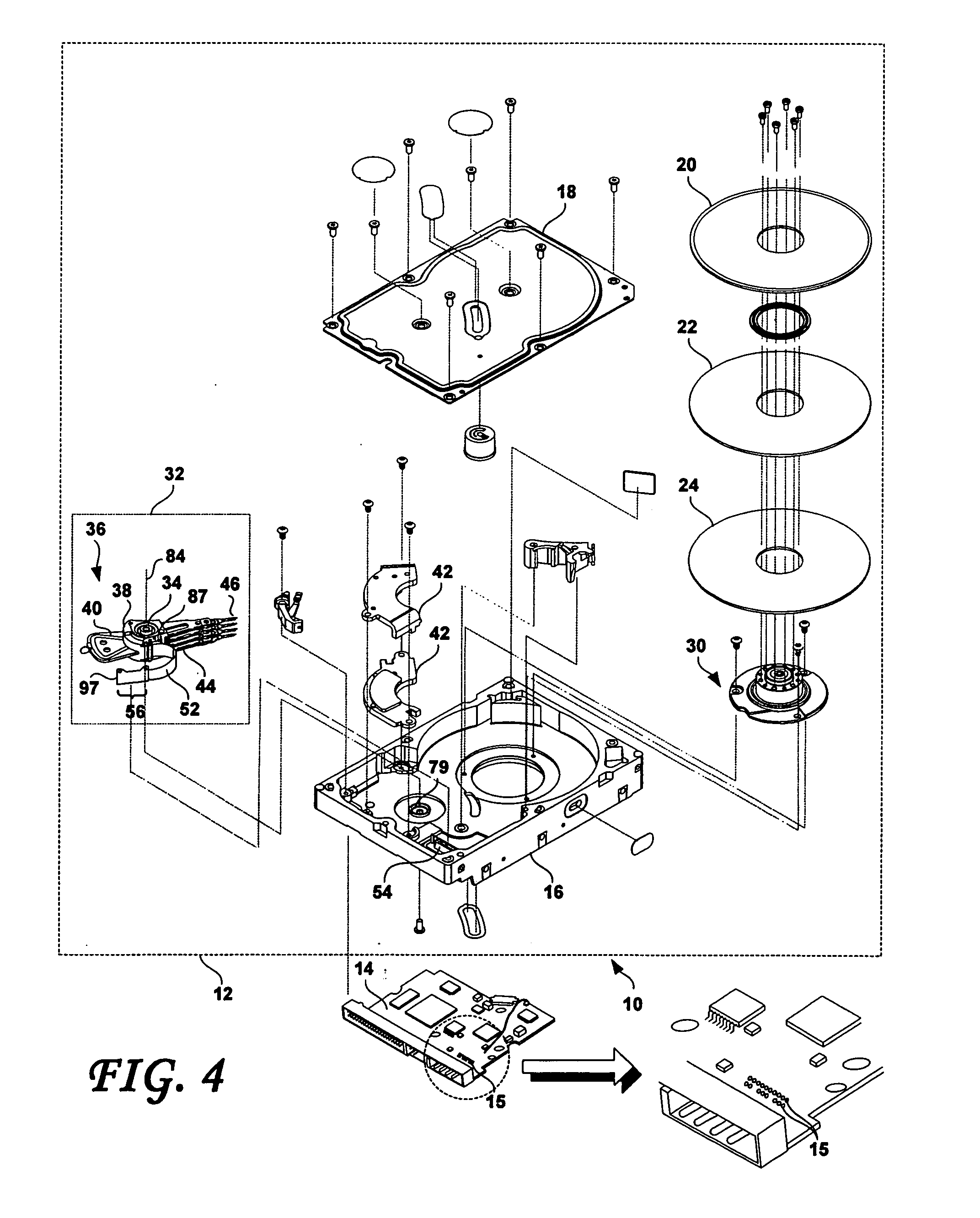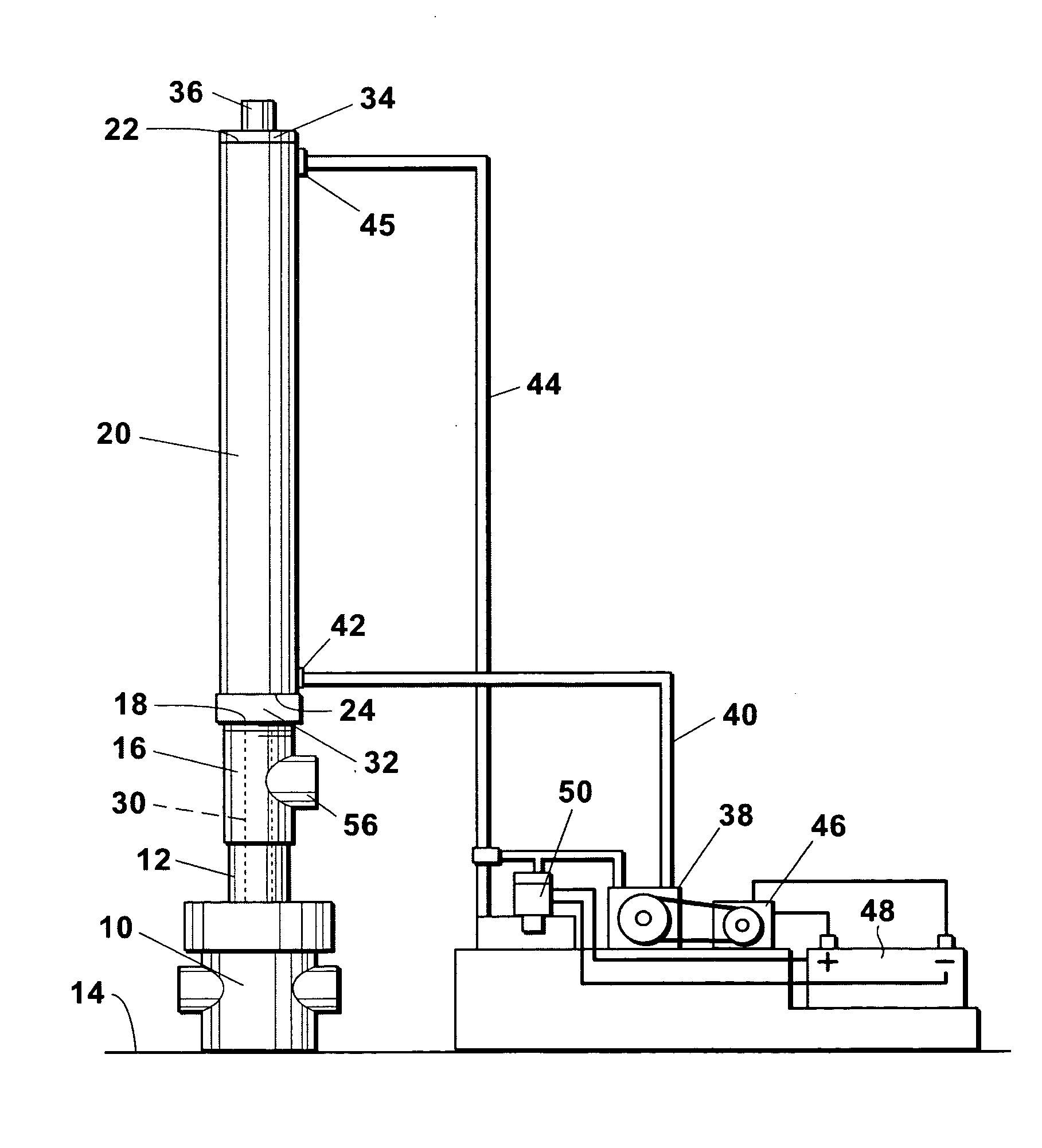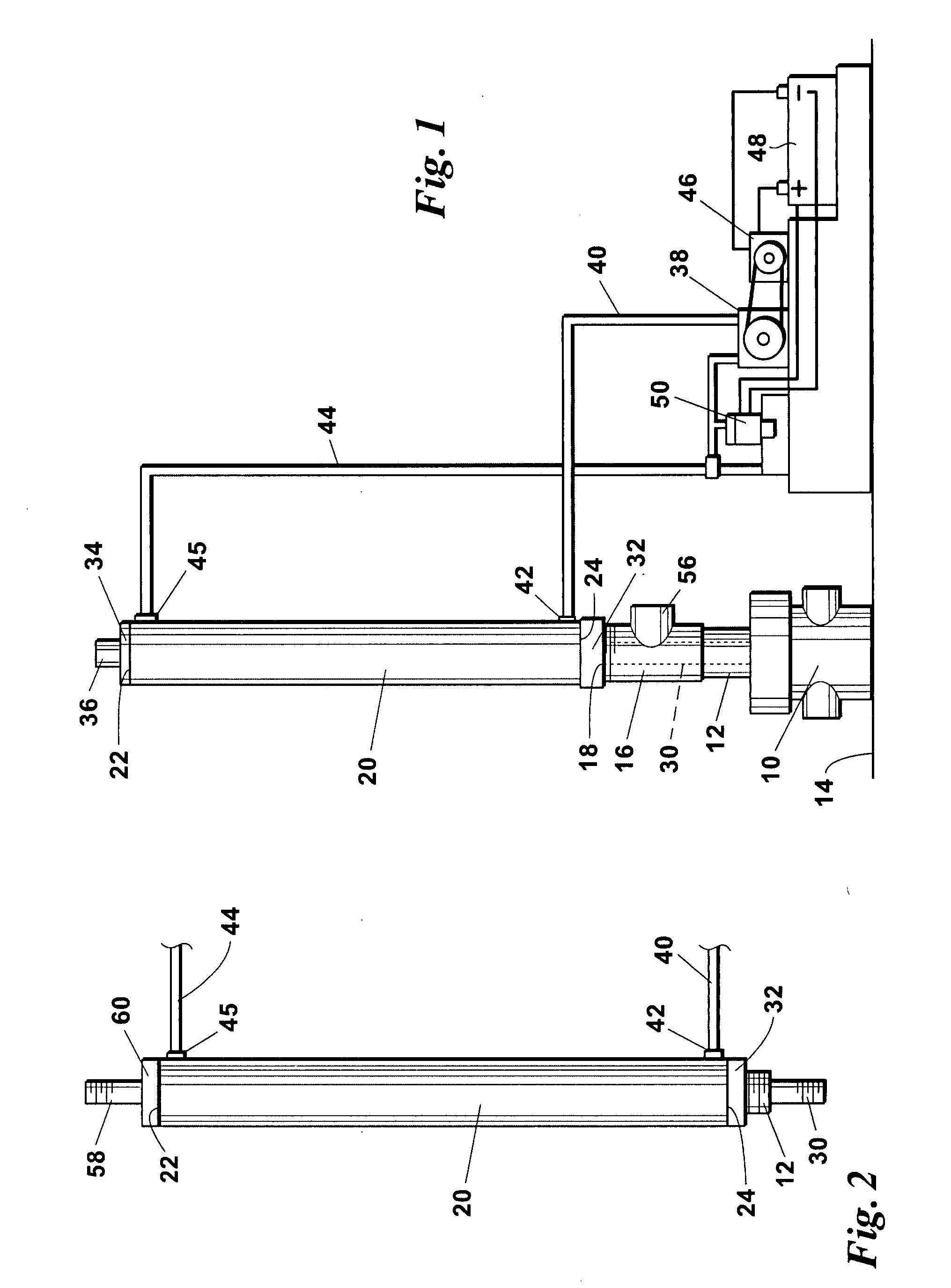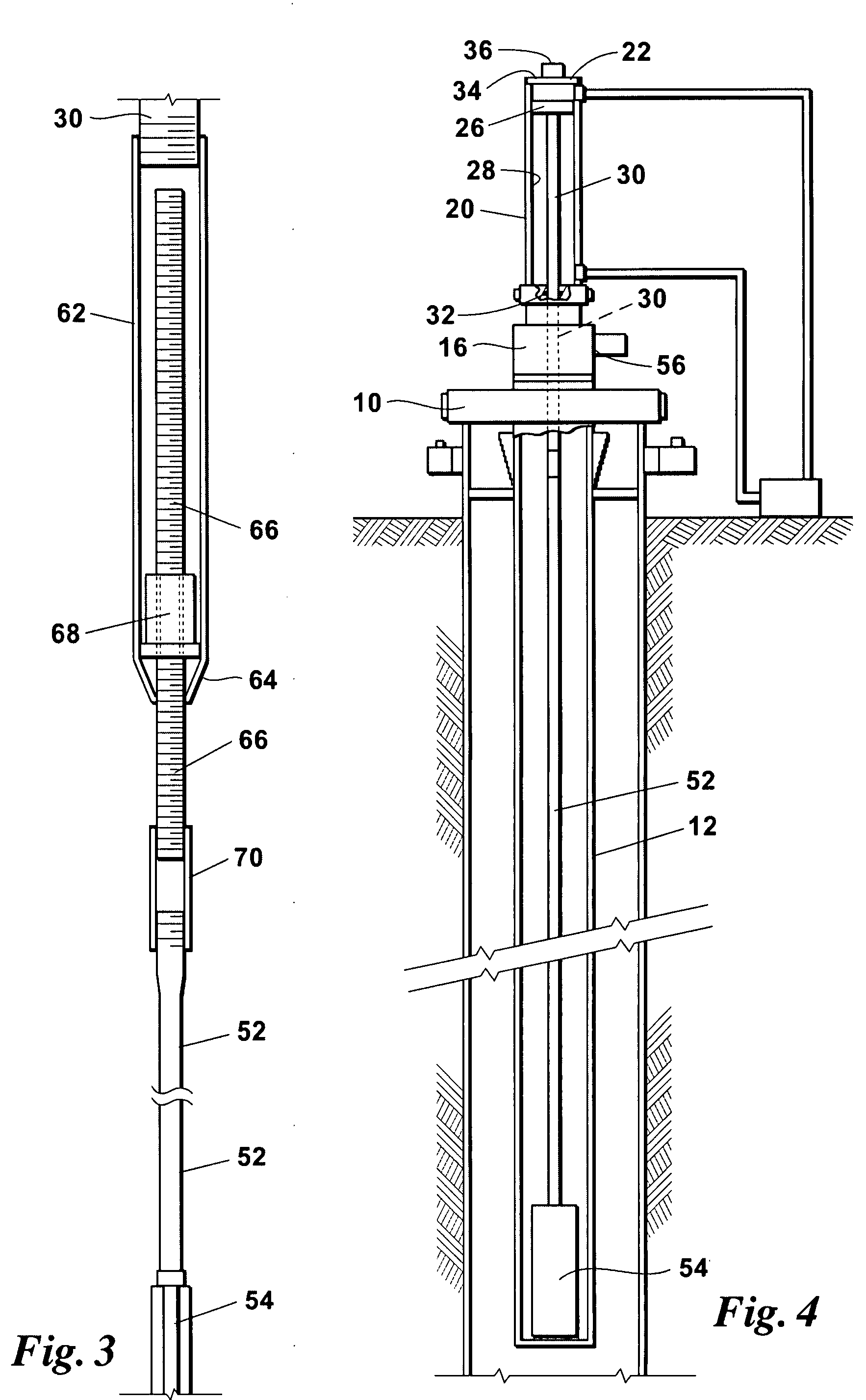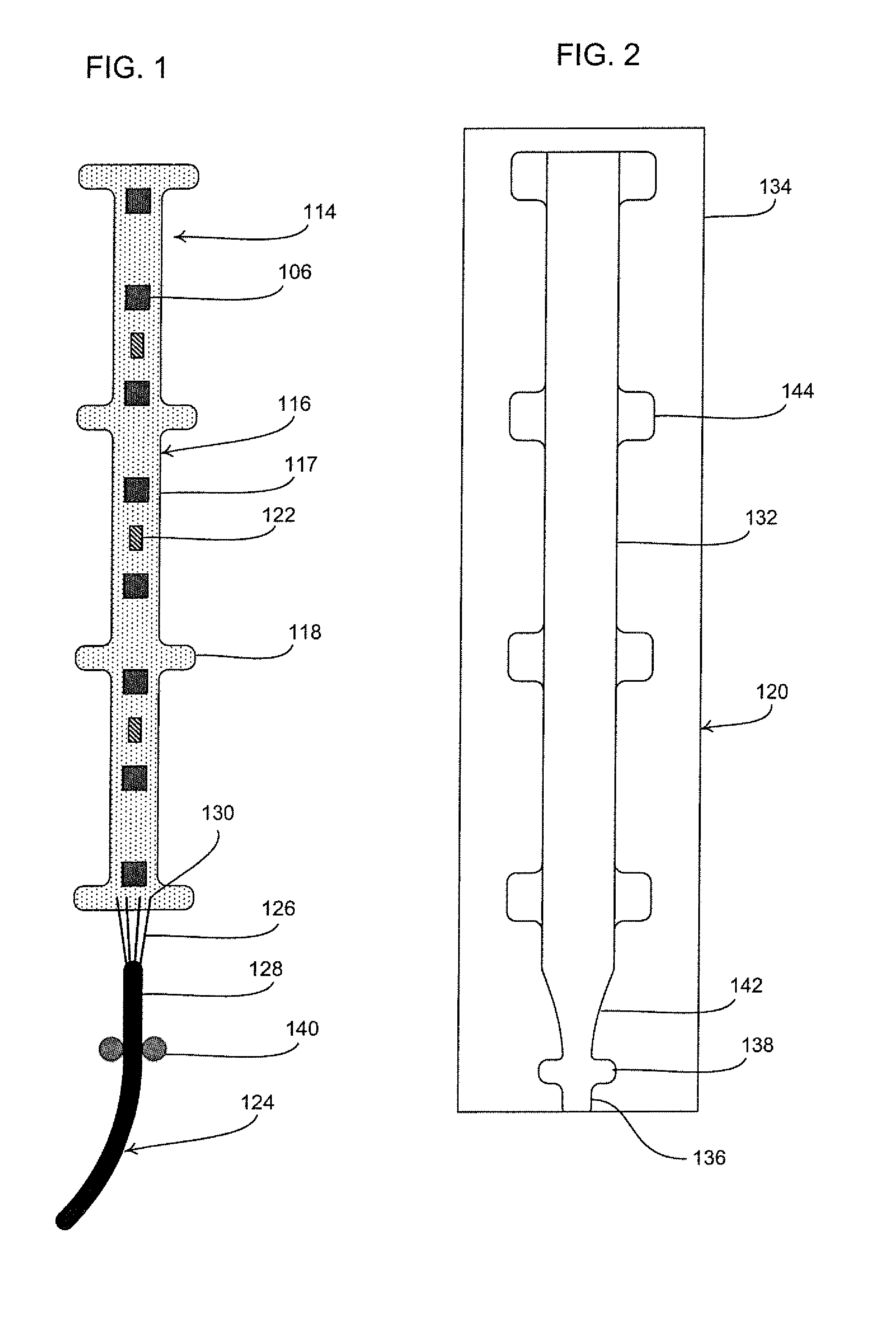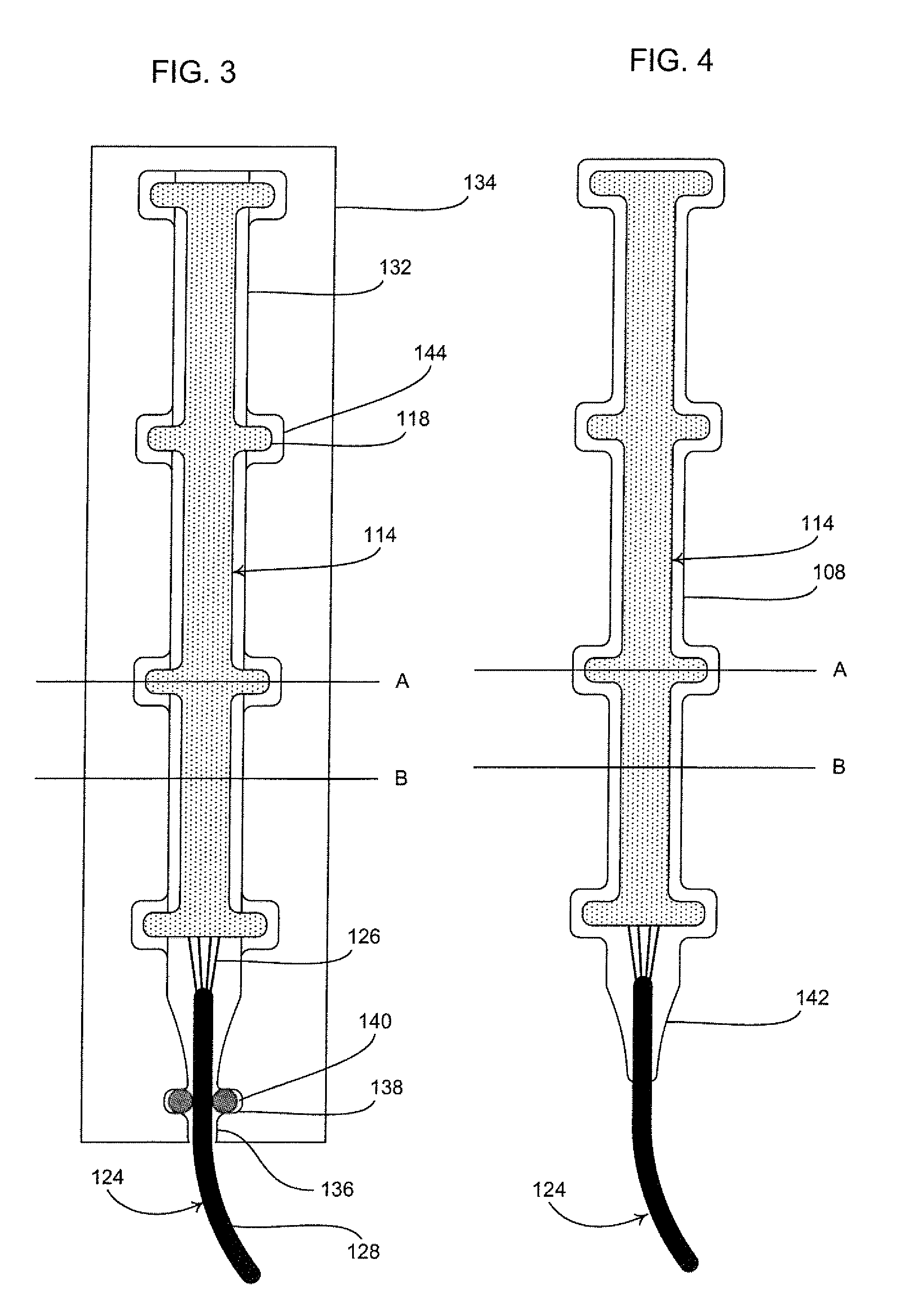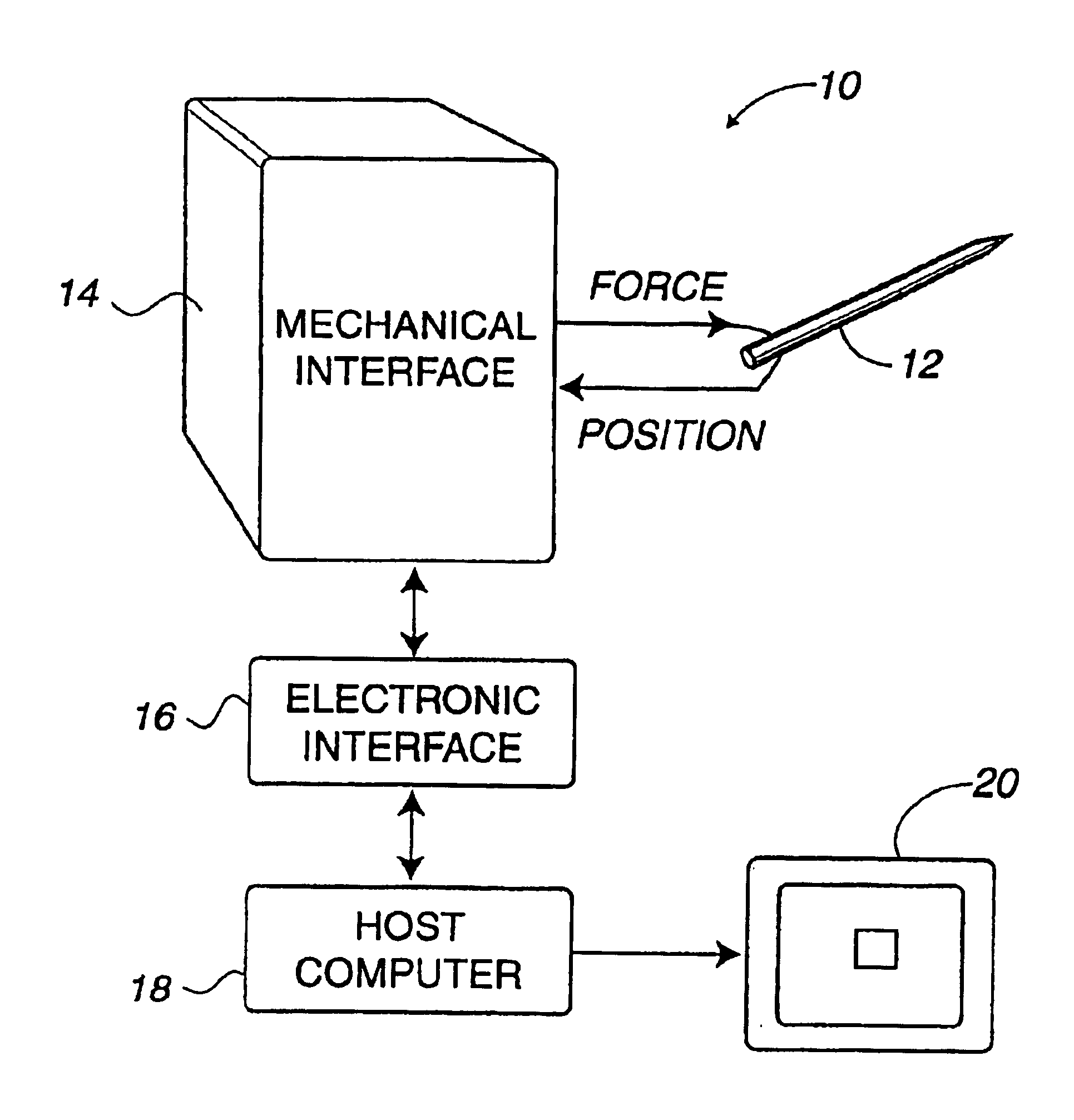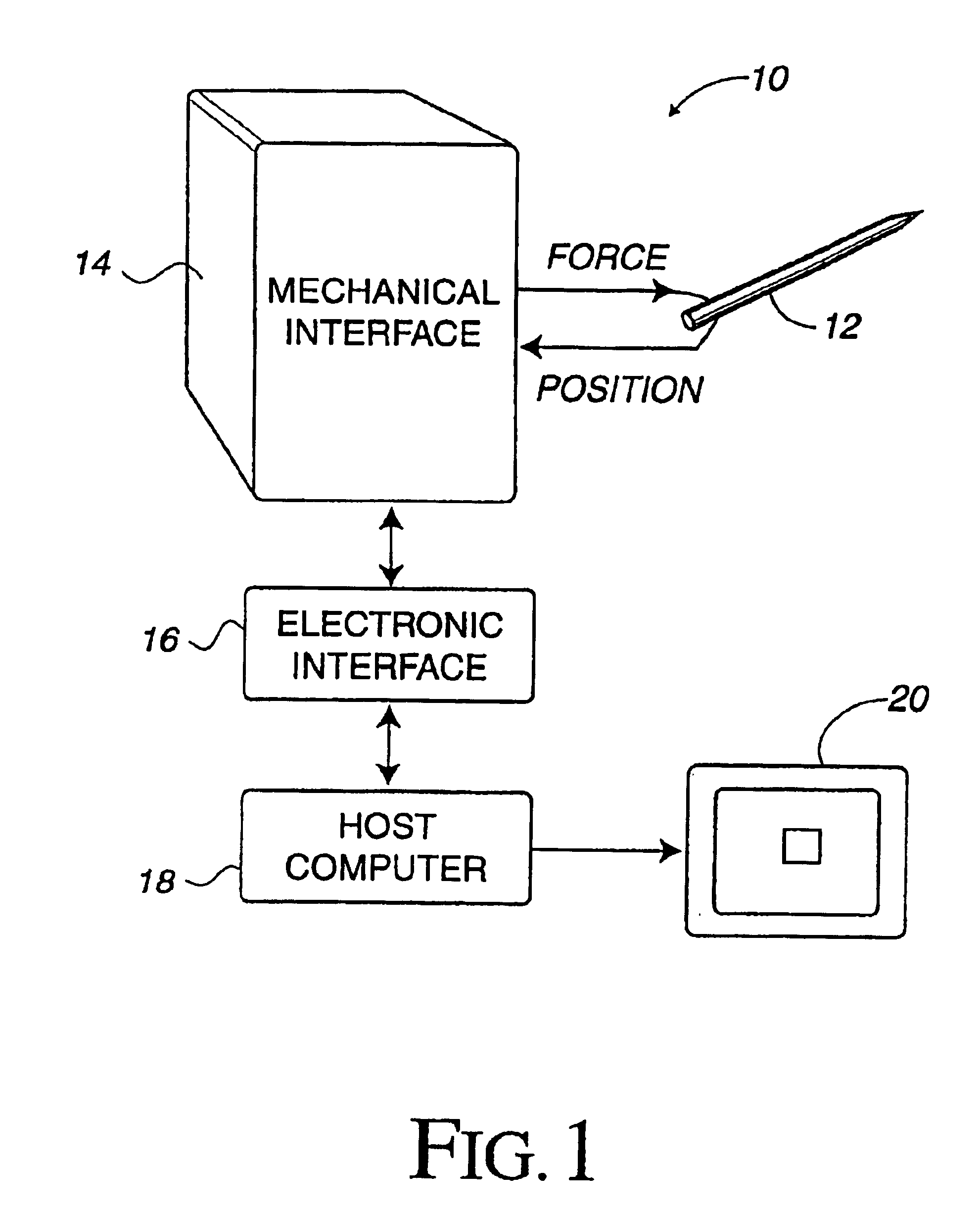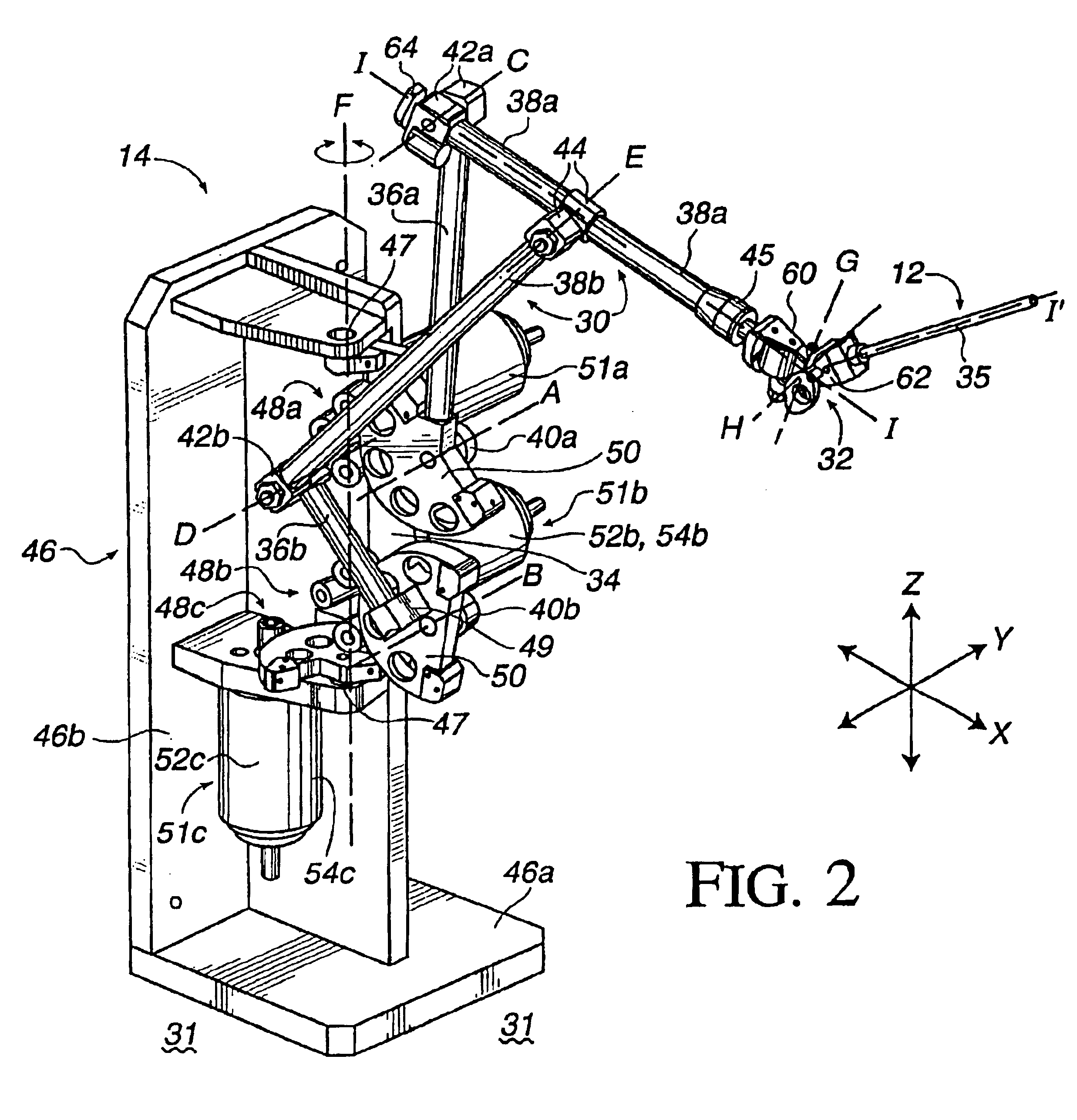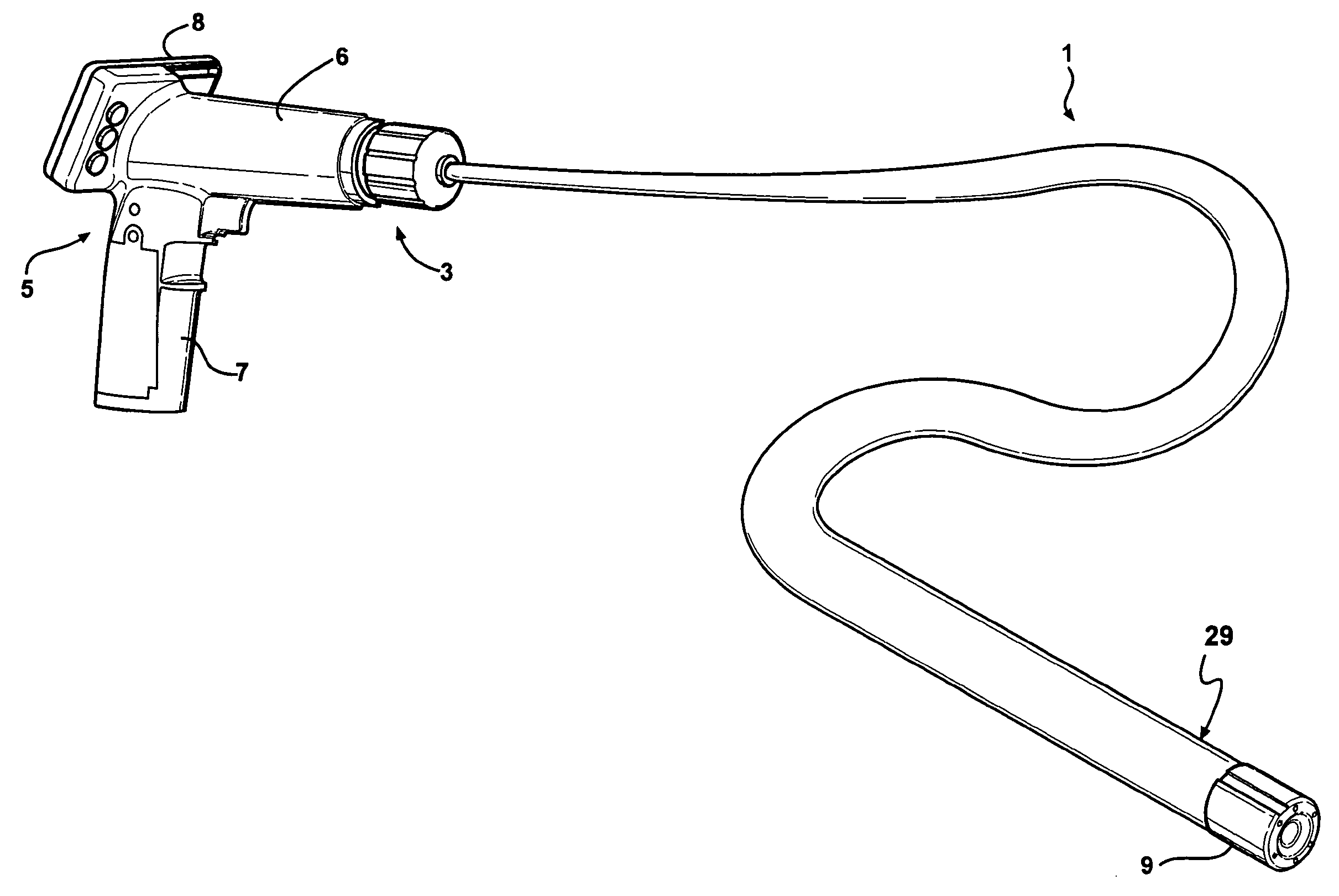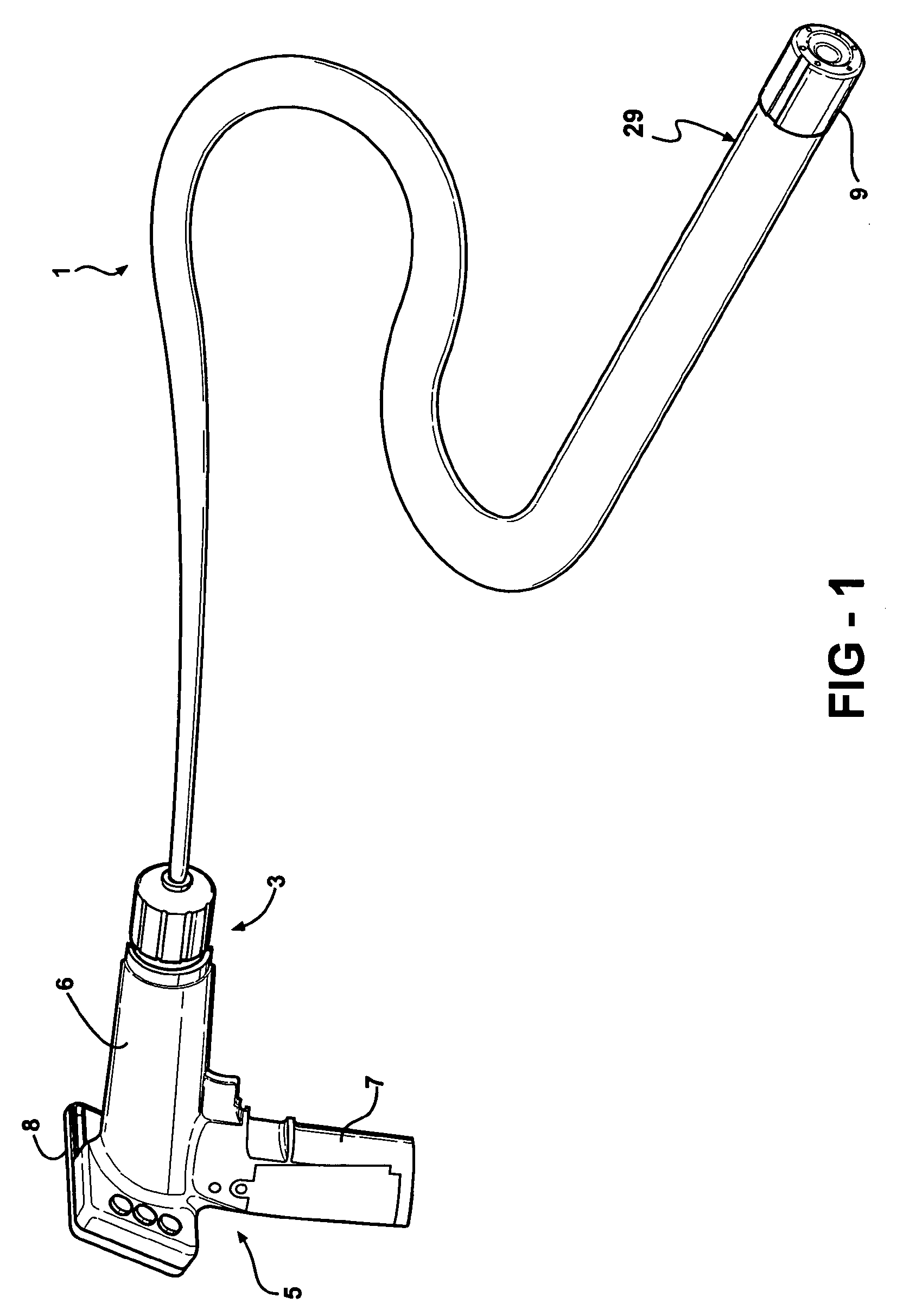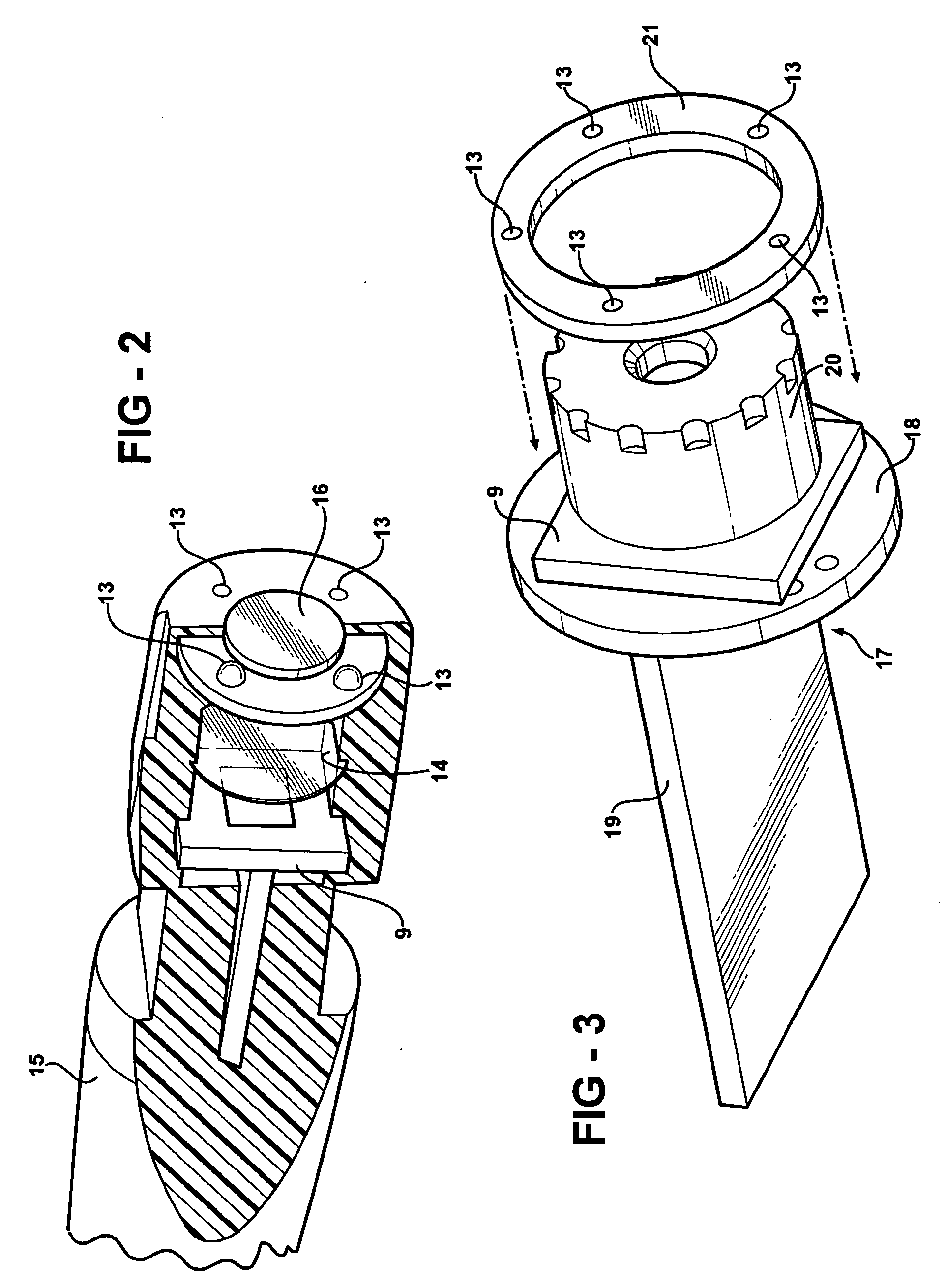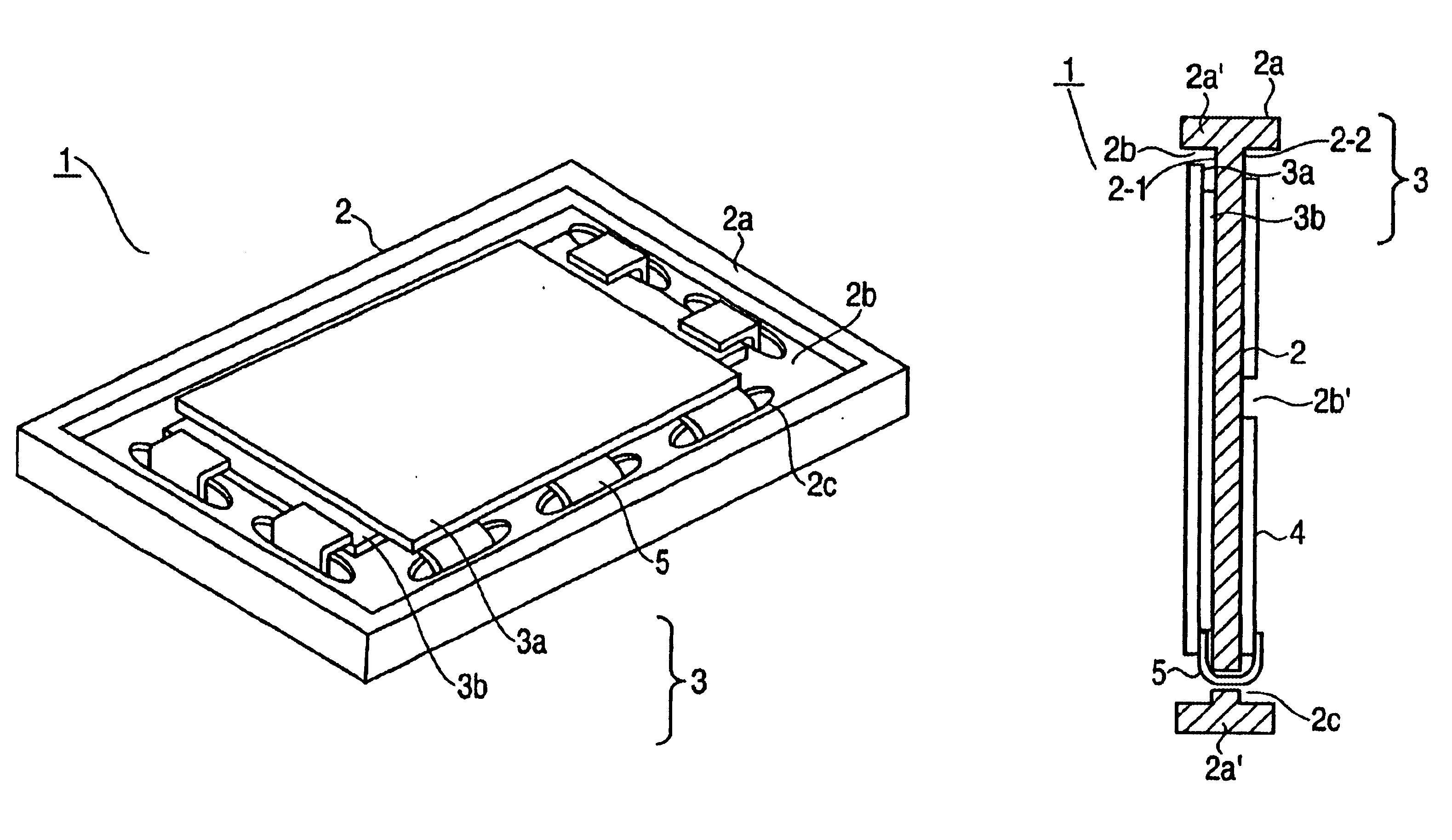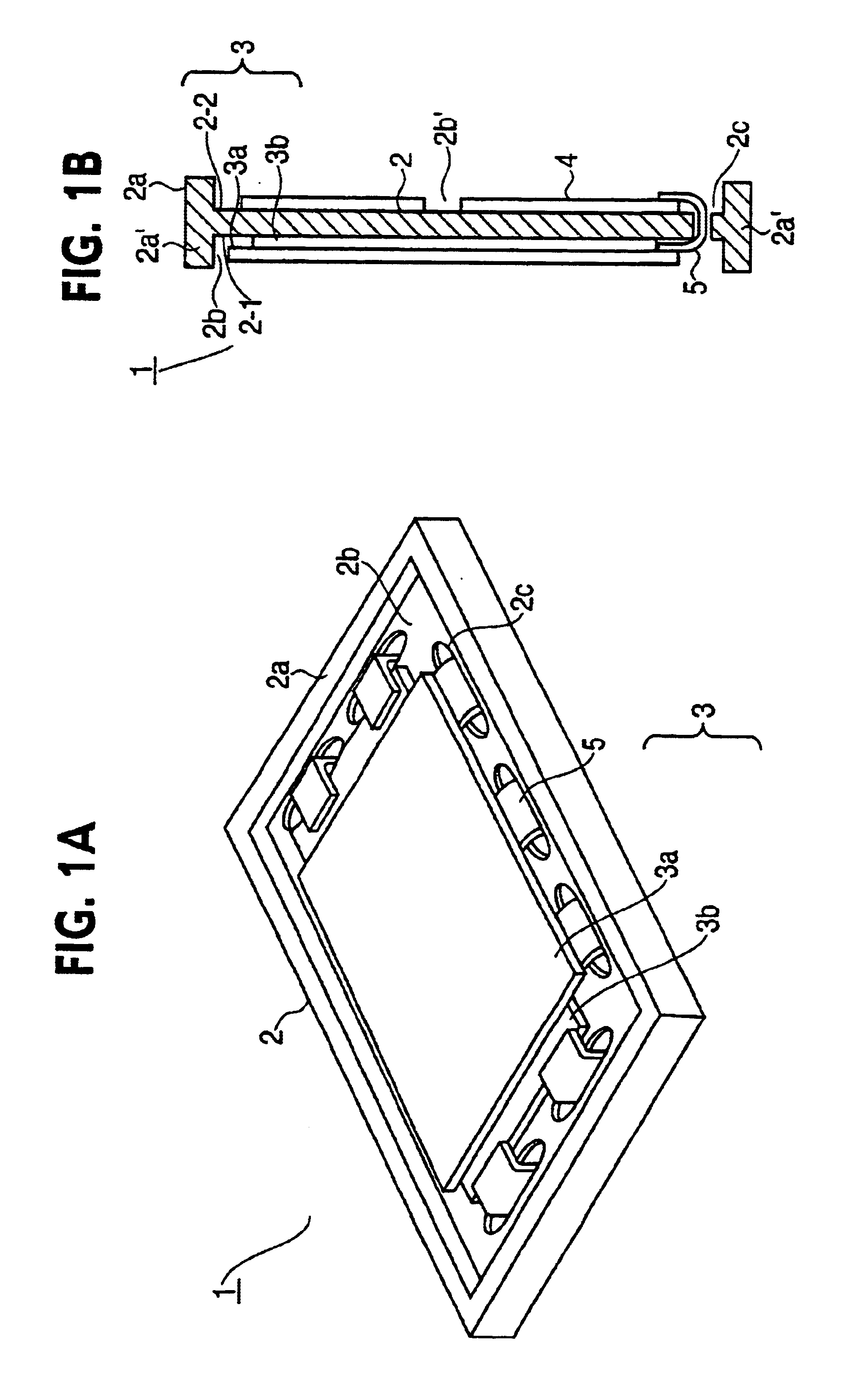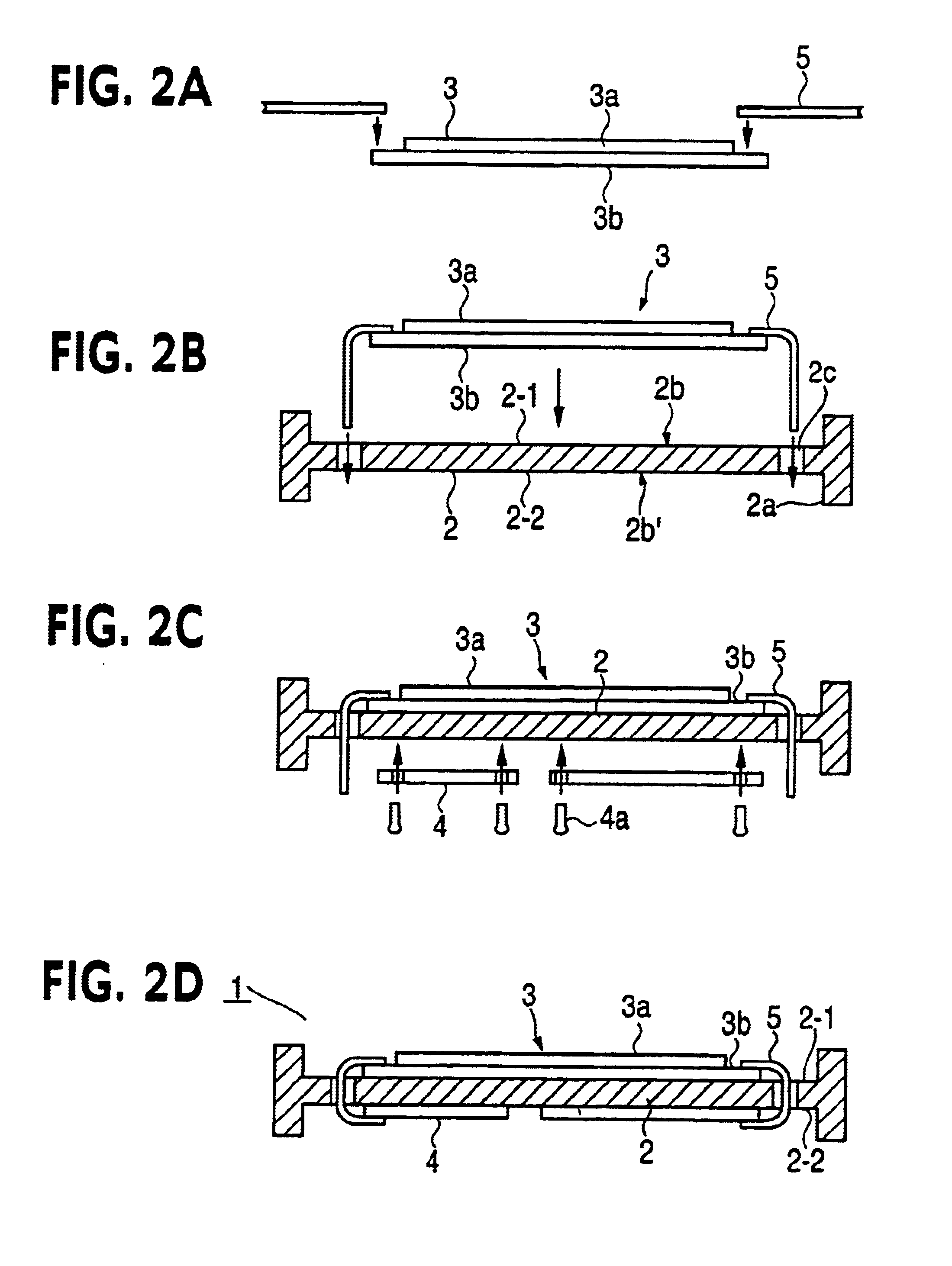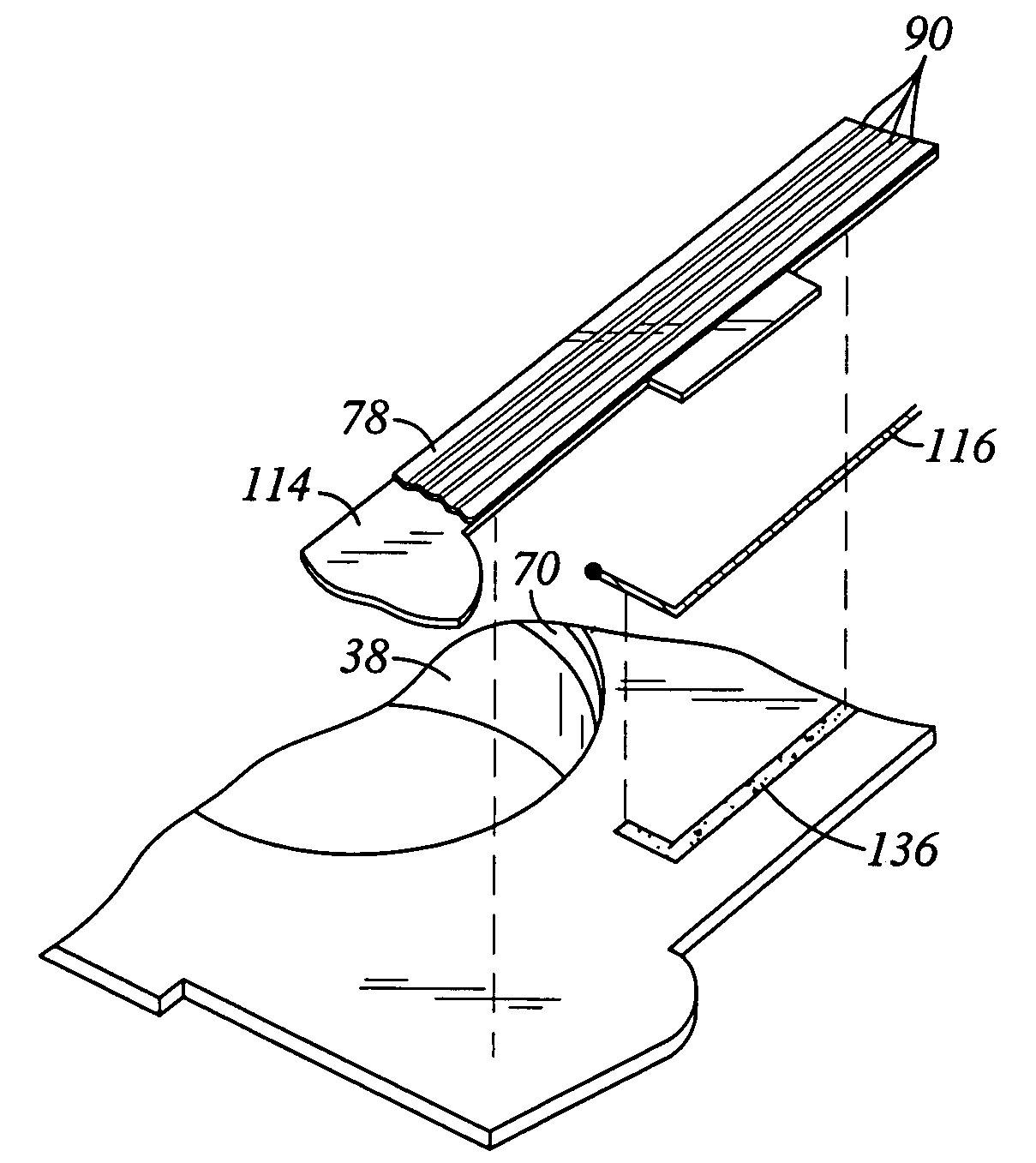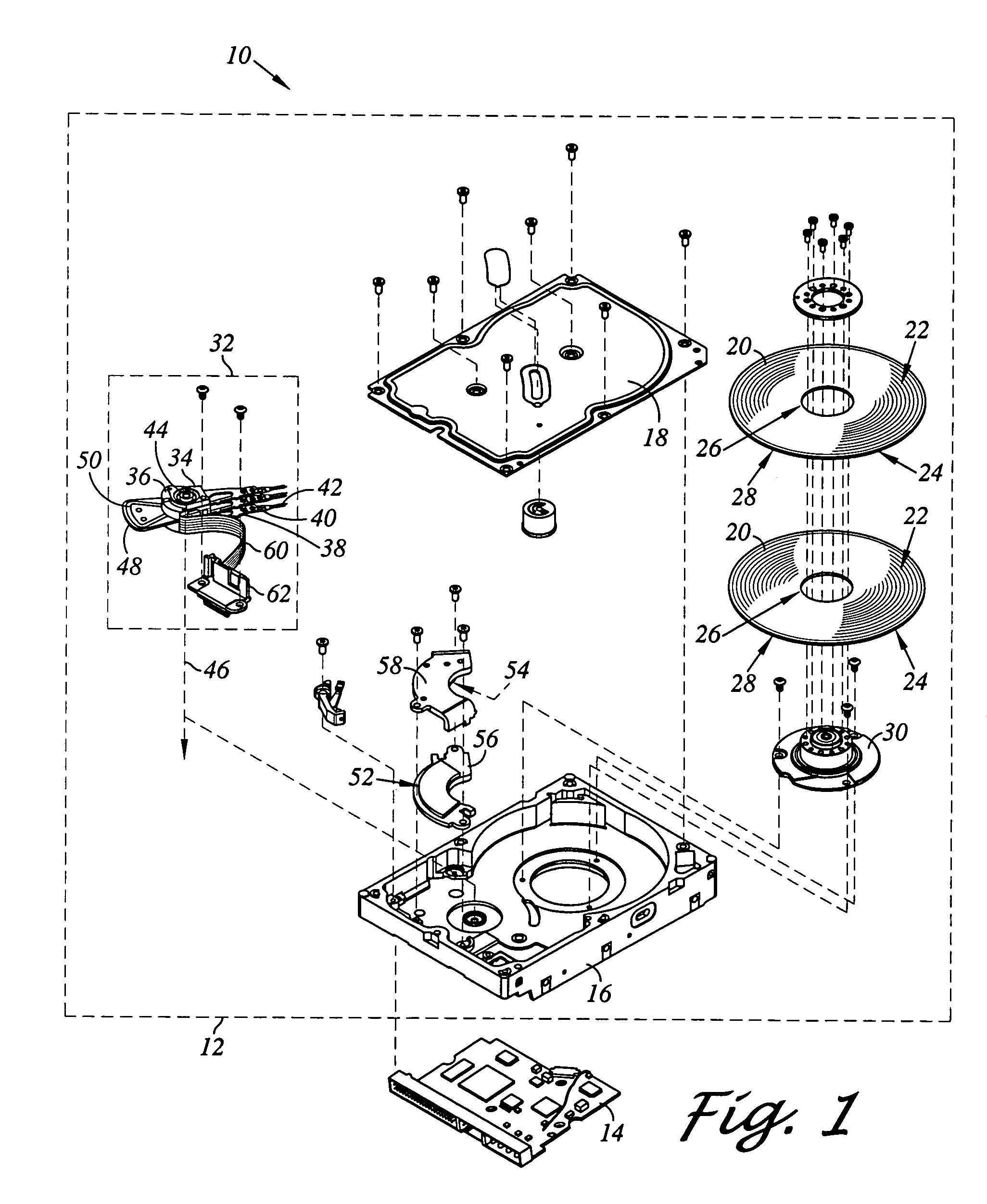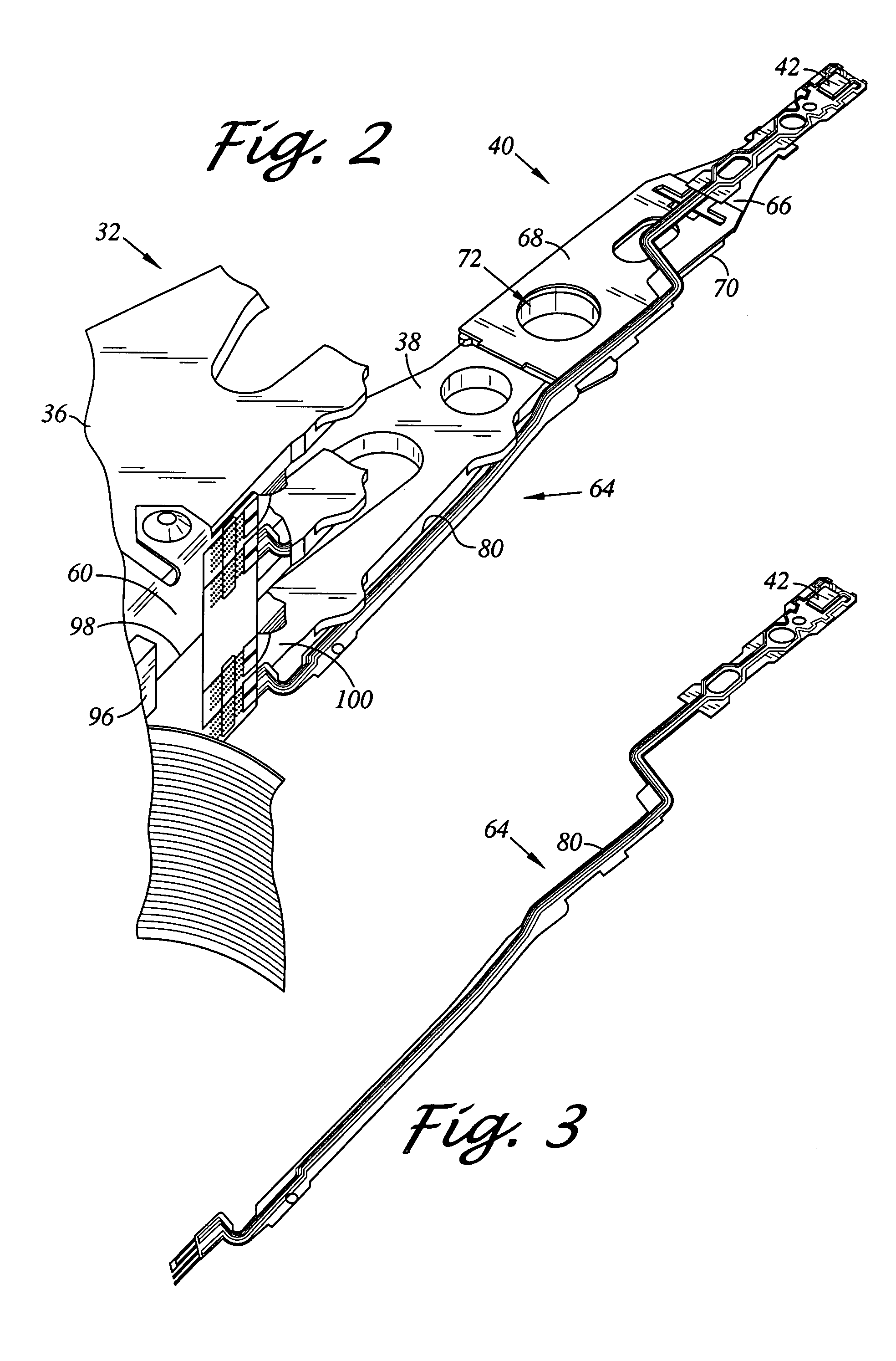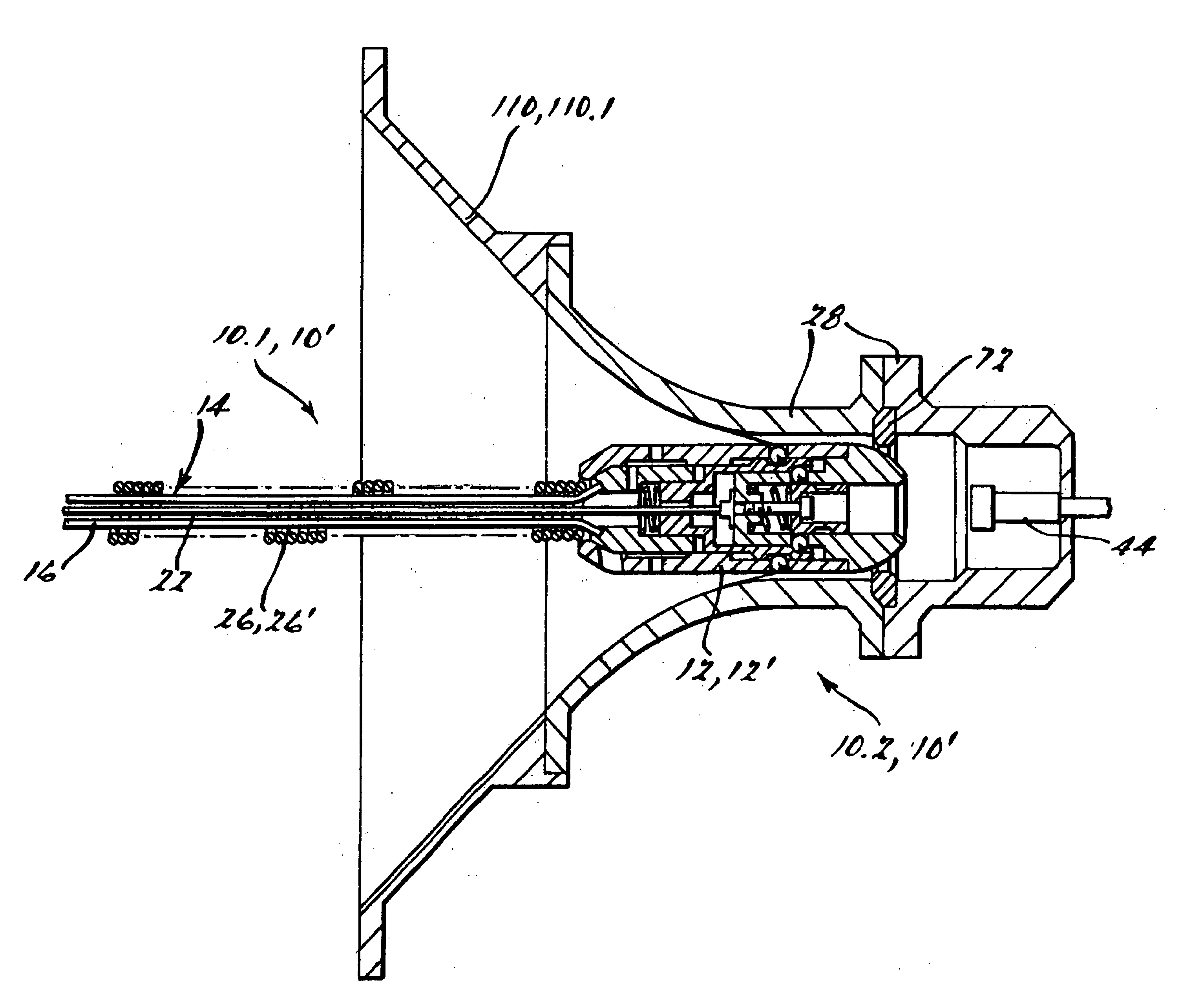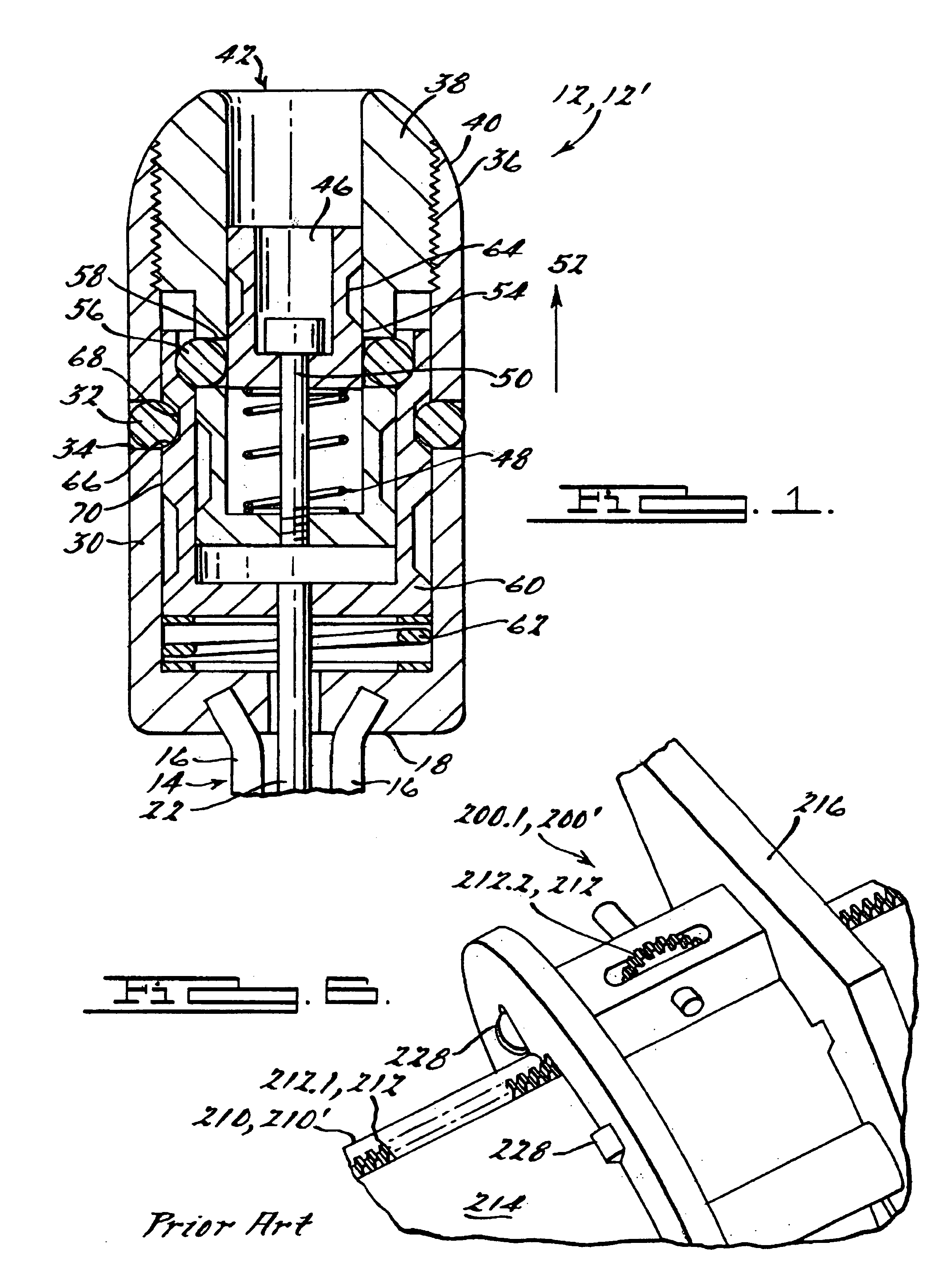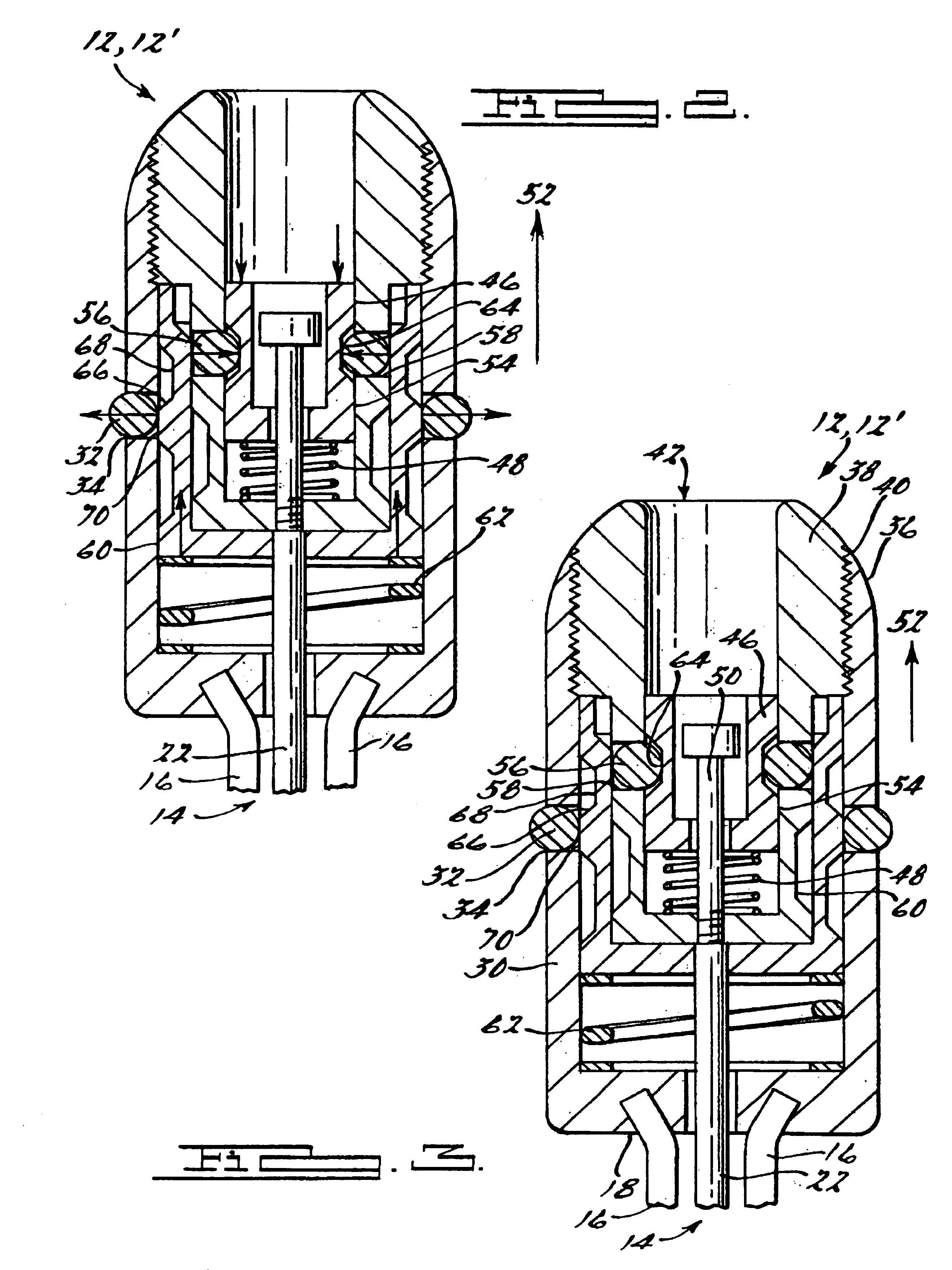Patents
Literature
3013 results about "Flexible cable" patented technology
Efficacy Topic
Property
Owner
Technical Advancement
Application Domain
Technology Topic
Technology Field Word
Patent Country/Region
Patent Type
Patent Status
Application Year
Inventor
Flexible cables, or 'continuous-flex' cables, are electrical cables specially designed to cope with the tight bending radii and physical stress associated with moving applications, such as inside cable carriers.
Medical device, kit and method for constricting tissue or a bodily orifice, for example, a mitral valve
InactiveUS20110082538A1Prevent retreatSuture equipmentsBone implantPosterior leafletAnnuloplasty rings
A device, kit and method may include or employ an implantable device (e.g., annuloplasty implant) and a tool operable to implant such. The implantable device is positionable in a cavity of a bodily organ (e.g., a heart) and operable to constrict a bodily orifice (e.g., a mitral valve). The tissue anchors may be guided into precise position by an intravascularly or percutaneously deployed anchor guide frame of the tool and embedded in an annulus of the orifice. Constriction of the orifice may be accomplished via a variety of structures, for example by cinching a flexible cable or via a anchored annuloplasty ring, the cable or ring attached to the tissue anchors. The annuloplasty ring may be delivered in an unanchored, generally elongated configuration, and implanted in an anchored generally arch, arcuate or annular configuration. Such may approximate the septal and lateral (clinically referred to as anterior and posterior) annulus of the mitral valve, to move the posterior leaflet anteriorly and the anterior leaflet posteriorly, thereby improving leaflet coaptation to eliminate mitral regurgitation.
Owner:KARDIUM
Flexible surgical stapler with motor in the head
A surgical stapler having a remote motorized staple head is provided and generally includes a handle having a control button and a highly flexible cable extending distally from the handle. A housing incorporating a staple assembly is affixed to a distal end of the flexible cable. The housing may incorporate articulating structure to position the staple assembly relative to the remainder of the housing.
Owner:COVIDIEN LP
Flexible surgical stapler with motor in the head
A surgical stapler having a remote motorized staple head is provided and generally includes a handle having a control button and a highly flexible cable extending distally from the handle. A housing incorporating a staple assembly is affixed to a distal end of the flexible cable. The housing may incorporate articulating structure to position the staple assembly relative to the remainder of the housing.
Owner:TYCO HEALTHCARE GRP LP
Generating and implementing a communication protocol and interface for high data rate signal transfer
A data Interface for transferring digital data between a host and a client over a communication path using packet structures linked together to form a communication protocol for communicating a pre-selected set of digital control and presentation data. The signal protocol is used by link controllers configured to generate, transmit, and receive packets forming the communications protocol, and to form digital data into one or more types of data packets, with at least one residing in the host device and being coupled to the client through the communications path. The interface provides a cost-effective, low power, bi-directional, high-speed data transfer mechanism over a short-range "serial" type data link, which lends itself to implementation with miniature connectors and thin flexible cables which are especially useful in connecting display elements such as wearable micro-displays to portable computers and wireless communication devices.
Owner:QUALCOMM INC
Exoskeleton for the human arm, in particular for space applications
InactiveUS20030223844A1Avoid less flexibilityLimit its operationProgramme-controlled manipulatorGripping headsEngineeringExoskeleton
The invention relates to an arm exoskeleton comprising a moving system of joints placed in parallel with the joints of the human arm, the exoskeleton comprising a shoulder exoskeleton, an elbow exoskeleton, and a wrist exoskeleton. In all, the exoskeleton has sixteen joints providing sixteen degrees of freedom. A support worn on the torso of a human operator comprises a rigid front plate and a rigid back plate. The shoulder exoskeleton has its proximal end fixed to the front plate, whereby the front plate provides a fixed reference for all movements of the exoskeleton, and the wrist exoskeleton is fixed to a rigid glove worn on the hand of the operator. Active joints are controlled by flexible cable tendons bridging the exoskeleton, said tendons themselves being actuated by control units disposed on the rigid back plate. Inflatable cushions prevent the wrist exoskeleton and the shoulder exoskeleton from moving relative to the arm of the operator. The invention is applicable in particular to remotely controlling a robot in space.
Owner:EUROPEAN SPACE AGENCY
Generating and implementing a communication protocol and interface for high data rate signal transfer
A data Interface for transferring digital data between a host and a client over a communication path using packet structures linked together to form a communication protocol for communicating a pre-selected set of digital control and presentation data. The signal protocol is used by link controllers configured to generate, transmit, and receive packets forming the communications protocol, and to form digital data into one or more types of data packets, with at least one residing in the host device and being coupled to the client through the communications path. The interface provides a cost-effective, low power, bi-directional, high-speed data transfer mechanism over a short-range "serial" type data link, which lends itself to implementation with miniature connectors and thin flexible cables which are especially useful in connecting display elements such as wearable micro-displays to portable computers and wireless communication devices.
Owner:QUALCOMM INC
Sternal reconstruction system
A sternal reconstruction system for securing parts of a sternum includes at least one flexible cable with crimp fitting, at least one cannulated screw and at least one reconstruction plate. Circumferential or parasternal fixation may be brought about by use of a sternal reconstruction system including a flexible cable and crimp fitting alone; a sternal reconstruction system including a flexible cable, crimp fitting and cannulated screws; or a system including a flexible cable, crimp fitting, cannulated screws and one or more reconstruction plates. The reconstruction plates are typically planar, having an upper and a lower surface, and containing generally perpendicular and transverse plate holes. The generally perpendicular plate holes are countersunk to better accommodate the heads of the cannulated bone screws. Also provided is a kit for sternal reconstruction.
Owner:SYNTHES GMBH
Surgical instrument, and related methods
InactiveUS20050171547A1Stabilizing and facilitating recoveryInternal osteosythesisJoint implantsBones lengthLiving body
A surgical instrument is provided, as is a method for stabilizing and facilitating recovery of injured bone within a living body. The surgical instrument includes a flexible cable and a plurality of permanent bone-contacting enlargements fixedly attached to the flexible cable. The bone-contacting enlargements are spaced apart from one another to provide linking cable portions alternating with the spaced bone-contacting enlargements. The spaced relationship between the bone and the linking cable portions provide channels along the bone length for permitting vascular circulation across a region of the injured bone to which the surgical instrument is applied.
Owner:ARAM INNOVATIONS
Spinal fixation device having a flexible cable and jointed components received thereon
InactiveUS20090088799A1Solve the lack of flexibilitySolving the Insufficiency of ElasticitySuture equipmentsInternal osteosythesisJoint componentReady to use
A spinal fixation device is disclosed, which includes a flexible cable; a plurality of components disposed on the flexible cable; and a plurality of fixing nails, wherein the flexible cable may be movingly received by the fixing nails after it has been fitted with the components, and a screw may be used to secure the flexible cable along with the components onto the fixing nails; wherein two neighboring components disposed on the flexible cable are connected with an adjustable angle.
Owner:YEH CHUNG CHUN
Generating and implementing a signal protocol and interface for higher data rates
ActiveUS20050021885A1Increase data rateEnergy efficient ICTPulse modulation television signal transmissionDigital dataDisplay device
A data Interface for transferring digital data between a host and a client over a communication path using packet structures linked together to form a communication protocol for communicating a pre-selected set of digital control and presentation data. The signal protocol is used by link controllers configured to generate, transmit, and receive packets forming the communications protocol, and to form digital data into one or more types of data packets, with at least one residing in the host device and being coupled to the client through the communications path. The interface provides a cost-effective, low power, bi-directional, high-speed data transfer mechanism over a short-range “serial” type data link, which lends itself to implementation with miniature connectors and thin flexible cables which are especially useful in connecting display elements such as wearable micro-displays to portable computers and wireless communication devices.
Owner:QUALCOMM INC
Wraparound assembly for combination touch, handwriting and fingerprint sensor
InactiveUS20120092350A1Digital computer detailsInternal/peripheral component protectionHandwritingConductive materials
This disclosure provides systems, methods and apparatus for a combined sensor device. In some implementations, a combined sensor device includes a wrap-around configuration wherein an upper flexible substrate has patterned conductive material on an extended portion to allow routing of signal lines, electrical ground, and power. One or more integrated circuits or passive components, which may include connecting sockets, may be mounted onto the flexible layer to reduce cost and complexity. Such implementations may eliminate a flex cable and may allow a bezel-less configuration.
Owner:SNAPTRACK
Molded cable management arm for a server system rack
A drawer (20) of a server system rack (12) includes a flexible cable management arm (114) which is molded of plastic for securing cabling (34) between a moveable tray (38) and an electronic switch (30). The molded cable management arm (114) is preferably formed as a single member (116) having hinges which are defined by hinge regions (120). The hinge regions (120) have oppositely disposed grooves (121, 123), which are formed in opposite sides of the single member (116). Cable retention tabs (140) are integrally molded into the single member (116) and are L-shaped. Adjacent ones of the cable retention tabs (140) extend fromalternating ones of opposite edges (142) of the single member (116), with outer portions (144) of the retention tabs (140) extending across and spaced apart from a main body portion (145) of the molded plastic cable management arm (114).
Owner:CENT IND SUPPLY
High performance probe system
InactiveUS6911835B2Semiconductor/solid-state device testing/measurementElectrical measurement instrument detailsHigh bandwidthΠ pad
A probe system for providing signal paths between an integrated circuit (IC) tester and input / output, power and ground pads on the surfaces of ICs to be tested includes a probe board assembly, a flex cable and a set of probes arranged to contact the IC's I / O pads. The probe board assembly includes one or more rigid substrate layers with traces and vias formed on or within the substrate layers providing relatively low bandwidth signal paths linking the tester to probes accessing some of the IC's pads. The flex cable provides relatively high bandwidth signal paths linking the tester to probes accessing others of the IC's pads. A flex strip may alternatively be disposed behind a substrate with probes.
Owner:FORMFACTOR INC
Foldable transportable multiple function pilates exercise method and apparatus
InactiveUS7104937B2Improved Pilates machineEasy to changeResilient force resistorsStiltsCarriageElectric cables
A multi-function Pilates exercise apparatus featuring a foldable frame, a wheeled base, a rotatable pulley riser with a flexible pulley mount, gear changing apparatus and adjustable footbar. The frame is designed to fold into an upright position and to be rolled to a desired location. The pulley mount includes a section of flexible cable which permits the pulley to freely move relative to its mounting pole, thereby reducing binding during operation. The gear changing apparatus permits the user to adjust the carriage position with a single operation. The exercise system includes a reformer, pole apparatus, and a long / short box that also serves as a chair.
Owner:MAD DOGG ATHLETICS
Remote inspection device
An integrated solid state device for viewing and manipulating objects located in remote sites and locations which includes a flexible cable having a camera on one end and a viewer on an opposite end. The camera captures images near the end of the flexible cable and converts the images into a video signal that is transferred through wires that extend through the length of the flexible cable. The video signals are received by the viewer and converted into a displayed image. A variety of removable article manipulators can be attached to the distal end of the flexible cable and used to manipulate, capture and retrieve articles and objects near the distal end of the flexible cable.
Owner:INSPECTRON MASSACHUSETTS
Installation for harvesting ocean currents (IHOC)
Installation for harvesting kinetic energy of ocean currents in deepwaters is based on utilization of a semisubmersible platform and the multiple of vertically oriented Darrieus type hydraulic turbines with funnels. The turbines are located bellow sea level on distance sufficient to exclude them from being affected by wave actions. The electric power generators are located on a structure above water and transmit electric power to the shore utilizing flexible cable from semisubmersible to the sea bottom and underwater cable going to the shore, where it connected to the power distributing network. One of the Embodiments of this invention is designed to harvest energy of tides in deepwaters.
Owner:BELINSKY SIDNEY IRVING
Exoskeleton for the human arm, in particular for space applications
InactiveUS7410338B2Avoid less flexibilityLimit its operationProgramme-controlled manipulatorGripping headsEngineeringControl space
The invention relates to an arm exoskeleton comprising a moving system of joints placed in parallel with the joints of the human arm, the exoskeleton comprising a shoulder exoskeleton, an elbow exoskeleton, and a wrist exoskeleton. In all, the exoskeleton has sixteen joints providing sixteen degrees of freedom. A support worn on the torso of a human operator comprises a rigid front plate and a rigid back plate. The shoulder exoskeleton has its proximal end fixed to the front plate, whereby the front plate provides a fixed reference for all movements of the exoskeleton, and the wrist exoskeleton is fixed to a rigid glove worn on the hand of the operator. Active joints are controlled by flexible cable tendons bridging the exoskeleton, said tendons themselves being actuated by control units disposed on the rigid back plate. Inflatable cushions prevent the wrist exoskeleton and the shoulder exoskeleton from moving relative to the arm of the operator. The invention is applicable in particular to remotely controlling a robot in space.
Owner:EUROPEAN SPACE AGENCY
Area array type package stack and manufacturing method thereof
InactiveUS20050040508A1Reduce package heightReduce the overall heightSemiconductor/solid-state device detailsSolid-state devicesEngineeringFlexible cable
A package stack has at least two packages of area array types (AAT), each having connecting pads. A flexible cable having conductive patterns is provided between the AAT packages and electrically connected to the connecting pads of the packages.
Owner:SAMSUNG ELECTRONICS CO LTD
Flexible cable for high-speed interconnect
InactiveUS20060067066A1Coupling device connectionsLine/current collector detailsElectric power transmissionHigh velocity
A system and method are disclosed in which flex cables are affixed to PCBs, for providing high-speed signaling paths between ICs disposed upon the PCBs. The flex cables are fixably attached to the PCBs so as to substantially mimic their structural orientation. Where the configuration includes more than one PCB, the flex cables include multiple portions which are temporarily separable from one another and from the die, using flex-to-flex and flex-to-package connectors, allowing field maintenance of the configuration. By routing the high-speed signals between ICs onto the flex cable, single-layer PCBs can be used for non-critical and power delivery signals, at substantial cost savings. By disposing the flex cables onto the PCB rather than allowing the cables to float freely, the configuration is thermally managed as if the signals were on the PCB and cable routing problems are avoided.
Owner:INTEL CORP
Flexible cable for high-speed interconnect
InactiveUS7148428B2Coupling device connectionsLine/current collector detailsElectric power transmissionEngineering
A system and method are disclosed in which flex cables are affixed to PCBs, for providing high-speed signaling paths between ICs disposed upon the PCBs. The flex cables are fixably attached to the PCBs so as to substantially mimic their structural orientation. Where the configuration includes more than one PCB, the flex cables include multiple portions which are temporarily separable from one another and from the die, using flex-to-flex and flex-to-package connectors, allowing field maintenance of the configuration. By routing the high-speed signals between ICs onto the flex cable, single-layer PCBs can be used for non-critical and power delivery signals, at substantial cost savings. By disposing the flex cables onto the PCB rather than allowing the cables to float freely, the configuration is thermally managed as if the signals were on the PCB and cable routing problems are avoided.
Owner:INTEL CORP
Automatically deforming surgical snare
InactiveUS20050043743A1Facilitate maneuveringEasy to captureSurgical instruments for heatingEngineeringSurgery procedure
A surgical instrument and method for facilitating the capture of objects during surgery are provided. The surgical instrument includes a flexible tube defining a cable passageway and being configured for insertion of at least portion of the flexible tube into a body cavity of a patient. The surgical instrument further includes flexible cable slidably disposed in the cable passageway. A snare loop is attached to the cable end and both are adapted so that the snare loop can be selectively retracted or extended within the cable passageway by sliding the cable proximally or distally within the cable passageway. The loop member is adapted for selectively encircling and engaging at least a portion of an object in the body cavity. The system also comprises a tether, the tether attached to the loop member at one end and to the flexible tube at the other, so that extension of the flexible cable causes the snare loop to deform in a predetermined manner.
Owner:DENNIS WILLIAM G
Medical device for constricting tissue or a bodily orifice, for example a mitral valve
A medical apparatus positionable in a cavity of a bodily organ (e.g., a heart) may constrict a bodily orifice (e.g., a mitral valve). The medical apparatus may include tissue anchors that are implanted in the annulus of the orifice. The tissue anchors may be guided into position by an intravascularly or percutaneously deployed anchor guiding frame. Constriction of the orifice may be accomplished by cinching a flexible cable attached to implanted tissue anchors. The medical device may be used to approximate the septal and lateral (clinically referred to as anterior and posterior) annulus of the mitral valve in order to move the posterior leaflet anteriorly and the anterior leaflet posteriorly and thereby improve leaflet coaptation and eliminate mitral regurgitation.
Owner:KARDIUM
Disk drive including a base assembly having a flex-to-board edge connector
InactiveUS6934126B1Relieve pressureElectrical connection between head and armCarrier constructional parts dispositionEngineeringFlexible cable
A disk drive comprises a housing including a base; a disk rotatably attached to the base; a printed circuit board coupled to the base and including a plurality of circuit board pads; a head stack assembly pivotally coupled to the base about a pivot axis and a flex-to-board connector. The head stack assembly includes a head for reading and writing to the disk and a flex cable assembly that includes a flexible film including a plurality of conductive traces that are electrically coupled to the head. The flexible film includes a connecting portion in which each of the plurality of conductive traces defines a trace pad. Each trace pad is disposed on a surface of the flexible film that is generally parallel to the pivot axis. The flex-to-board connector is attached to the base and is configured to couple to the connecting portion of the flexible film and to maintain the surface of the flexible film on which the trace pads are disposed in an orientation that is generally parallel to the pivot axis. The flex-to-board connector includes a plurality of conductive fingers, each configured to electrically connect one of the trace pads to a corresponding one of the plurality of circuit board pads.
Owner:WESTERN DIGITAL TECH INC
Unlimited stroke drive oil well pumping system
ActiveUS20080314581A1Efficiently actuatedReduce probabilityFluid couplingsConstructionsReciprocating motionFast filling
An unlimited stroke drive method for pumping fluid from an oil well in which the well has a tubing string extending from the earth's surface down to a fluid producing formation. The method includes the steps of positioning a pump barrel within the tubing, an upper end of the pump barrel having communication through a standing valve with the interior of the tubing string, vertically reciprocating a length of flexible cable within the tubing string to vertically reciprocate a plunger within the pump barrel to allow a lower portion to quickly fill with fluid from the producing formation and then to a downward position in which fluid within the pump barrel lower portion is transferred through a traveling valve to an area within the pump barrel above the plunger to move formation fluid from within the pump barrel to the interior of the tubing and thence to the earth's surface.
Owner:HENRY RES & DEV +1
Flexible LED light strip for a bicycle and method for making the same
ActiveUS20130021811A1Minimal flexibilityPoint-like light sourceLighting support devicesVehicle frameMoisture penetration
An integrally-formed single-piece flexible light strip includes a substrate populated with at least one LED light circuit. A clear flexible plastic housing is molded around the LED light circuit to completely encapsulate the light circuit. A flexible electrical cable and contoured strain relief for the electrical cable are also integrally formed as part of the light strip to maintain complete environmental and physical protection and eliminate any non-flexible portions of the light strip such as when a connector is used. The light strip is manufactured in a cost efficient manner, and is impervious to moisture penetration and highly resistant to physical damage, thereby allowing the light strip to be used in a variety of applications and environments. The shape of the illustrated light strip is specially designed for attachment to the round tubing of a bicycle frame. The light strip includes an electrical circuit allowing a reduction in the number of wires between the strip and its associated external control and power.
Owner:LKRB IND LLC
Method and apparatus for providing force feedback using multiple grounded actuators
InactiveUS6946812B1Highly realistic force feedbackInertial contribution is lowProgramme-controlled manipulatorComputer controlClosed loopActuator
An apparatus and method for interfacing the motion of a user-manipulable object with a computer system includes a user object physically contacted or grasped by a user. A 3-D spatial mechanism is coupled to the user object, such as a stylus or a medical instrument, and provides three degrees of freedom to the user object. Three grounded actuators provide forces in the three degrees of freedom. Two of the degrees of freedom are a planar workspace provided by a closed-loop linkage of members, and the third degree of freedom is rotation of the planar workspace provided by a rotatable carriage. Capstan drive mechanisms transmit forces between actuators and the user object and include drums coupled to the carriage, pulleys coupled to-grounded actuators, and flexible cables transmitting force between the pulleys and the drums. The flexibility of the cable allows the drums to rotate with the carriage while the pulleys and actuators remain fixed to ground. The interface also may include a floating gimbal mechanism coupling the linkage to the user object. The floating gimbal mechanism includes rotatably coupled gimbal members that provide three degrees of freedom to the user object and capstan mechanisms coupled between sensors and the gimbal members for providing enhanced sensor resolution.
Owner:IMMERSION CORPORATION
Optical snake
An integrated solid state device for viewing and manipulating objects located in remote sites and locations which includes a flexible cable having a camera on one end and a viewer on an opposite end. The camera captures images near the end of the flexible cable and converts the images into a video signal that is transferred through wires that extend through the length of the flexible cable. The video signals are received by the viewer and converted into a displayed image. A variety of removable article manipulators can be attached to the distal end of the flexible cable and used to manipulate, capture and retrieve articles and objects near the distal end of the flexible cable.
Owner:INSPECTRON MASSACHUSETTS
Flat display unit and method fabricating same
InactiveUS6847415B1Improve efficiencyLow costStatic indicating devicesNon-linear opticsDisplay deviceInterconnection
A flat display unit has a chassis combining a display panel and circuit boards for driving the display panel into a unit in which the display panel and the circuit boards are mounted on respective opposite surfaces of the chassis. The chassis is provided with a bank (i.e., sidewall) extending about the periphery of opposite main surfaces of the chassis including at least the surface on which the display panel is mounted, perpendicularly to that surface and surrounding the periphery of the display panel 3, and hence protecting the display panel without requiring a protector, as is conventionally used during the processes of assembling, testing and transporting thereof. The chassis is also provided with through-holes and optionally with a cut-out, which are formed in the periphery of the chassis, for facilitating interconnections between the display panel and the circuit boards by flexible cables which pass therethrough.
Owner:HITACHI CONSUMER ELECTRONICS CORP +1
Head stack assembly including a trace suspension assembly backing layer and a ground trace for grounding a slider
A head stack assembly includes a flex cable assembly. The head stack assembly further includes an actuator arm and a load beam coupled to the actuator arm. The head stack assembly further includes a trace suspension assembly backing layer coupled to the load beam and including a gimbal. The head stack assembly further includes a dielectric layer disposed upon the trace suspension assembly backing layer. The head stack assembly further includes a slider supported by the gimbal. The head stack assembly further includes a ground trace disposed upon the dielectric layer with the dielectric layer between the ground trace and the trace suspension assembly backing layer. The ground trace extends along the actuator arm and is electrically connected to the slider and the flex cable assembly for grounding the slider to the flex cable assembly.
Owner:WESTERN DIGITAL TECH INC
Autonomous satellite docking system
This invention solves problems associated with prior-art soft-dock mechanisms by placing all active components of a soft-dock system on the chaser side of the mechanism, leaving the target side of the mechanism completely passive (i.e., requiring no power expenditure or self-actuated moving parts to operate). In particular, the active components are supported on the end of a flexible cable attached to the probe, or chaser, side of the device. These components act as a sort of spring-loaded “trap.” Once the end of the probe passes into a receptacle on the target side, the mechanism is triggered, engaging it in such a way that it can no longer be pulled out of the receptacle until it is reset. The soft-docking cable may be replaced with a rigid, semi-rigid or jointed post that is used to bring a capture mechanism into engagement with its corresponding receptacle or receiving structure. The magnetic end effector may also be implemented as an electro-magnet, which requires power to maintain the holding force, or a permanent magnet, which captures a target without power. The main target cone may be either a metallic cone: or a non-metallic cone constructed of fabric, plastic, or other flexible material.
Owner:MICHIGAN AEROSPACE
Features
- R&D
- Intellectual Property
- Life Sciences
- Materials
- Tech Scout
Why Patsnap Eureka
- Unparalleled Data Quality
- Higher Quality Content
- 60% Fewer Hallucinations
Social media
Patsnap Eureka Blog
Learn More Browse by: Latest US Patents, China's latest patents, Technical Efficacy Thesaurus, Application Domain, Technology Topic, Popular Technical Reports.
© 2025 PatSnap. All rights reserved.Legal|Privacy policy|Modern Slavery Act Transparency Statement|Sitemap|About US| Contact US: help@patsnap.com
